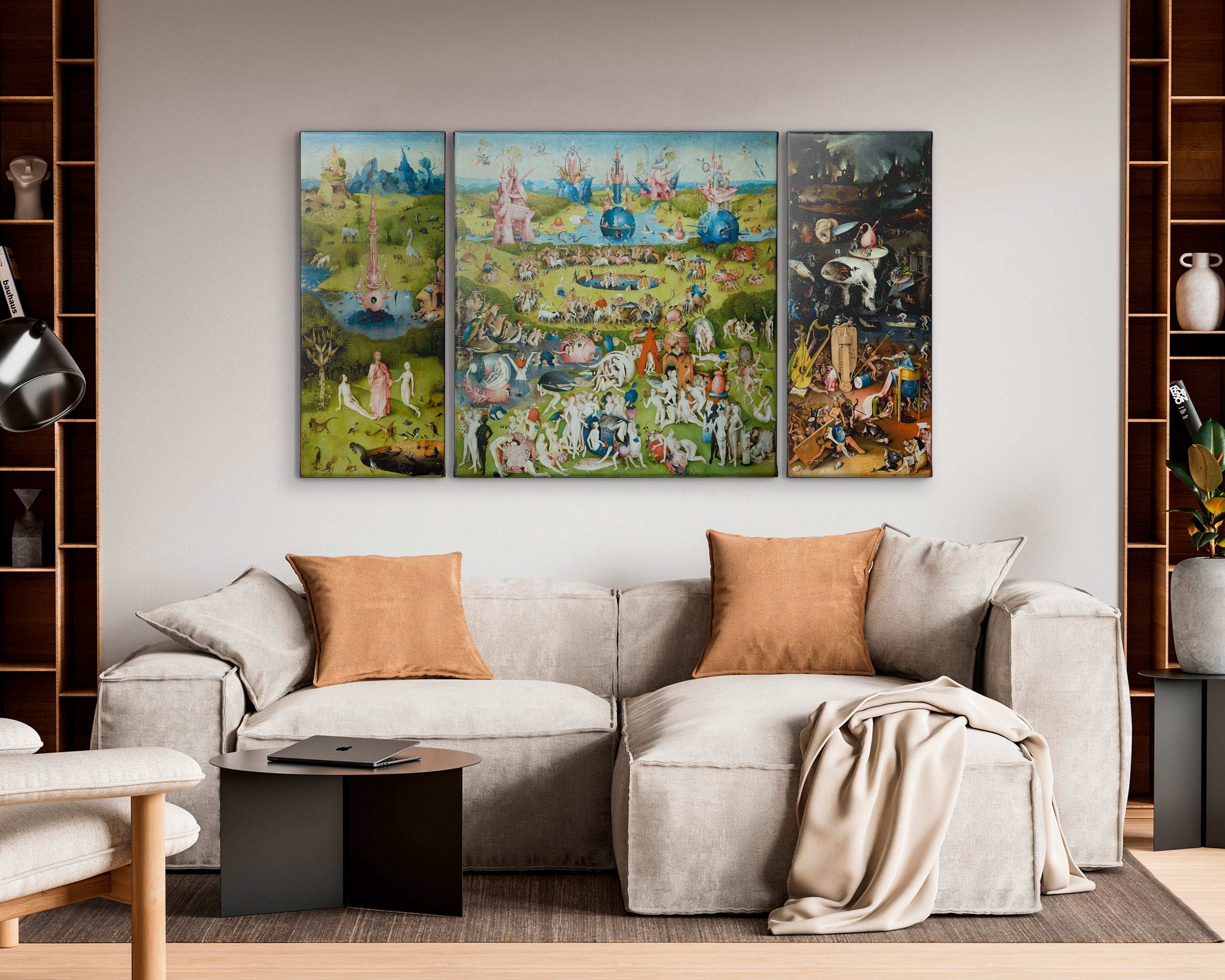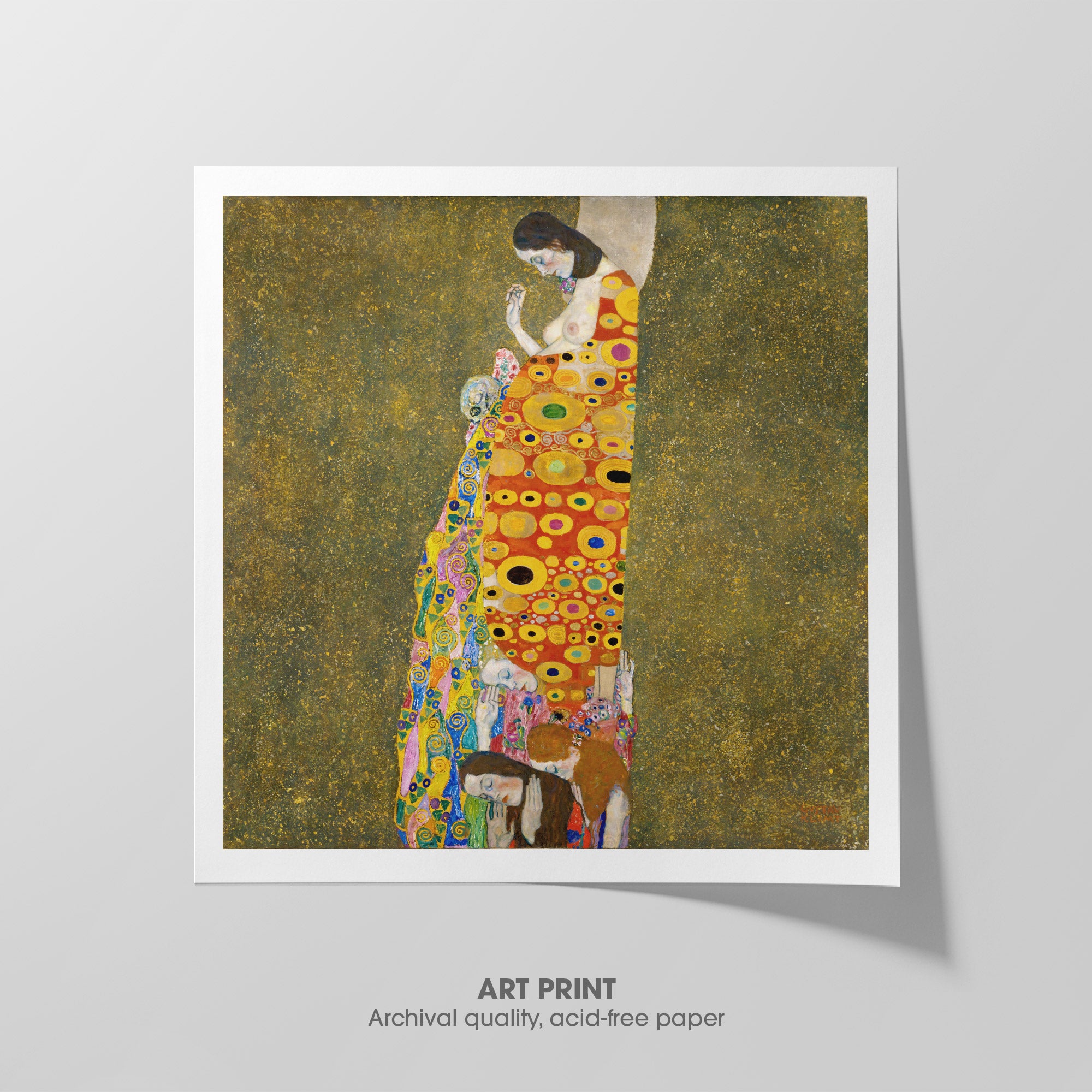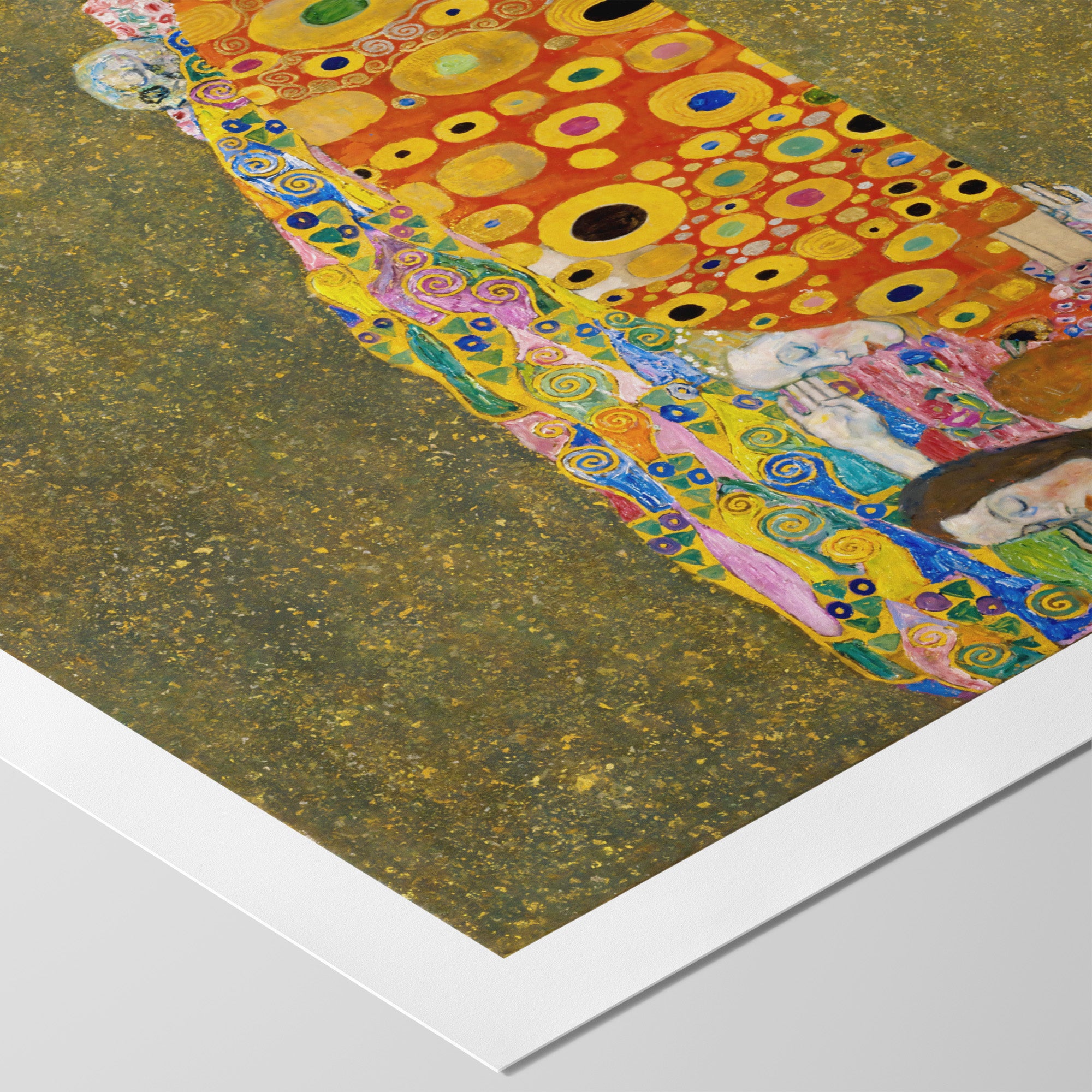-
Hell ☲ Bosch ☵ Art Print
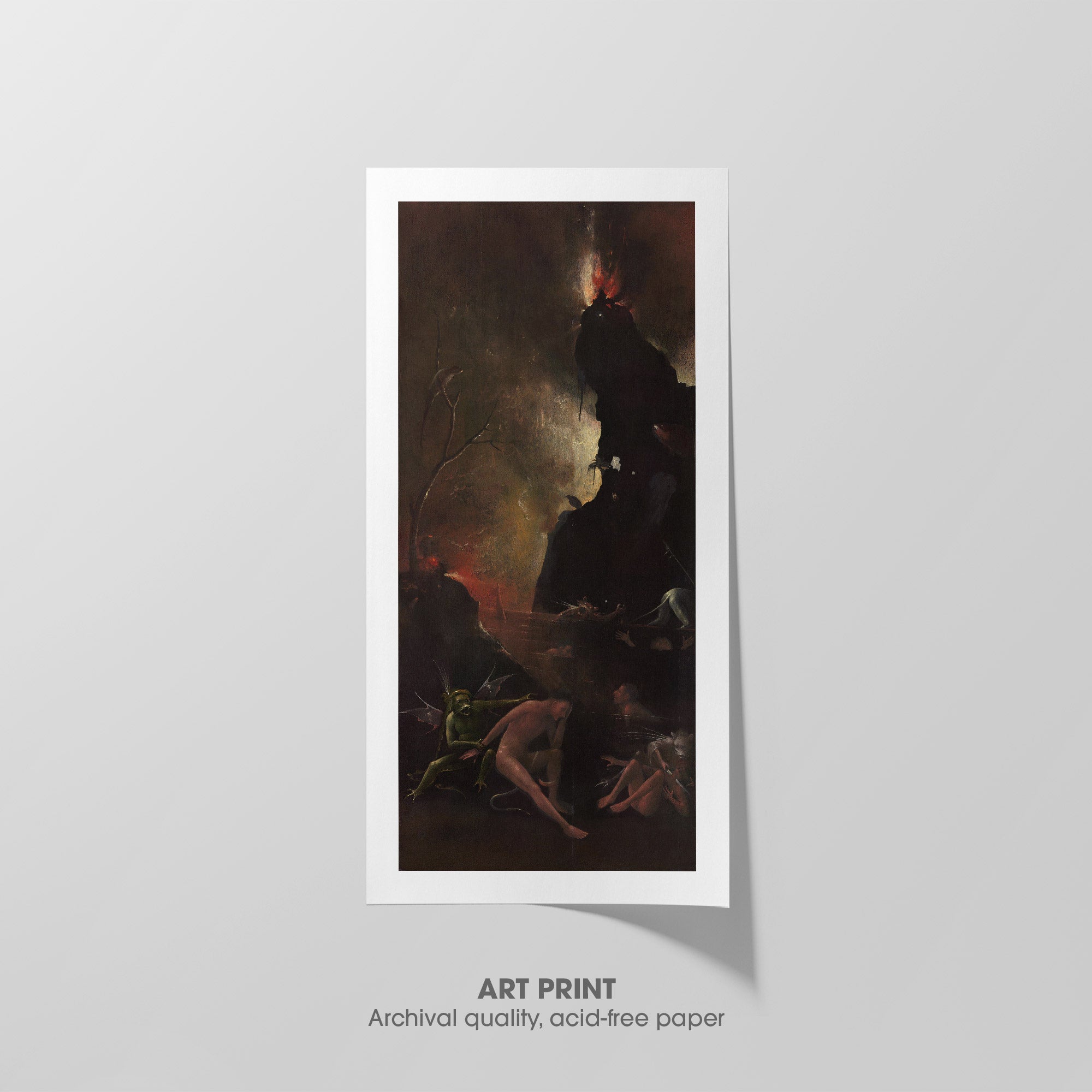
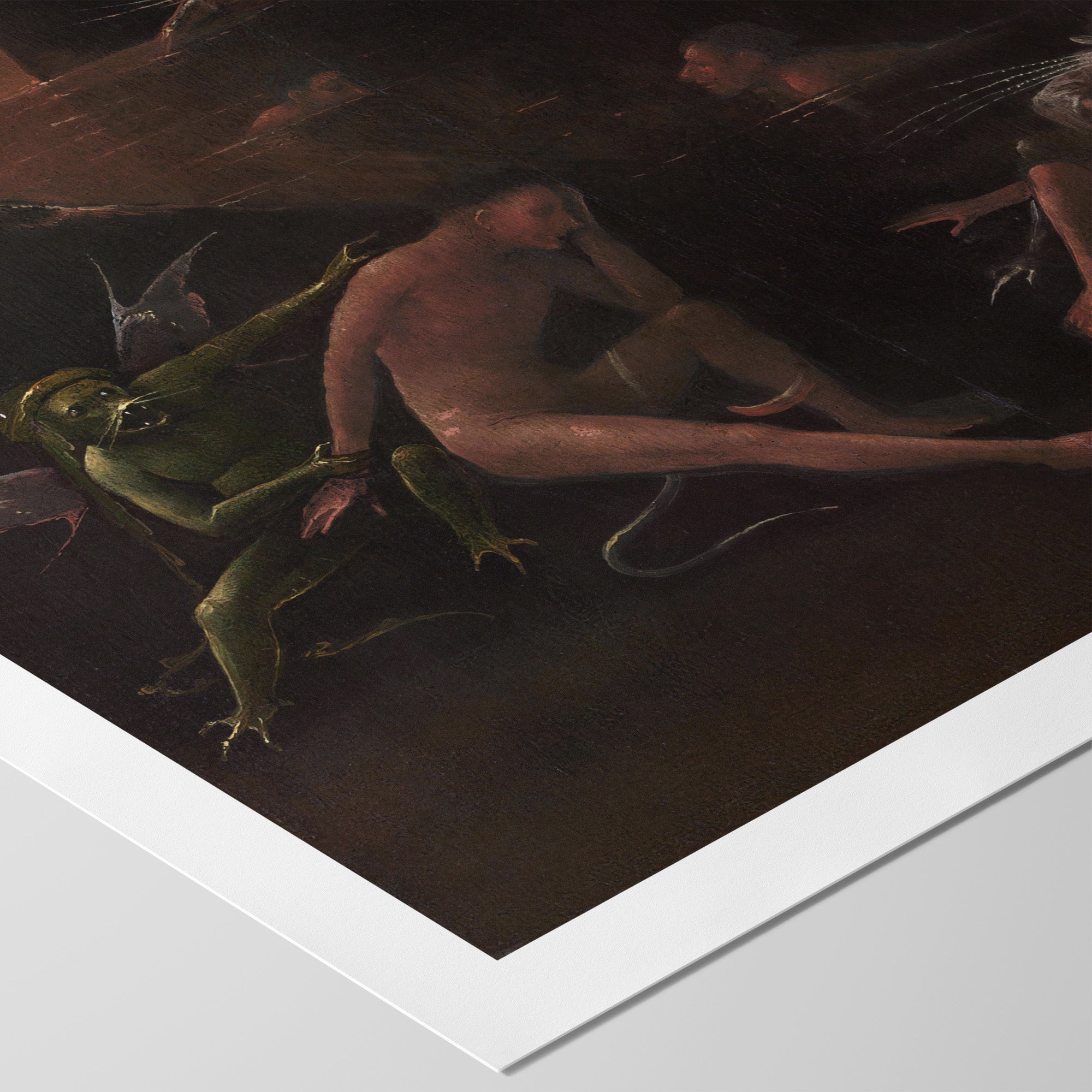 Visions of the Hereafter (1515) by Hieronymus Bosch is a polyptych consisting of two panels depicting religious scenes about sin and judgment. At the Galleria dell'accademia in Venice the panels are ordered, left to right, Fall of the Damned, Hell, Terrestrial Paradise, ➵
Visions of the Hereafter (1515) by Hieronymus Bosch is a polyptych consisting of two panels depicting religious scenes about sin and judgment. At the Galleria dell'accademia in Venice the panels are ordered, left to right, Fall of the Damned, Hell, Terrestrial Paradise, ➵◰ Canvas Reproductions
⧈ Framed Art Prints -
Hell ☲ Bosch ☵ Canvas
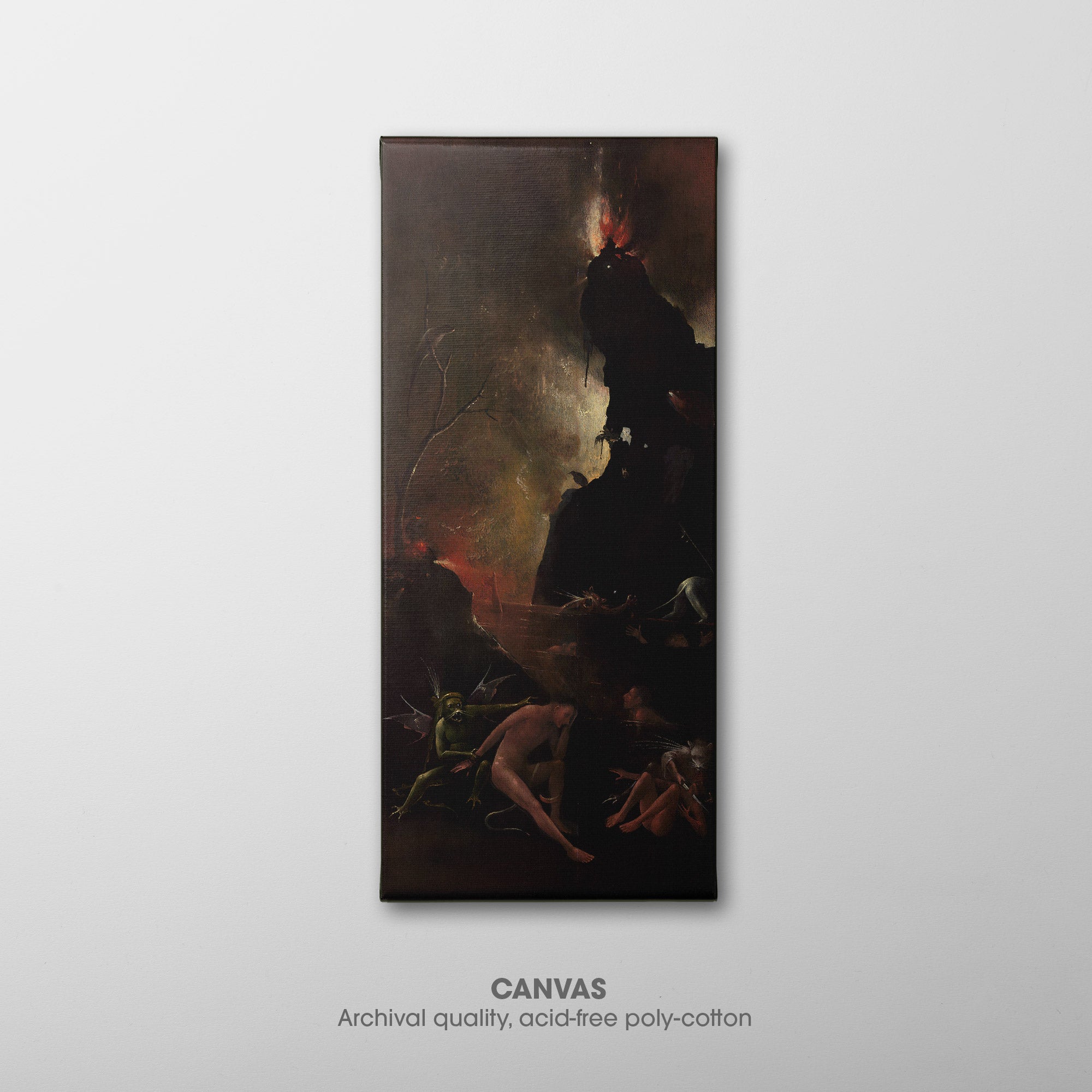
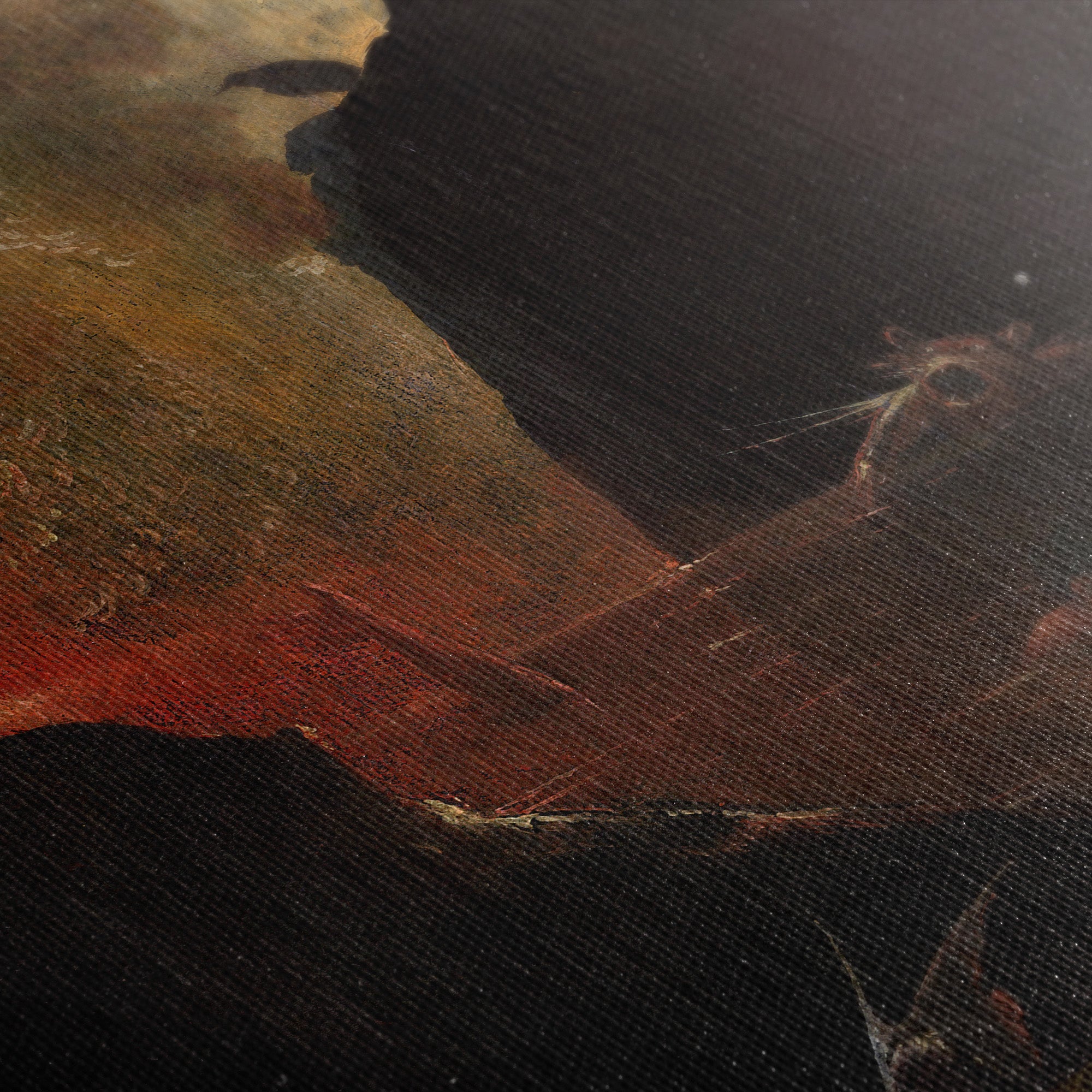 Visions of the Hereafter (1515) by Hieronymus Bosch is a polyptych consisting of two panels depicting religious scenes about sin and judgment. At the Galleria dell'accademia in Venice the panels are ordered, left to right, Fall of the Damned, Hell, Terrestrial Paradise, ➵
Visions of the Hereafter (1515) by Hieronymus Bosch is a polyptych consisting of two panels depicting religious scenes about sin and judgment. At the Galleria dell'accademia in Venice the panels are ordered, left to right, Fall of the Damned, Hell, Terrestrial Paradise, ➵◰ Canvas Reproductions
⧈ Framed Art Prints -
House by the Railroad ☳ Hopper ☶ Art Print

 House by the Railroad (1925) by Edward Hopper depicts a Victorian mansion isolated in an empty landscape, blocked off by railroad tracks in the foreground. He insisted that his paintings were straightforward representations of the real world, but as seen here, they ➵
House by the Railroad (1925) by Edward Hopper depicts a Victorian mansion isolated in an empty landscape, blocked off by railroad tracks in the foreground. He insisted that his paintings were straightforward representations of the real world, but as seen here, they ➵◰ Canvas Reproductions
⧈ Framed Art Prints -
House by the Railroad ☳ Hopper ☶ Canvas

 House by the Railroad (1925) by Edward Hopper depicts a Victorian mansion isolated in an empty landscape, blocked off by railroad tracks in the foreground. He insisted that his paintings were straightforward representations of the real world, but as seen here, they ➵
House by the Railroad (1925) by Edward Hopper depicts a Victorian mansion isolated in an empty landscape, blocked off by railroad tracks in the foreground. He insisted that his paintings were straightforward representations of the real world, but as seen here, they ➵◰ Canvas Reproductions
⧈ Framed Art Prints -
Hunter's Supper ☲ Remington ☶ Art Print
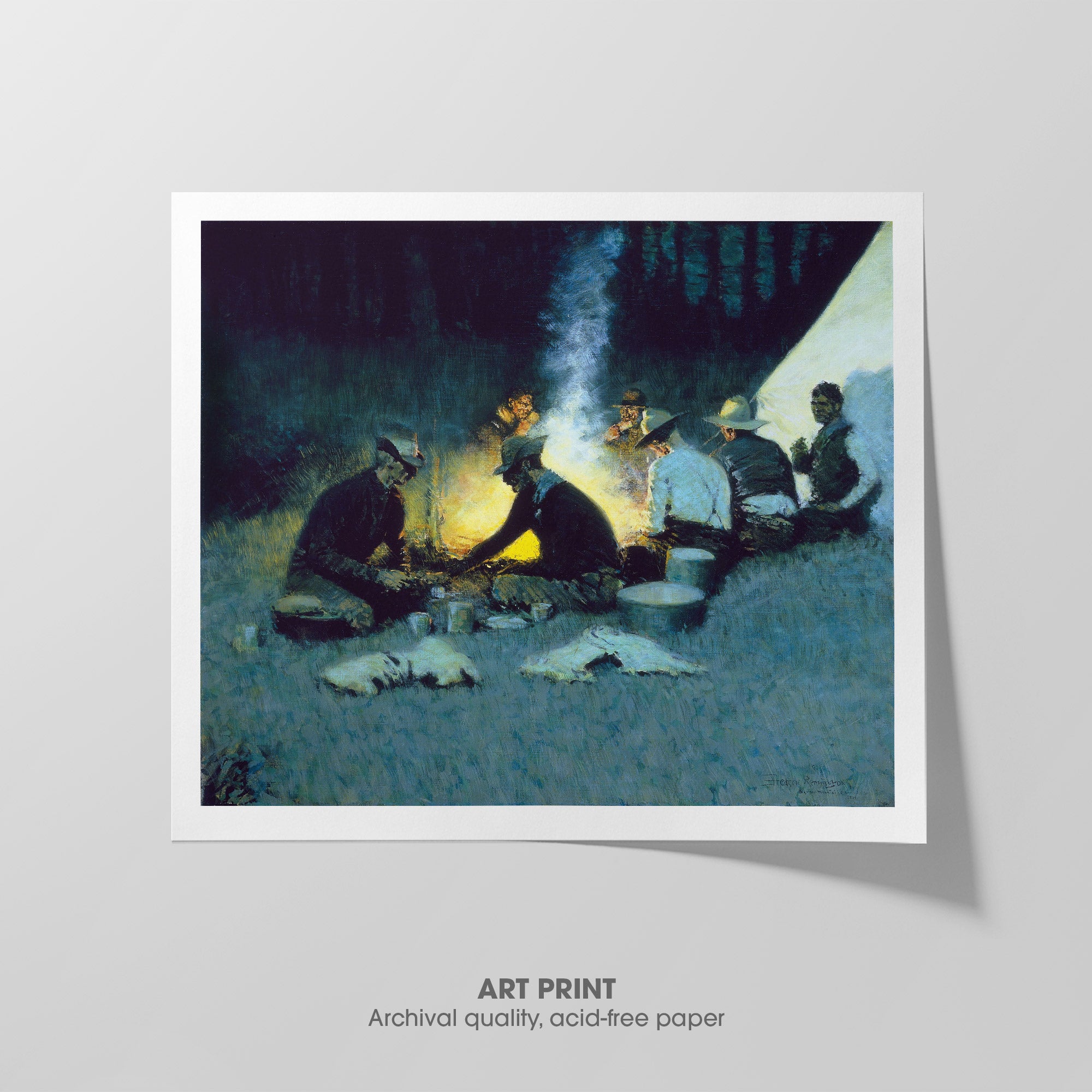
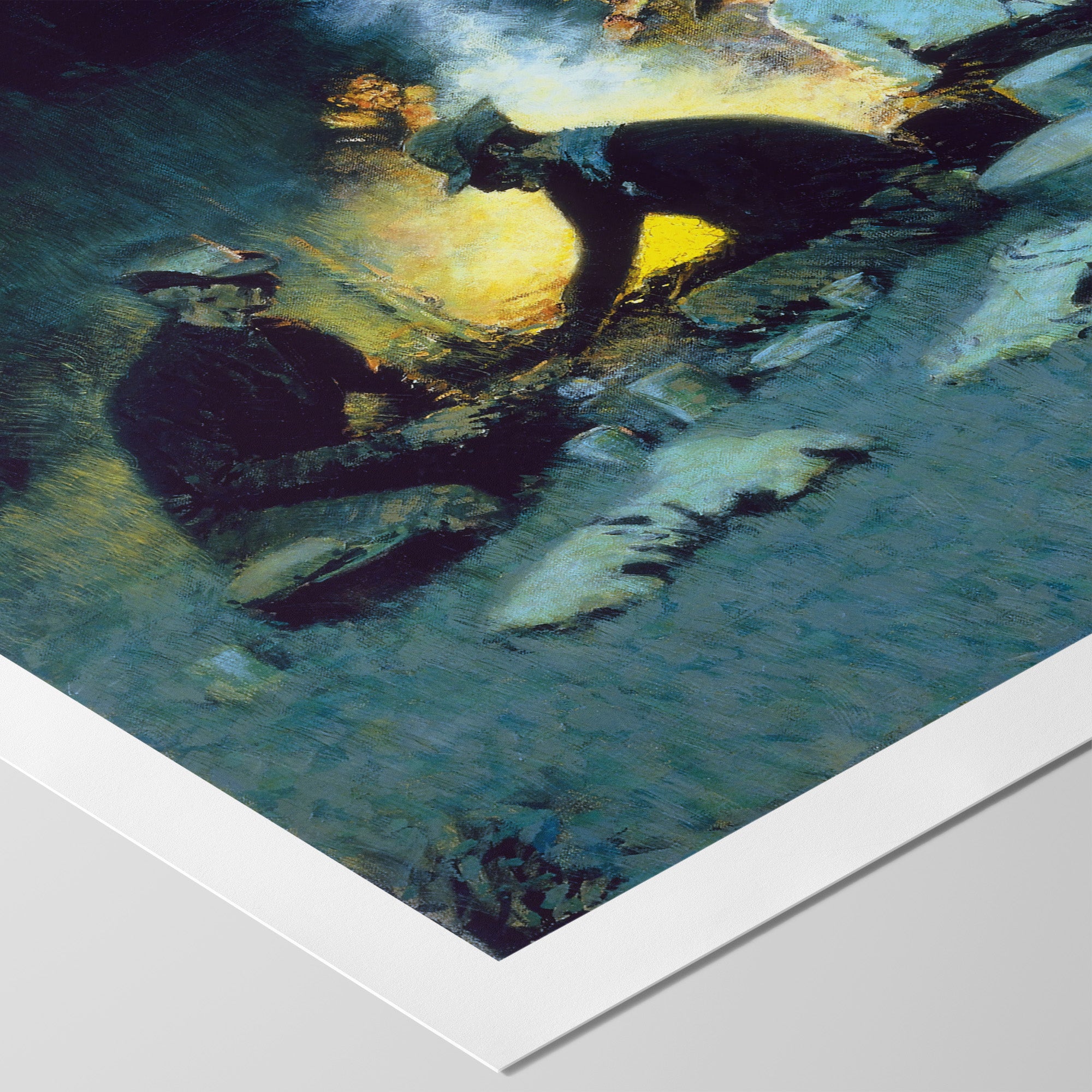 Hunter's Supper (1909) by Frederic Remington, also known as Hunters' Camp in the Big Horn, depicts a group of frontiersmen gathered around a campfire at dusk, showing a moment of relaxation surrounded by a harsh frontier. The orange and red glow of ➵
Hunter's Supper (1909) by Frederic Remington, also known as Hunters' Camp in the Big Horn, depicts a group of frontiersmen gathered around a campfire at dusk, showing a moment of relaxation surrounded by a harsh frontier. The orange and red glow of ➵◰ Canvas Reproductions
⧈ Framed Art Prints -
Hunter's Supper ☲ Remington ☶ Canvas
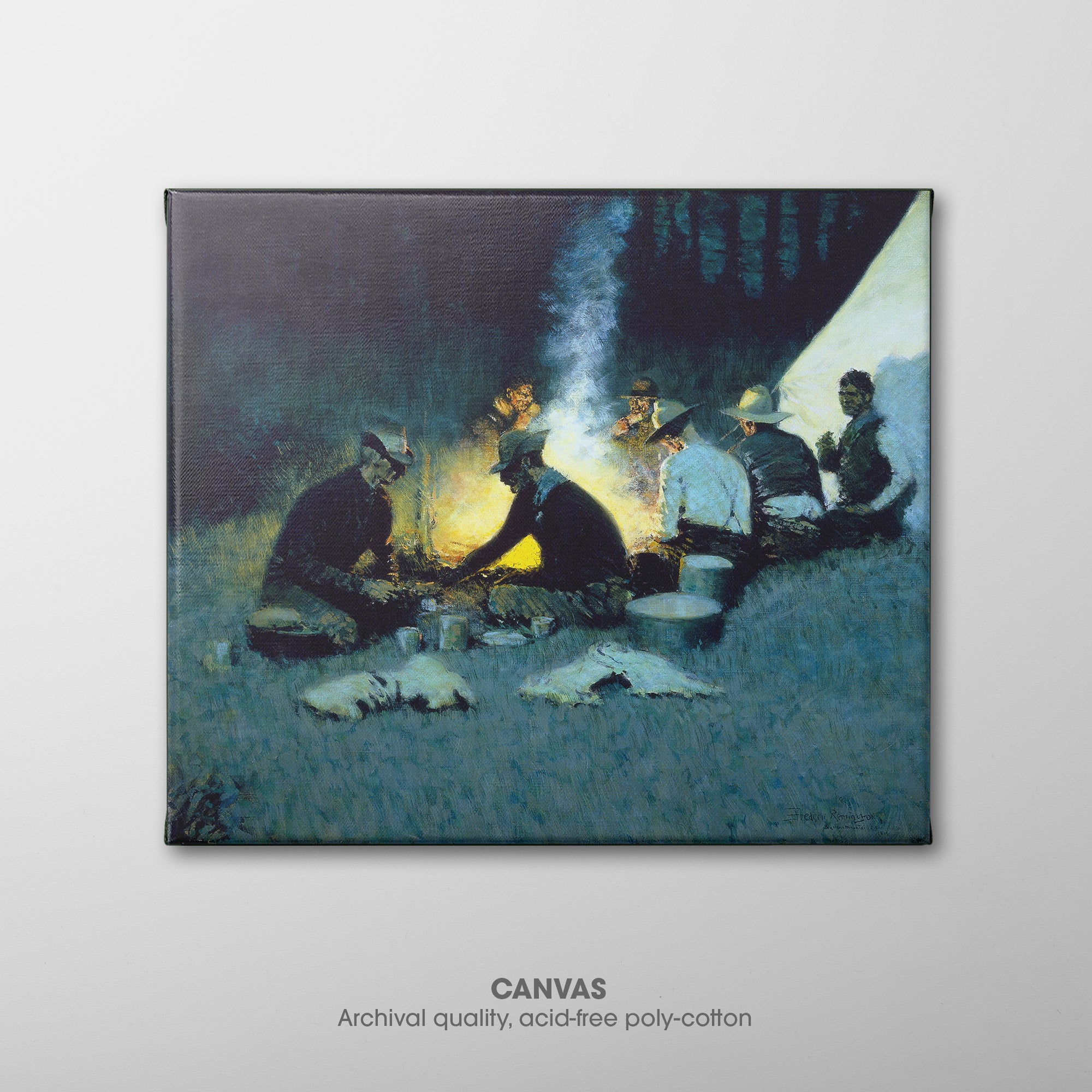
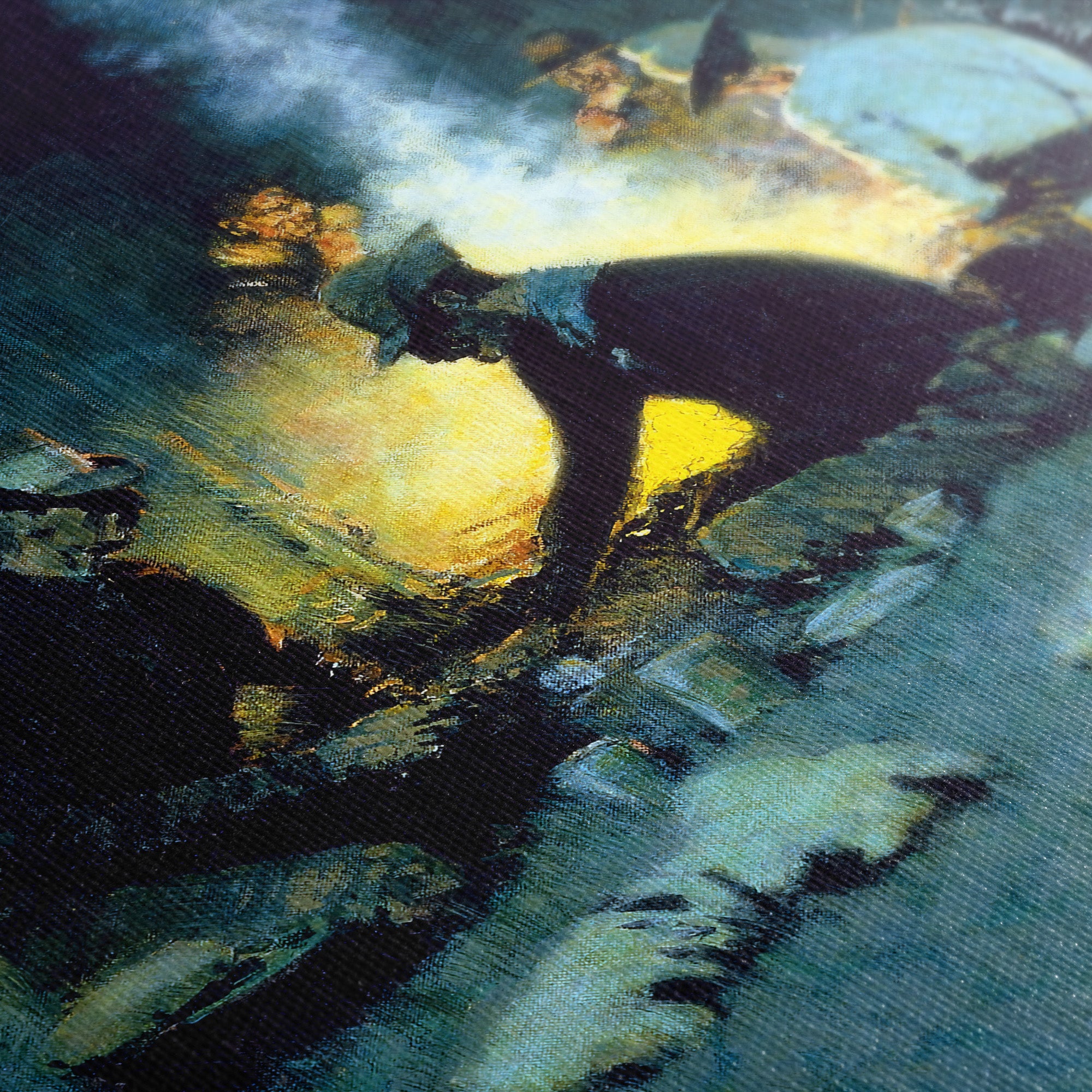 Hunter's Supper (1909) by Frederic Remington, also known as Hunters' Camp in the Big Horn, depicts a group of frontiersmen gathered around a campfire at dusk, showing a moment of relaxation surrounded by a harsh frontier. The orange and red glow of ➵
Hunter's Supper (1909) by Frederic Remington, also known as Hunters' Camp in the Big Horn, depicts a group of frontiersmen gathered around a campfire at dusk, showing a moment of relaxation surrounded by a harsh frontier. The orange and red glow of ➵◰ Canvas Reproductions
⧈ Framed Art Prints -
Impression, Sunrise ☰ Monet ☱ Art Print

 Impression, Sunrise (1872, Impression, soleil levant) by Claude Monet is credited with inspiring the name of the Impressionist movement. It depicts the industrialization of the port at Monet's hometown of Le Havre. The port is seen at sunrise, with two small rowboats ➵
Impression, Sunrise (1872, Impression, soleil levant) by Claude Monet is credited with inspiring the name of the Impressionist movement. It depicts the industrialization of the port at Monet's hometown of Le Havre. The port is seen at sunrise, with two small rowboats ➵◰ Canvas Reproductions
⧈ Framed Art Prints -
Impression, Sunrise ☰ Monet ☱ Canvas

 Impression, Sunrise (1872, Impression, soleil levant) by Claude Monet is credited with inspiring the name of the Impressionist movement. It depicts the industrialization of the port at Monet's hometown of Le Havre. The port is seen at sunrise, with two small rowboats ➵
Impression, Sunrise (1872, Impression, soleil levant) by Claude Monet is credited with inspiring the name of the Impressionist movement. It depicts the industrialization of the port at Monet's hometown of Le Havre. The port is seen at sunrise, with two small rowboats ➵◰ Canvas Reproductions
⧈ Framed Art Prints -
In the Waves ☵ Gauguin ☷ Art Print

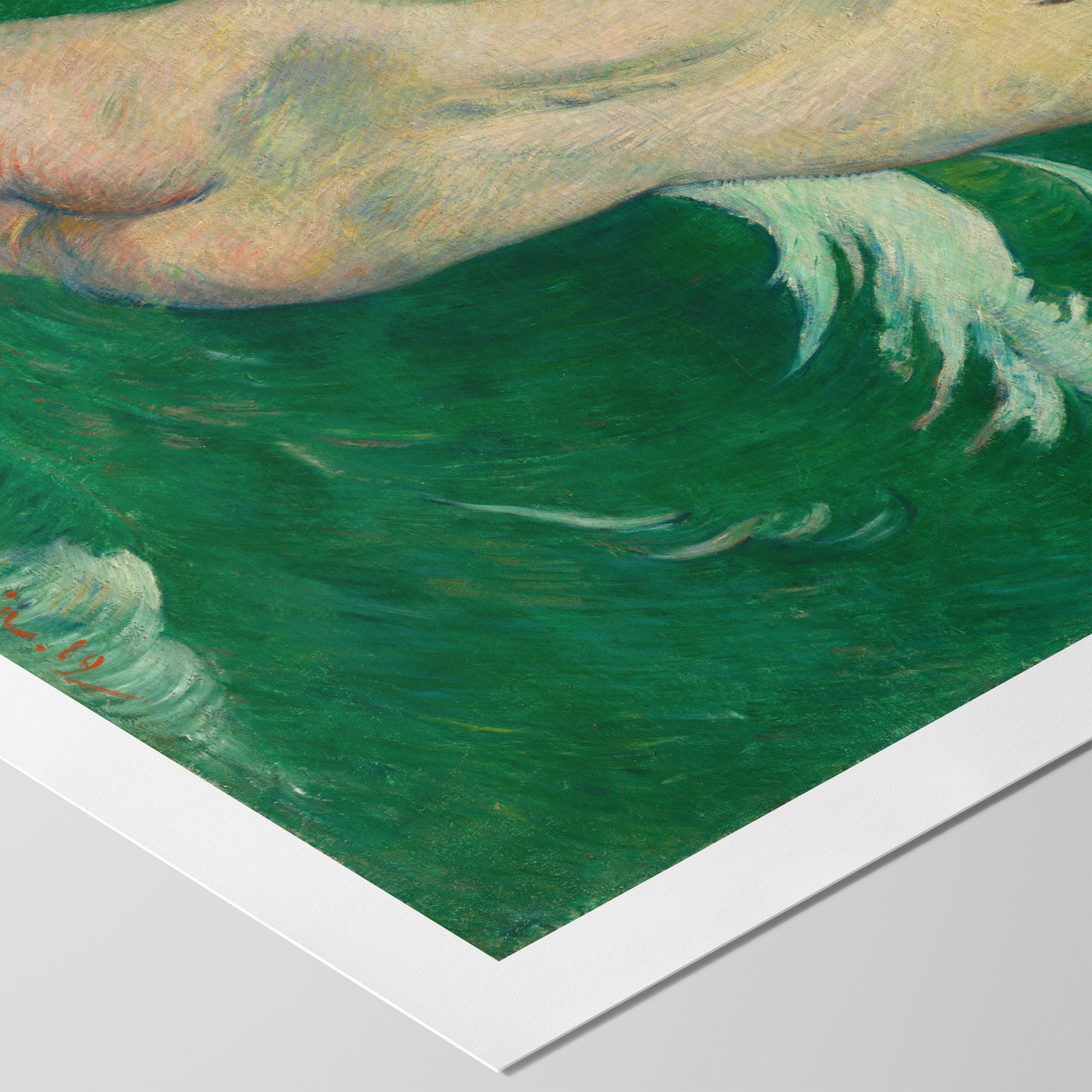 In the Waves (1889, Dans les Vagues) by Paul Gauguin was created during his time in a small coastal village called Pont-Aven where he sought to immerse himself in nature and escape modern civilization. It depicts a nude figure throwing herself into ➵
In the Waves (1889, Dans les Vagues) by Paul Gauguin was created during his time in a small coastal village called Pont-Aven where he sought to immerse himself in nature and escape modern civilization. It depicts a nude figure throwing herself into ➵◰ Canvas Reproductions
⧈ Framed Art Prints -
In the Waves ☵ Gauguin ☷ Canvas
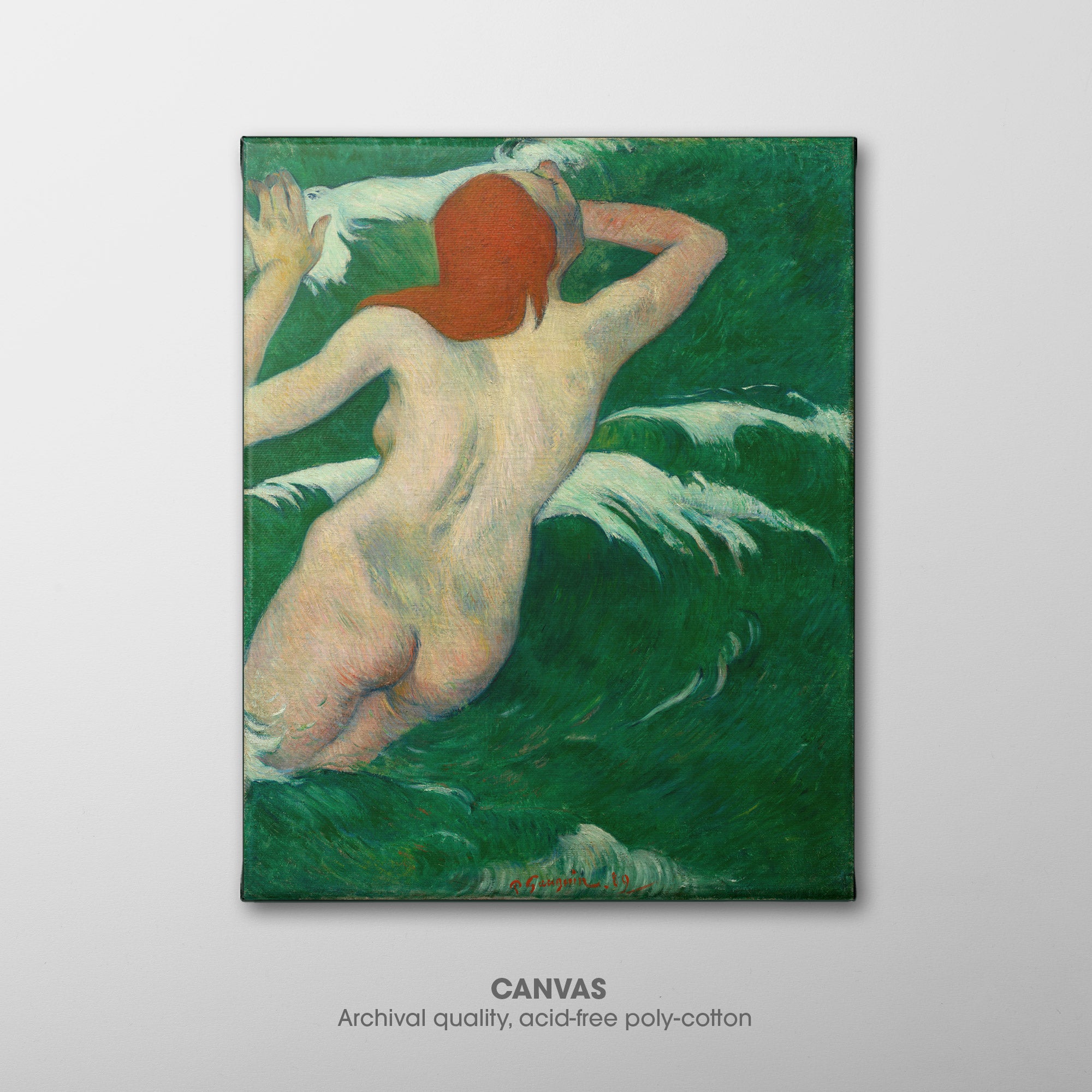
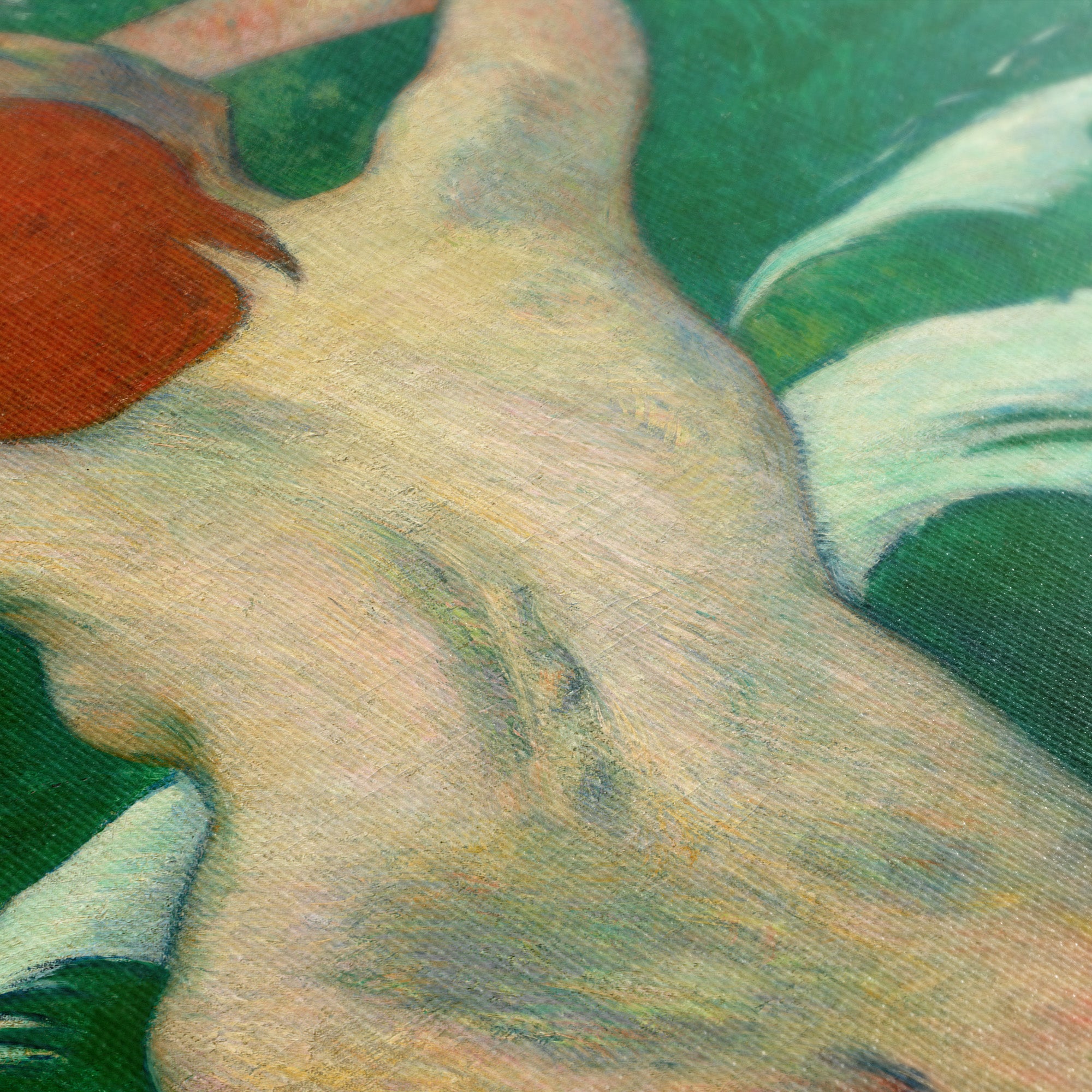 In the Waves (1889, Dans les Vagues) by Paul Gauguin was created during his time in a small coastal village called Pont-Aven where he sought to immerse himself in nature and escape modern civilization. It depicts a nude figure throwing herself into ➵
In the Waves (1889, Dans les Vagues) by Paul Gauguin was created during his time in a small coastal village called Pont-Aven where he sought to immerse himself in nature and escape modern civilization. It depicts a nude figure throwing herself into ➵◰ Canvas Reproductions
⧈ Framed Art Prints -
Indian Struggling with a Gorilla ☳ Rousseau ☵ Art Print

 Tropical Landscape: American Indian Struggling with a Gorilla (1910) by Henri Rousseau is emblematic of his characteristically inaccurate depictions and mixing of exotic peoples, animals and plant life. It depicts an American Indian fighting a gorilla in a lush, tropical jungle setting, ➵
Tropical Landscape: American Indian Struggling with a Gorilla (1910) by Henri Rousseau is emblematic of his characteristically inaccurate depictions and mixing of exotic peoples, animals and plant life. It depicts an American Indian fighting a gorilla in a lush, tropical jungle setting, ➵◰ Canvas Reproductions
⧈ Framed Art Prints -
Indian Struggling with a Gorilla ☳ Rousseau ☵ Canvas
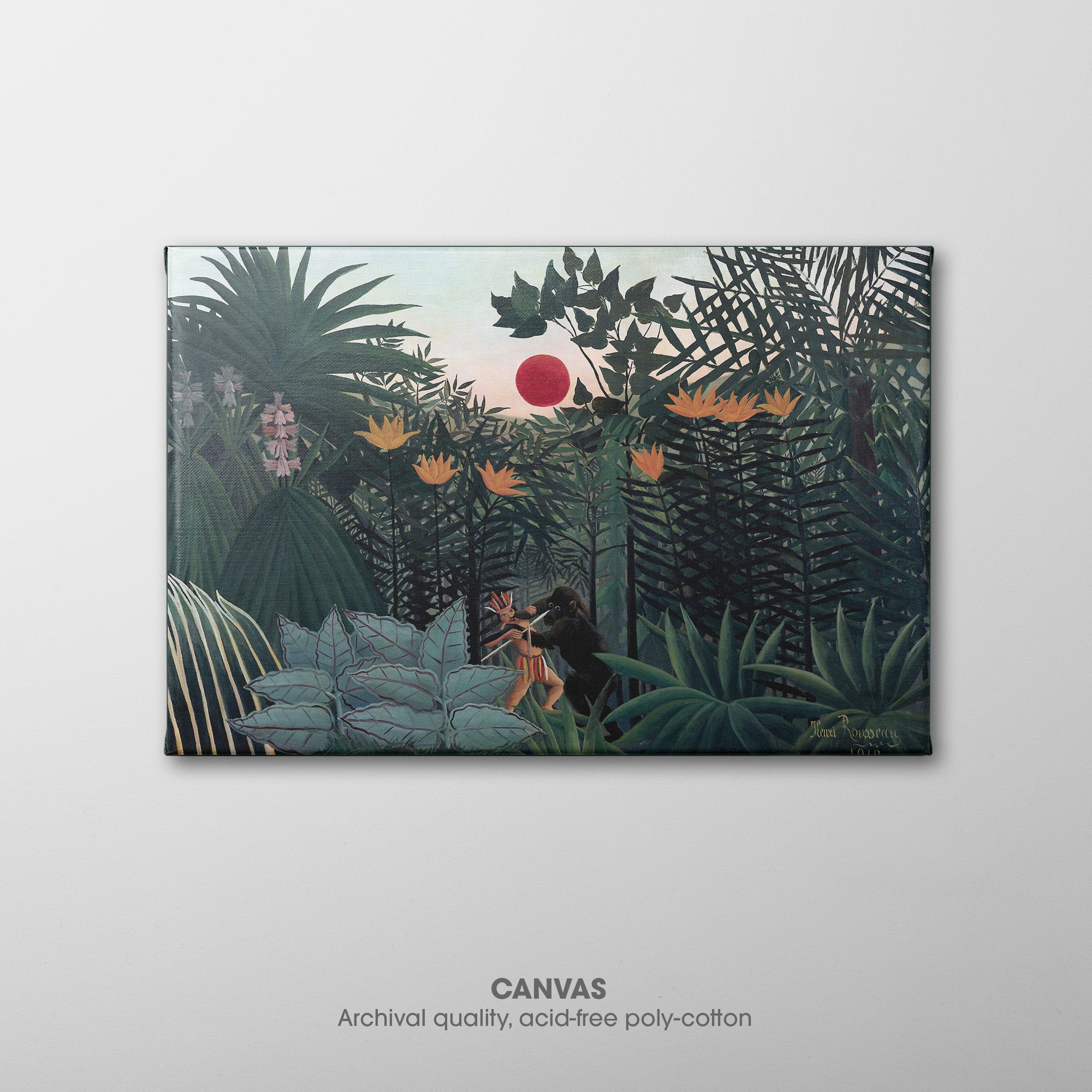
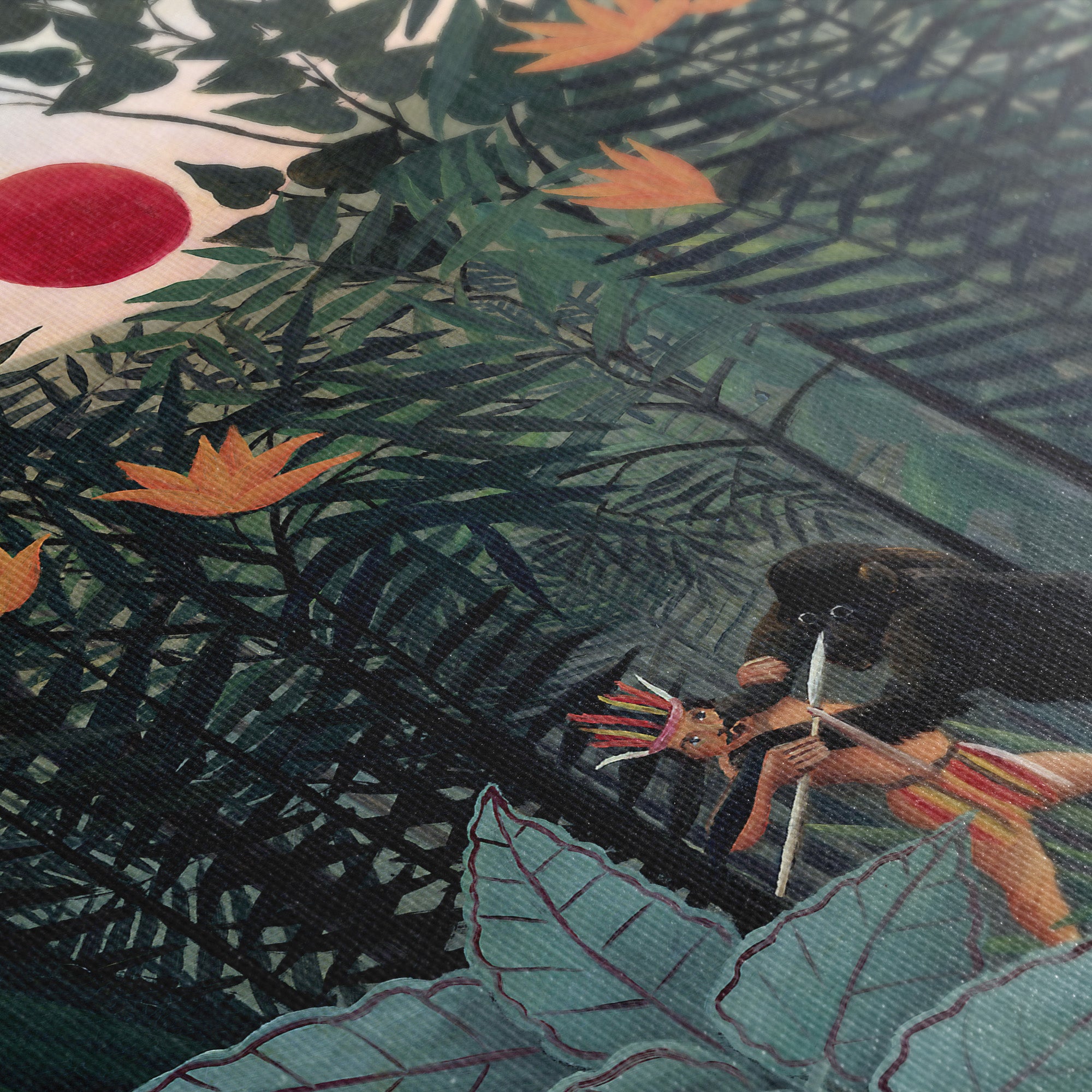 Tropical Landscape: American Indian Struggling with a Gorilla (1910) by Henri Rousseau is emblematic of his characteristically inaccurate depictions and mixing of exotic peoples, animals and plant life. It depicts an American Indian fighting a gorilla in a lush, tropical jungle setting, ➵
Tropical Landscape: American Indian Struggling with a Gorilla (1910) by Henri Rousseau is emblematic of his characteristically inaccurate depictions and mixing of exotic peoples, animals and plant life. It depicts an American Indian fighting a gorilla in a lush, tropical jungle setting, ➵◰ Canvas Reproductions
⧈ Framed Art Prints -
Interior with a Violin Case ☱ Matisse ☰ Art Print
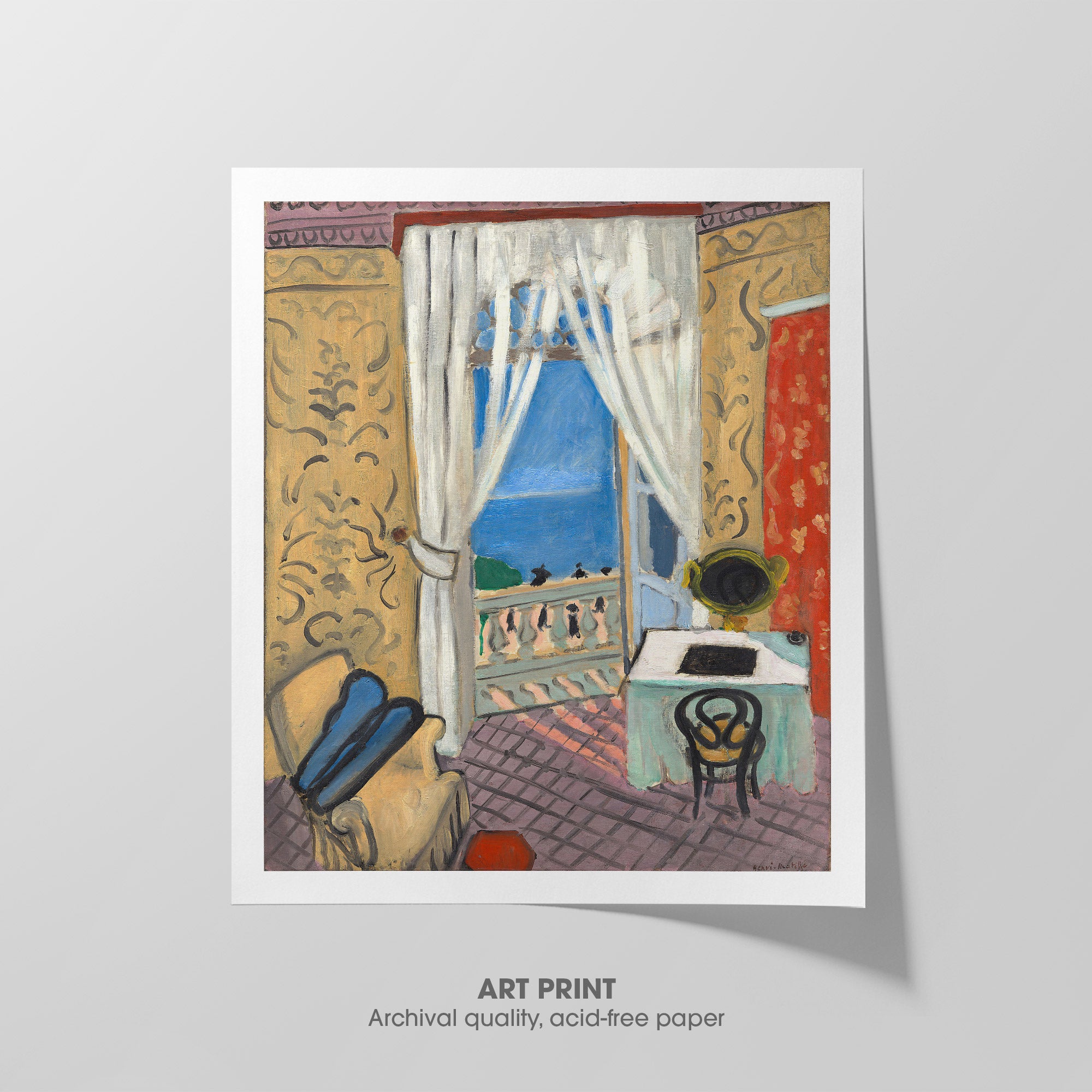
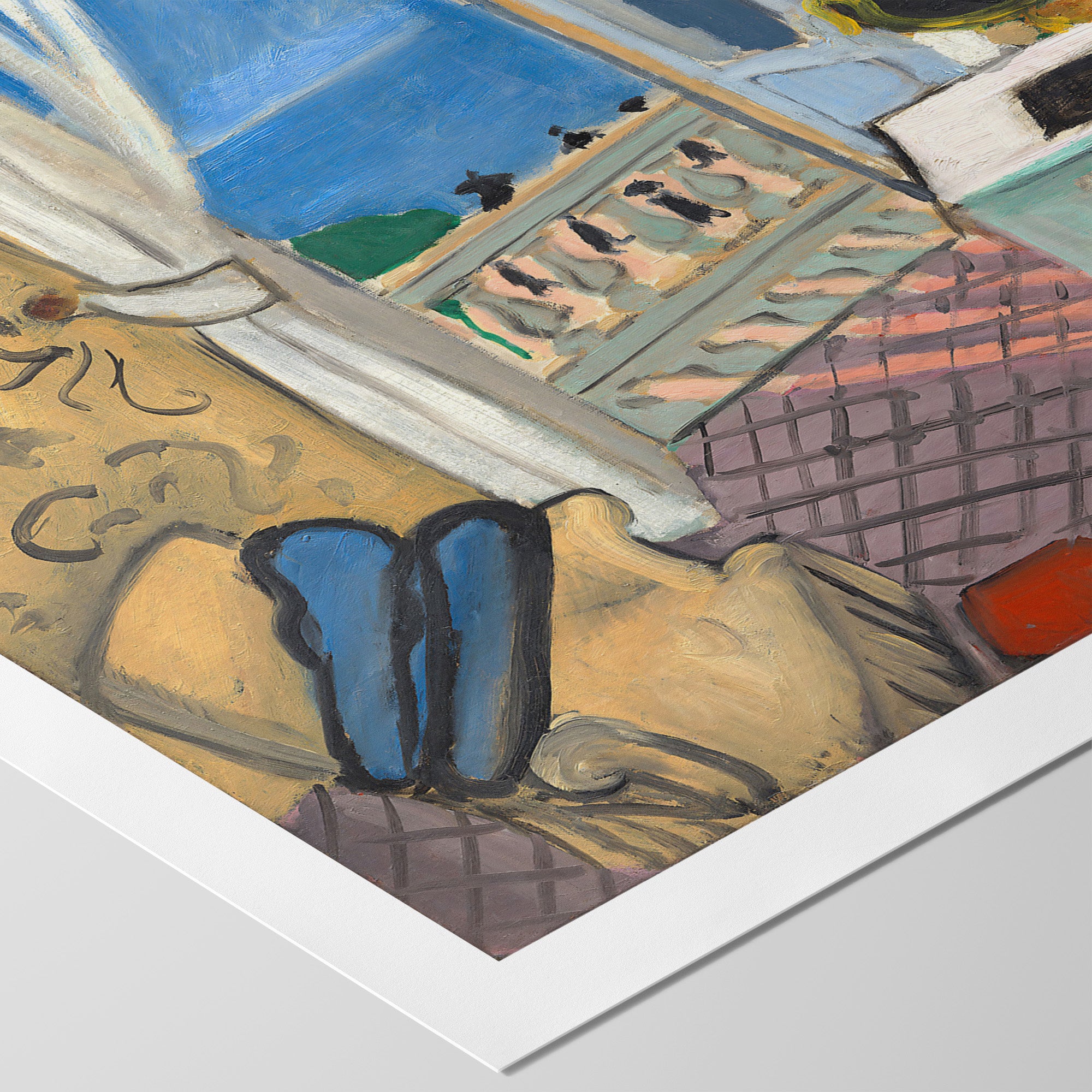 Interior with a Violin Case (1919) by Henri Matisse depicts a room with a large window, white curtains, heavily decorated walls and patterned floor, a dressing table with mirror, a chair and footstool, and an open violin case - with no violin. ➵
Interior with a Violin Case (1919) by Henri Matisse depicts a room with a large window, white curtains, heavily decorated walls and patterned floor, a dressing table with mirror, a chair and footstool, and an open violin case - with no violin. ➵◰ Canvas Reproductions
⧈ Framed Art Prints -
Interior with a Violin Case ☱ Matisse ☰ Canvas
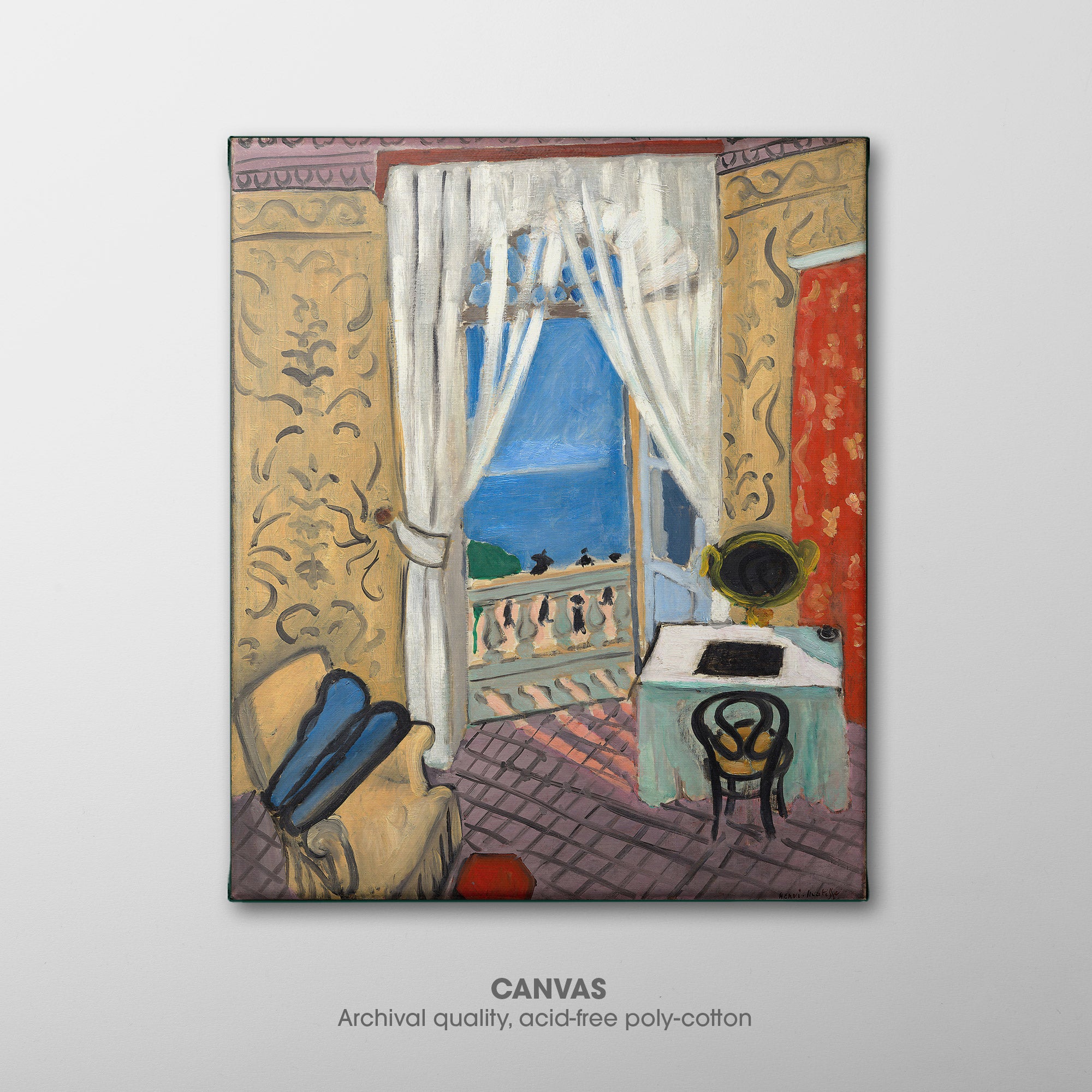
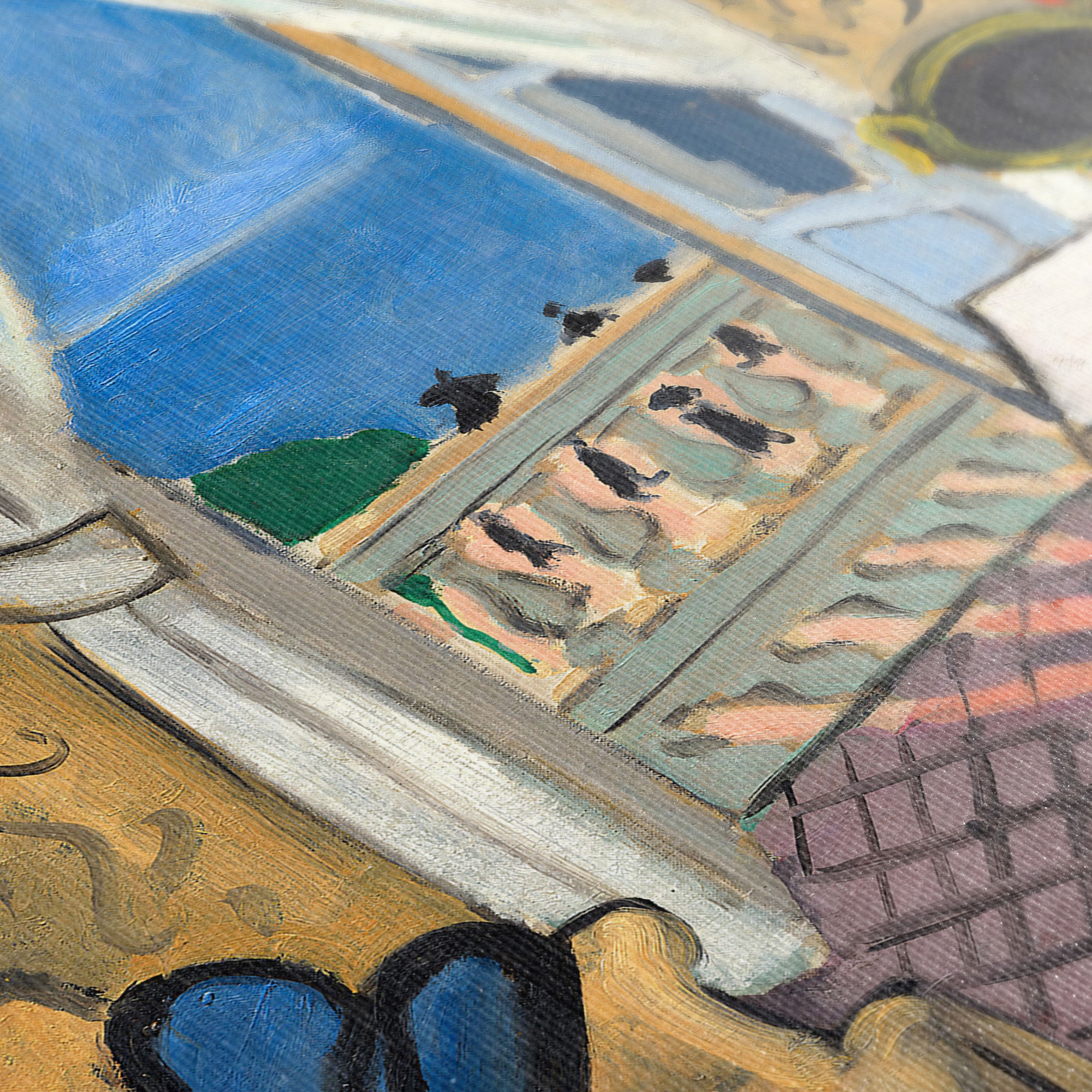 Interior with a Violin Case (1919) by Henri Matisse depicts a room with a large window, white curtains, heavily decorated walls and patterned floor, a dressing table with mirror, a chair and footstool, and an open violin case - with no violin. ➵
Interior with a Violin Case (1919) by Henri Matisse depicts a room with a large window, white curtains, heavily decorated walls and patterned floor, a dressing table with mirror, a chair and footstool, and an open violin case - with no violin. ➵◰ Canvas Reproductions
⧈ Framed Art Prints -
Iris Tree ☱ Modigliani ☴ Art Print
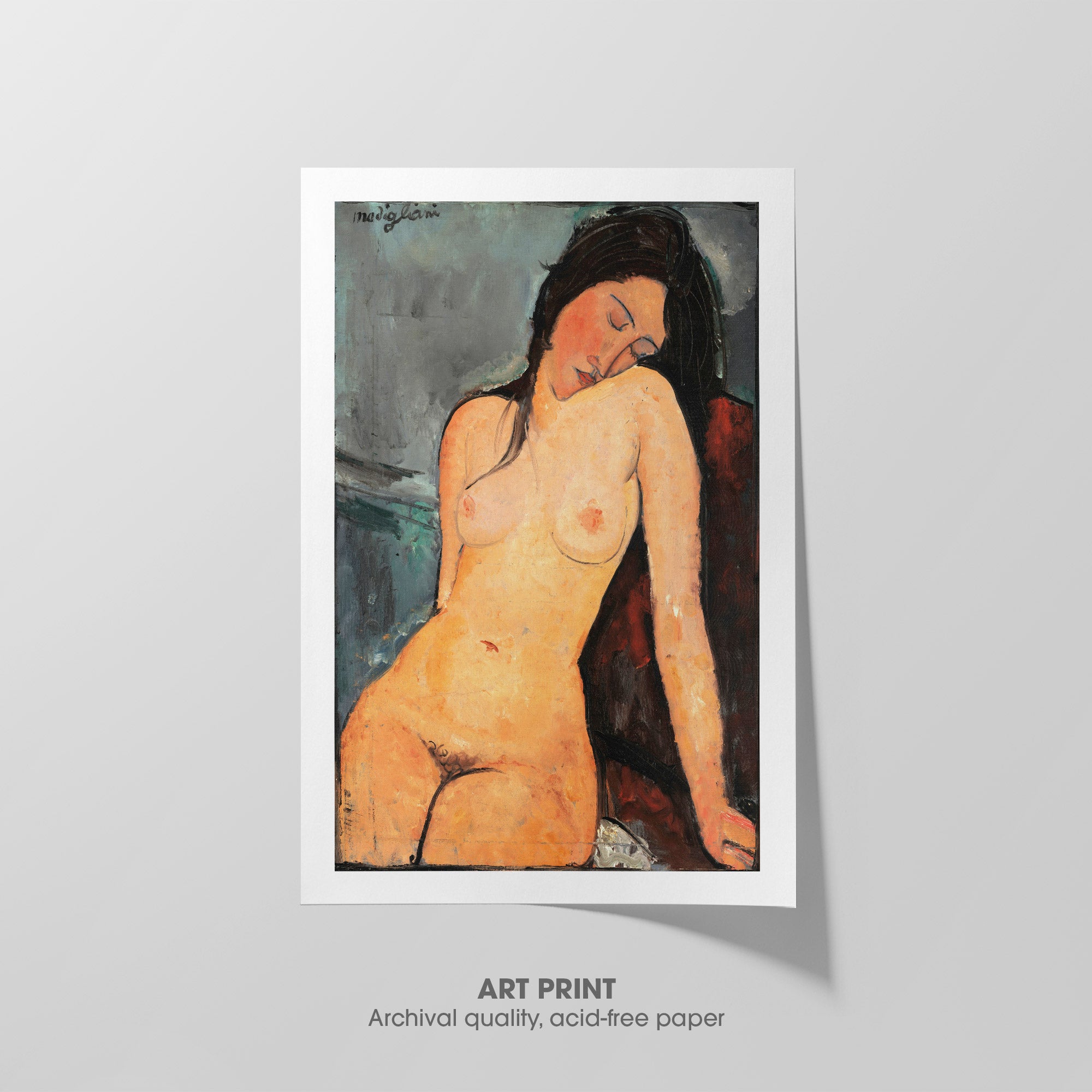
 Female Nude (1916) by Amedeo Modigliani is a portrait of Iris Tree (27 January 1897 – 13 April 1968), an English poet, actress, and art model. She was a highly sought after model, being painted by Augustus John, simultaneously by Duncan Grant, ➵
Female Nude (1916) by Amedeo Modigliani is a portrait of Iris Tree (27 January 1897 – 13 April 1968), an English poet, actress, and art model. She was a highly sought after model, being painted by Augustus John, simultaneously by Duncan Grant, ➵◰ Canvas Reproductions
⧈ Framed Art Prints -
Iris Tree ☱ Modigliani ☴ Canvas
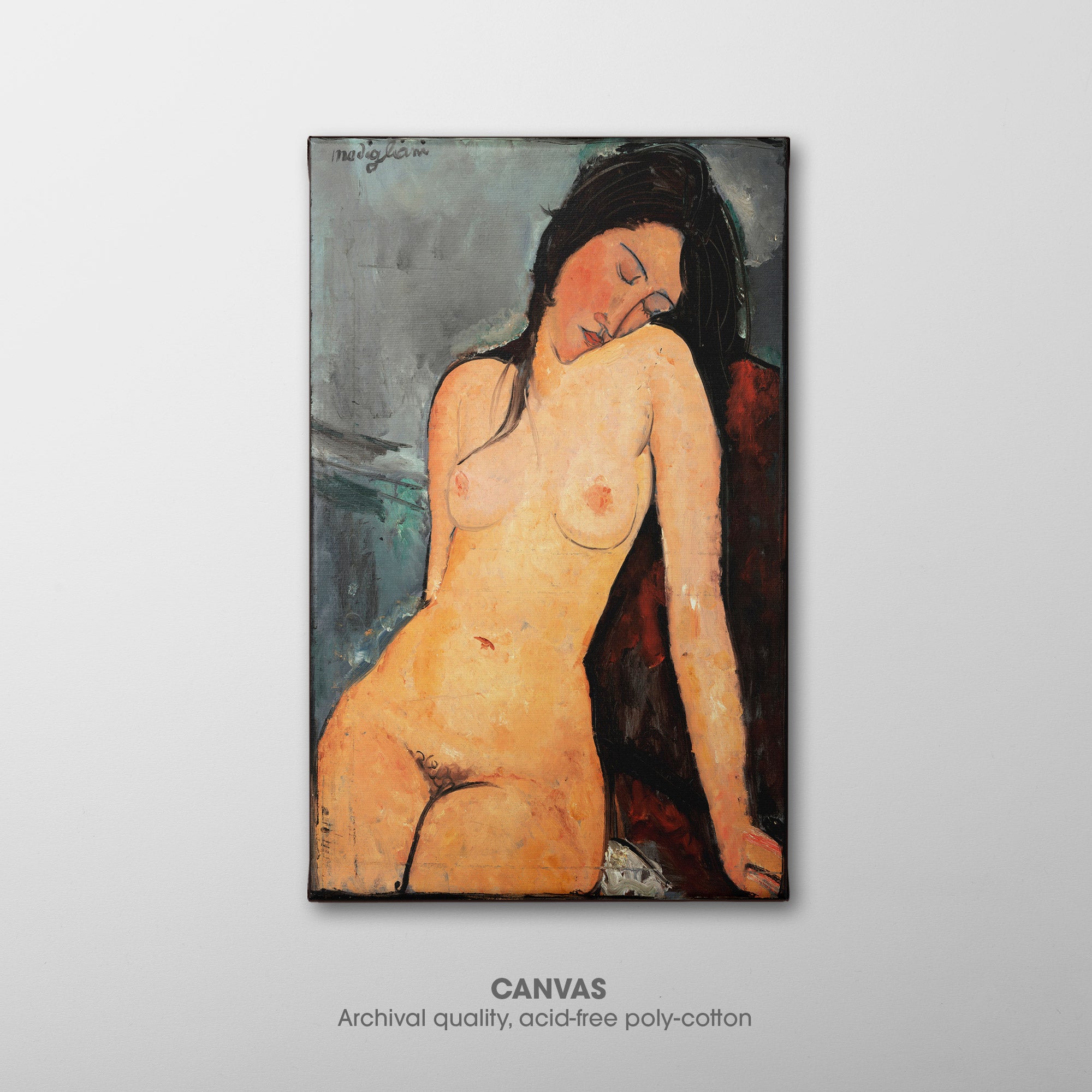
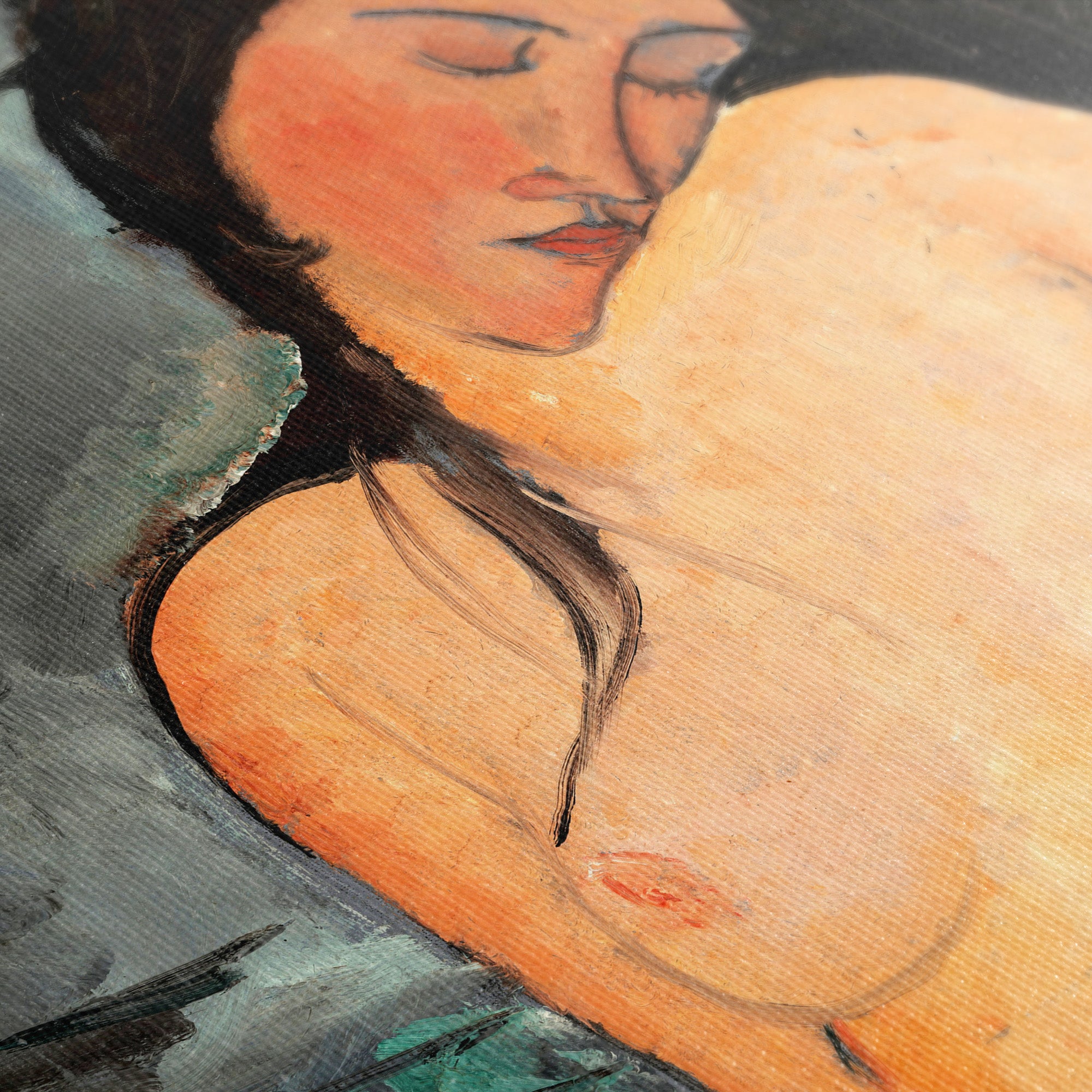 Female Nude (1916) by Amedeo Modigliani is a portrait of Iris Tree (27 January 1897 – 13 April 1968), an English poet, actress, and art model. She was a highly sought after model, being painted by Augustus John, simultaneously by Duncan Grant, ➵
Female Nude (1916) by Amedeo Modigliani is a portrait of Iris Tree (27 January 1897 – 13 April 1968), an English poet, actress, and art model. She was a highly sought after model, being painted by Augustus John, simultaneously by Duncan Grant, ➵◰ Canvas Reproductions
⧈ Framed Art Prints -
Irises ☷ Van Gogh ☶ Art Print

 Irises (1889) by Vincent van Gogh depicts vibrant blooming irises with lush green leaves, red-orange earth, and yellow flowers in the background. He painted several variations of irises during his stay at the Saint-Paul-de-Mausole asylum, working from nature in the hospital garden. ➵
Irises (1889) by Vincent van Gogh depicts vibrant blooming irises with lush green leaves, red-orange earth, and yellow flowers in the background. He painted several variations of irises during his stay at the Saint-Paul-de-Mausole asylum, working from nature in the hospital garden. ➵◰ Canvas Reproductions
⧈ Framed Art Prints -
Irises ☷ Van Gogh ☶ Canvas

 Irises (1889) by Vincent van Gogh depicts vibrant blooming irises with lush green leaves, red-orange earth, and yellow flowers in the background. He painted several variations of irises during his stay at the Saint-Paul-de-Mausole asylum, working from nature in the hospital garden. ➵
Irises (1889) by Vincent van Gogh depicts vibrant blooming irises with lush green leaves, red-orange earth, and yellow flowers in the background. He painted several variations of irises during his stay at the Saint-Paul-de-Mausole asylum, working from nature in the hospital garden. ➵◰ Canvas Reproductions
⧈ Framed Art Prints -
Kamakura no Gengorō ☳ Hokusai ☵ Art Print

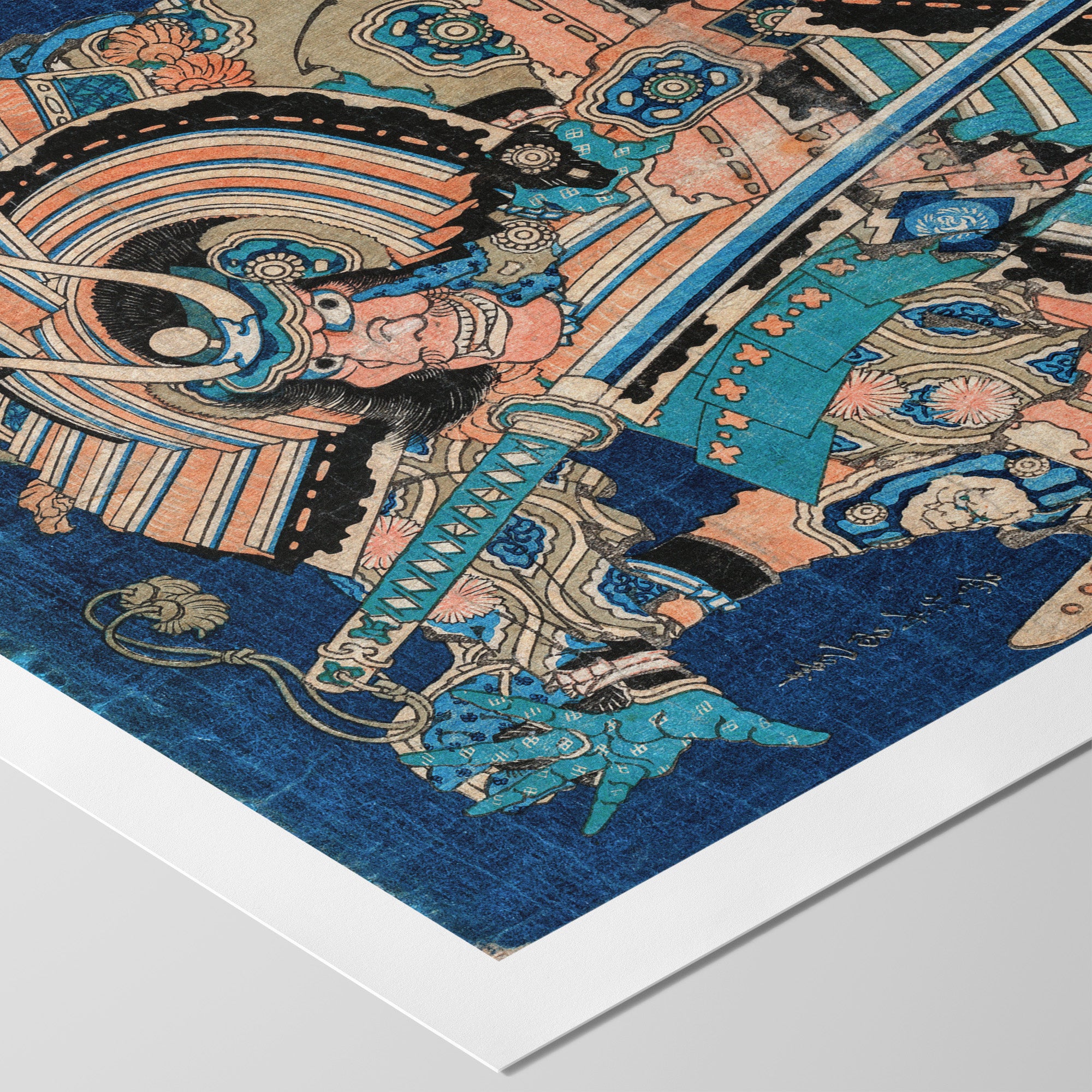 Kamakura no Gengorō Seizing Torinoumi Tasaburo (1832) by Katsushika Hokusai is a ukiyo-e woodblock print that depicts a scene from the renowned kabuki play The Chūshingura, where the heroic Minamoto warrior Kamakura no Gengorō confronts the treacherous Torinoumi Tasaburo in a thrilling ➵
Kamakura no Gengorō Seizing Torinoumi Tasaburo (1832) by Katsushika Hokusai is a ukiyo-e woodblock print that depicts a scene from the renowned kabuki play The Chūshingura, where the heroic Minamoto warrior Kamakura no Gengorō confronts the treacherous Torinoumi Tasaburo in a thrilling ➵◰ Canvas Reproductions
⧈ Framed Art Prints -
Kamakura no Gengorō ☳ Hokusai ☵ Canvas

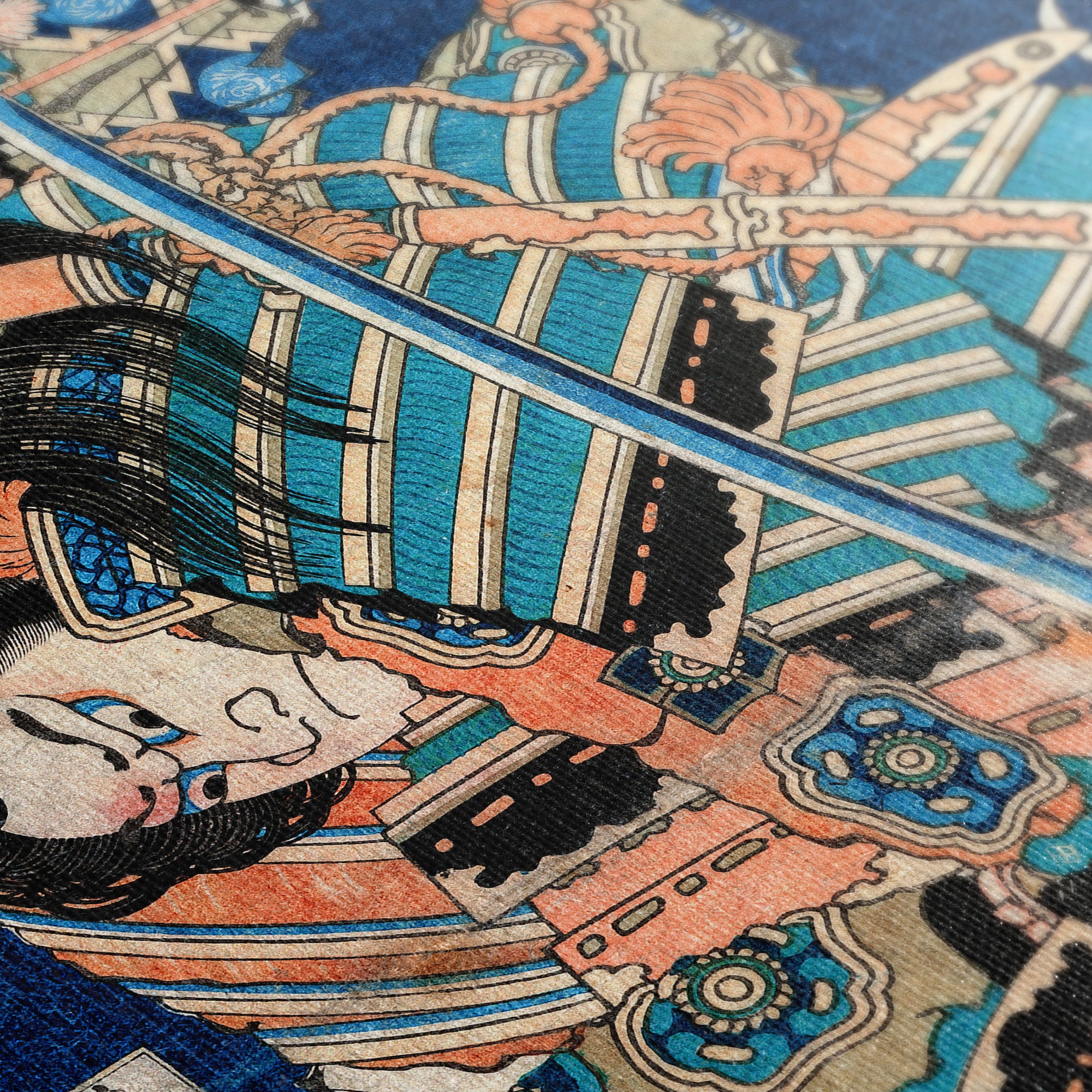 Kamakura no Gengorō Seizing Torinoumi Tasaburo (1832) by Katsushika Hokusai is a ukiyo-e woodblock print that depicts a scene from the renowned kabuki play The Chūshingura, where the heroic Minamoto warrior Kamakura no Gengorō confronts the treacherous Torinoumi Tasaburo in a thrilling ➵
Kamakura no Gengorō Seizing Torinoumi Tasaburo (1832) by Katsushika Hokusai is a ukiyo-e woodblock print that depicts a scene from the renowned kabuki play The Chūshingura, where the heroic Minamoto warrior Kamakura no Gengorō confronts the treacherous Torinoumi Tasaburo in a thrilling ➵◰ Canvas Reproductions
⧈ Framed Art Prints -
La Cité, Paris ☰ Signac ☵ Art Print

 La Cité, Paris (1934) by Paul Signac depicts the Quai de Montebello, one of the many bridges over the Seine, the trees along the bank, and Notre-Dame in the background. Signac's signature pointillist style was inspired by Georges Seurat in 1884, and ➵
La Cité, Paris (1934) by Paul Signac depicts the Quai de Montebello, one of the many bridges over the Seine, the trees along the bank, and Notre-Dame in the background. Signac's signature pointillist style was inspired by Georges Seurat in 1884, and ➵◰ Canvas Reproductions
⧈ Framed Art Prints -
La Cité, Paris ☰ Signac ☵ Canvas
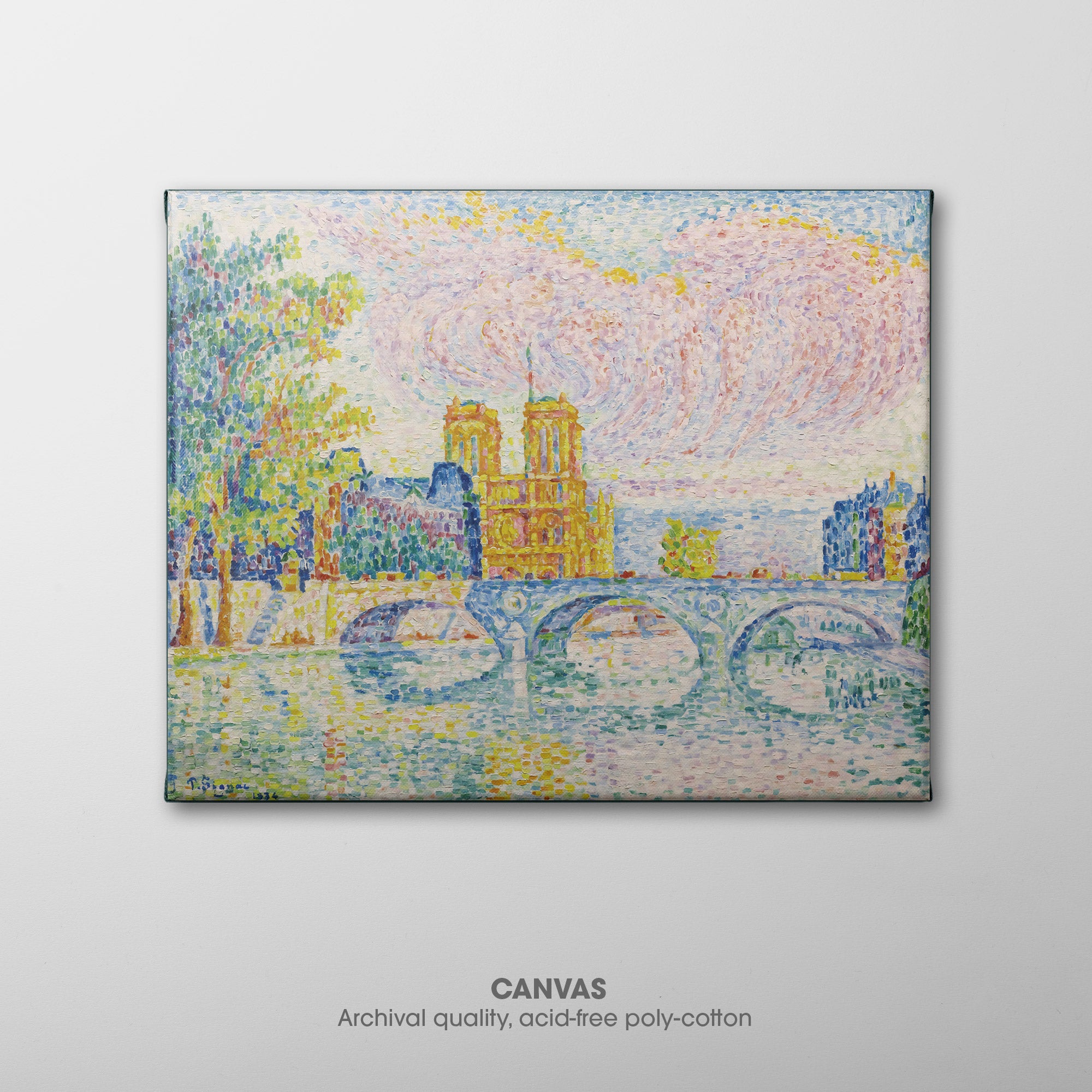
 La Cité, Paris (1934) by Paul Signac depicts the Quai de Montebello, one of the many bridges over the Seine, the trees along the bank, and Notre-Dame in the background. Signac's signature pointillist style was inspired by Georges Seurat in 1884, and ➵
La Cité, Paris (1934) by Paul Signac depicts the Quai de Montebello, one of the many bridges over the Seine, the trees along the bank, and Notre-Dame in the background. Signac's signature pointillist style was inspired by Georges Seurat in 1884, and ➵◰ Canvas Reproductions
⧈ Framed Art Prints -
La Mousmé ☷ Van Gogh ☴ Art Print
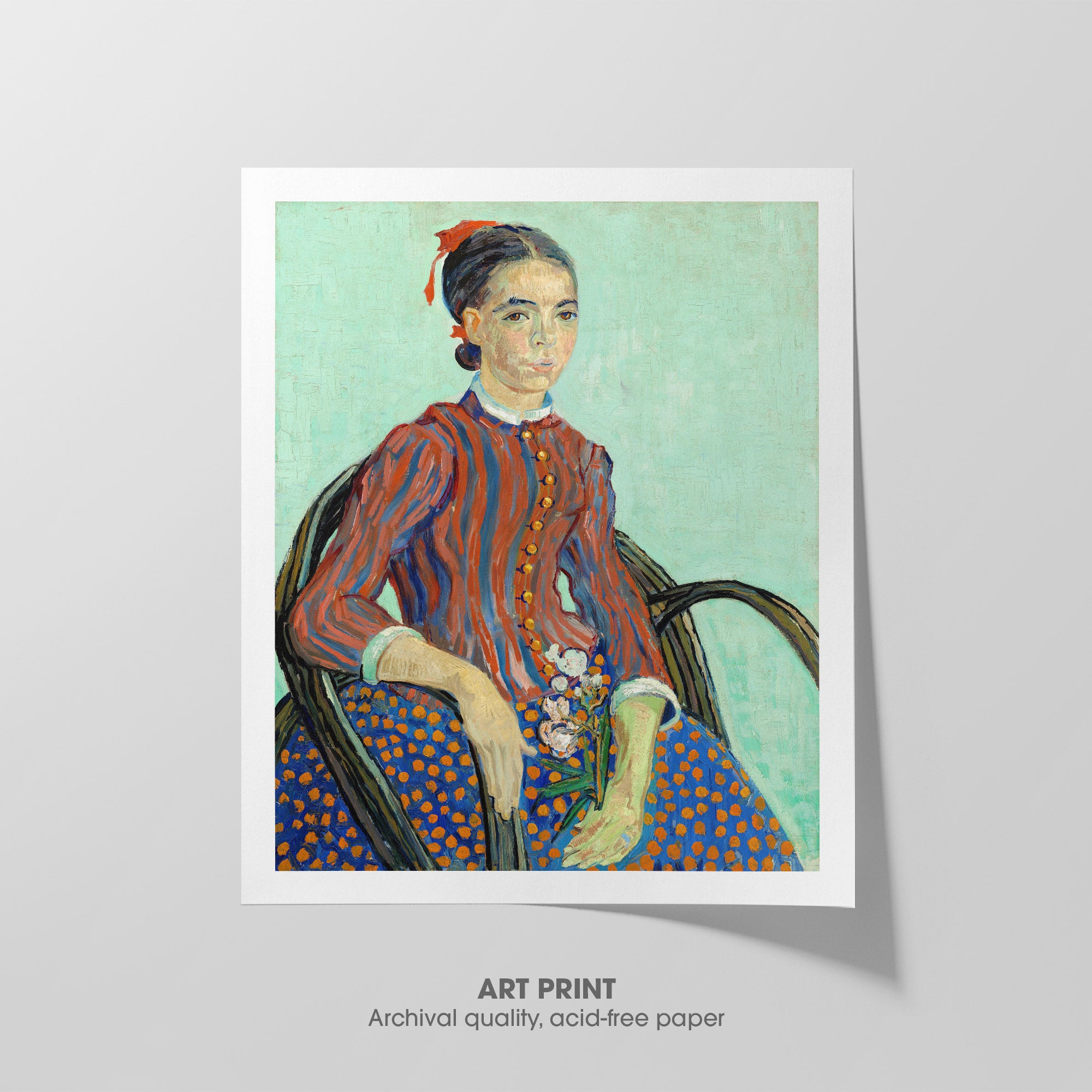
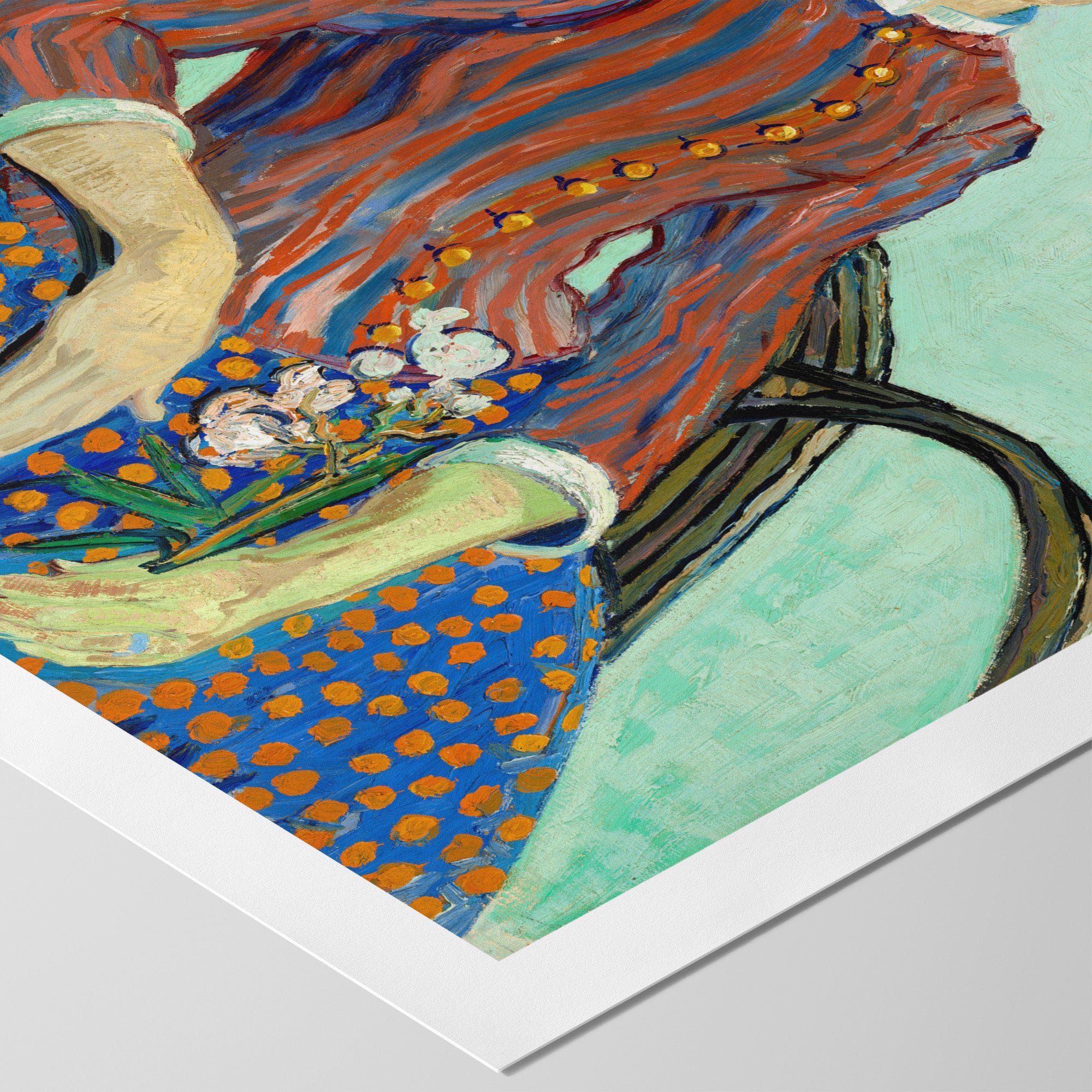 La Mousmé (1888), also known as La Mousmé, Sitting in a Cane Chair, Half-Figure with a branch of oleander, by Vincent van Gogh was inspired by his fascination with Japan and the woodblock prints he collected. He imagined Japan as a land ➵
La Mousmé (1888), also known as La Mousmé, Sitting in a Cane Chair, Half-Figure with a branch of oleander, by Vincent van Gogh was inspired by his fascination with Japan and the woodblock prints he collected. He imagined Japan as a land ➵◰ Canvas Reproductions
⧈ Framed Art Prints -
La Mousmé ☷ Van Gogh ☴ Canvas
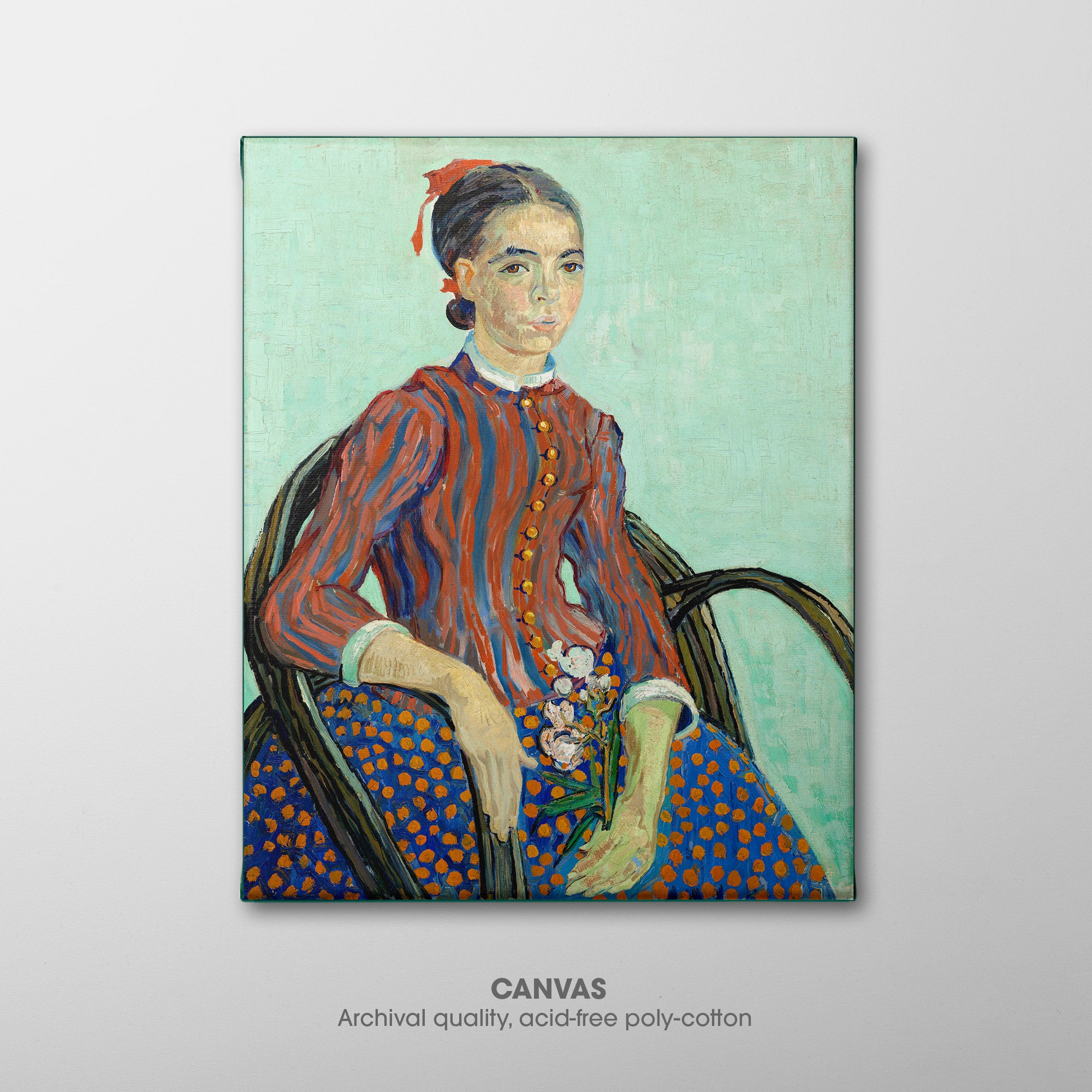
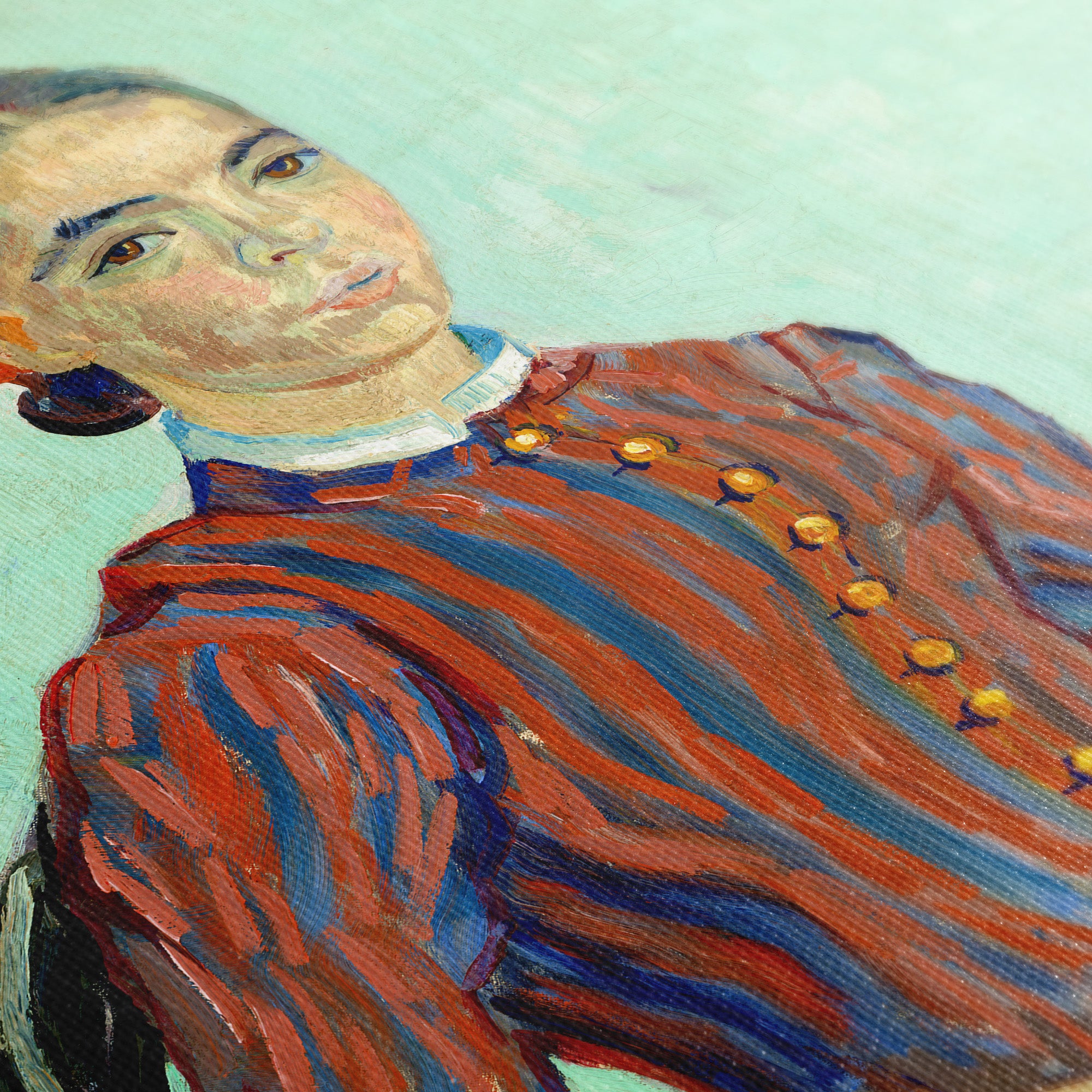 La Mousmé (1888), also known as La Mousmé, Sitting in a Cane Chair, Half-Figure with a branch of oleander, by Vincent van Gogh was inspired by his fascination with Japan and the woodblock prints he collected. He imagined Japan as a land ➵
La Mousmé (1888), also known as La Mousmé, Sitting in a Cane Chair, Half-Figure with a branch of oleander, by Vincent van Gogh was inspired by his fascination with Japan and the woodblock prints he collected. He imagined Japan as a land ➵◰ Canvas Reproductions
⧈ Framed Art Prints -
Landscape in the South ☶ Modigliani ☷ Art Print
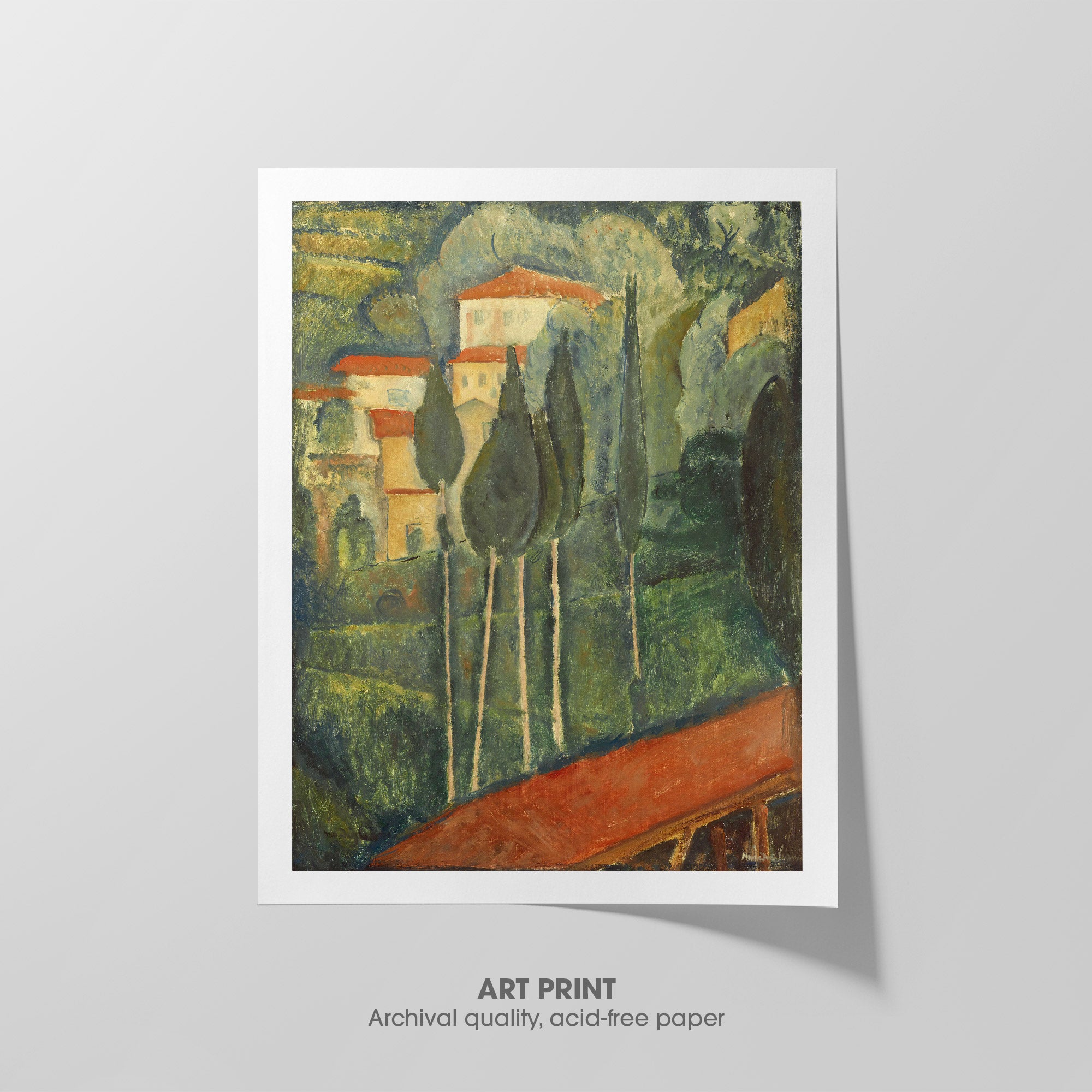
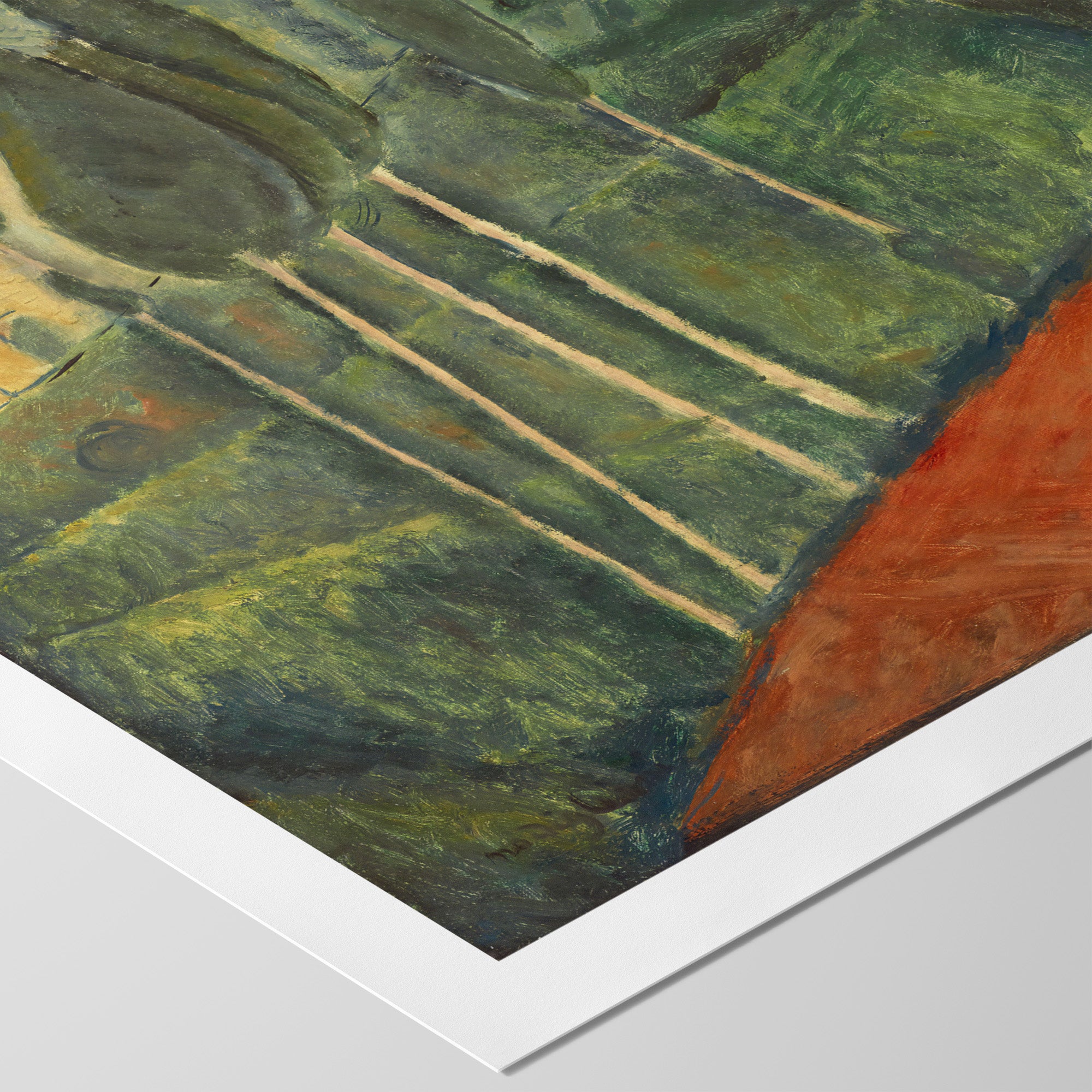 Landscape in the South (1919, Paysage dans le Midi) by Amedeo Modigliani depicts a landscape in southeastern France. Modigliani left Paris in early 1918, part of a mass exodus to the countryside at a time of increased danger to the city during ➵
Landscape in the South (1919, Paysage dans le Midi) by Amedeo Modigliani depicts a landscape in southeastern France. Modigliani left Paris in early 1918, part of a mass exodus to the countryside at a time of increased danger to the city during ➵◰ Canvas Reproductions
⧈ Framed Art Prints -
Landscape in the South ☶ Modigliani ☷ Canvas
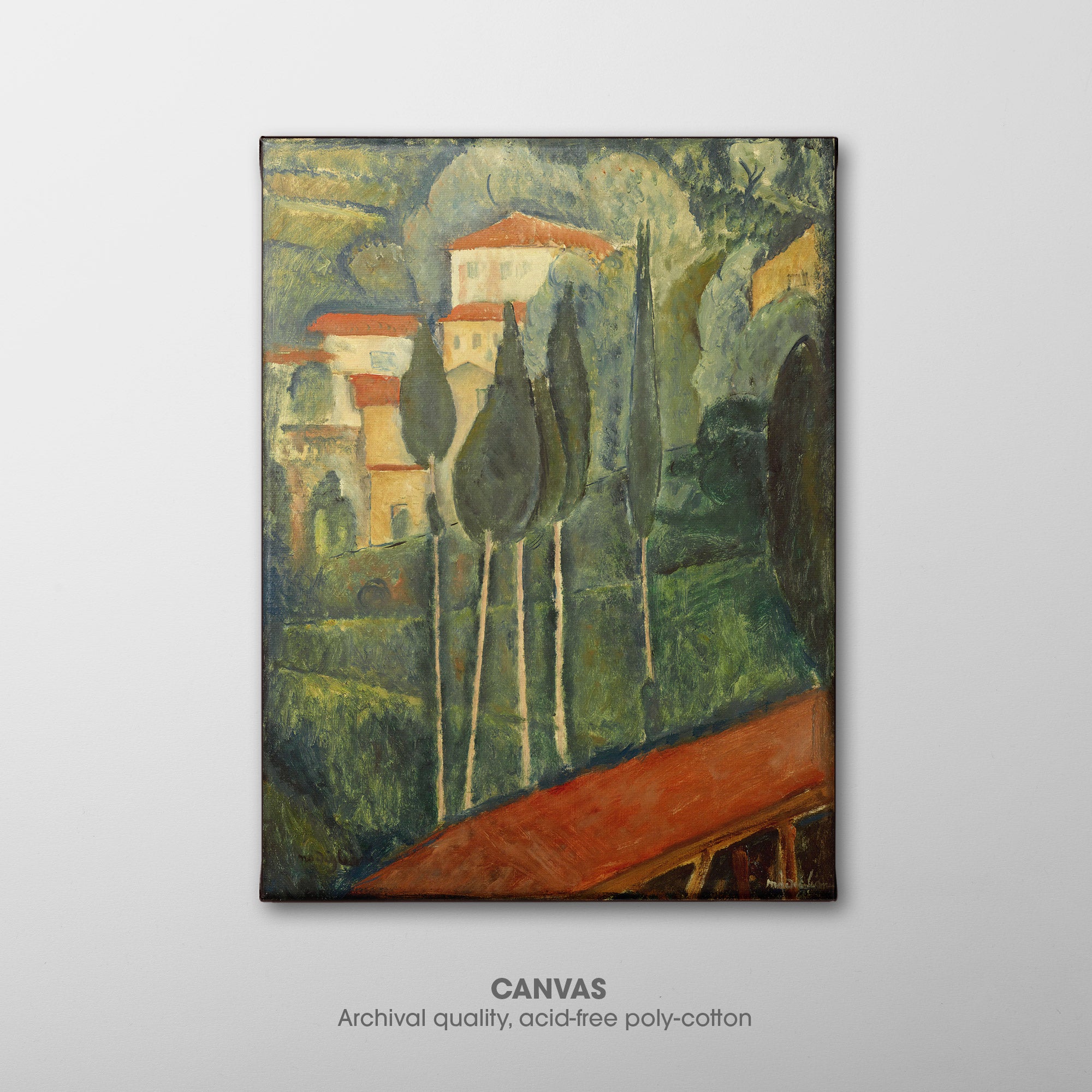
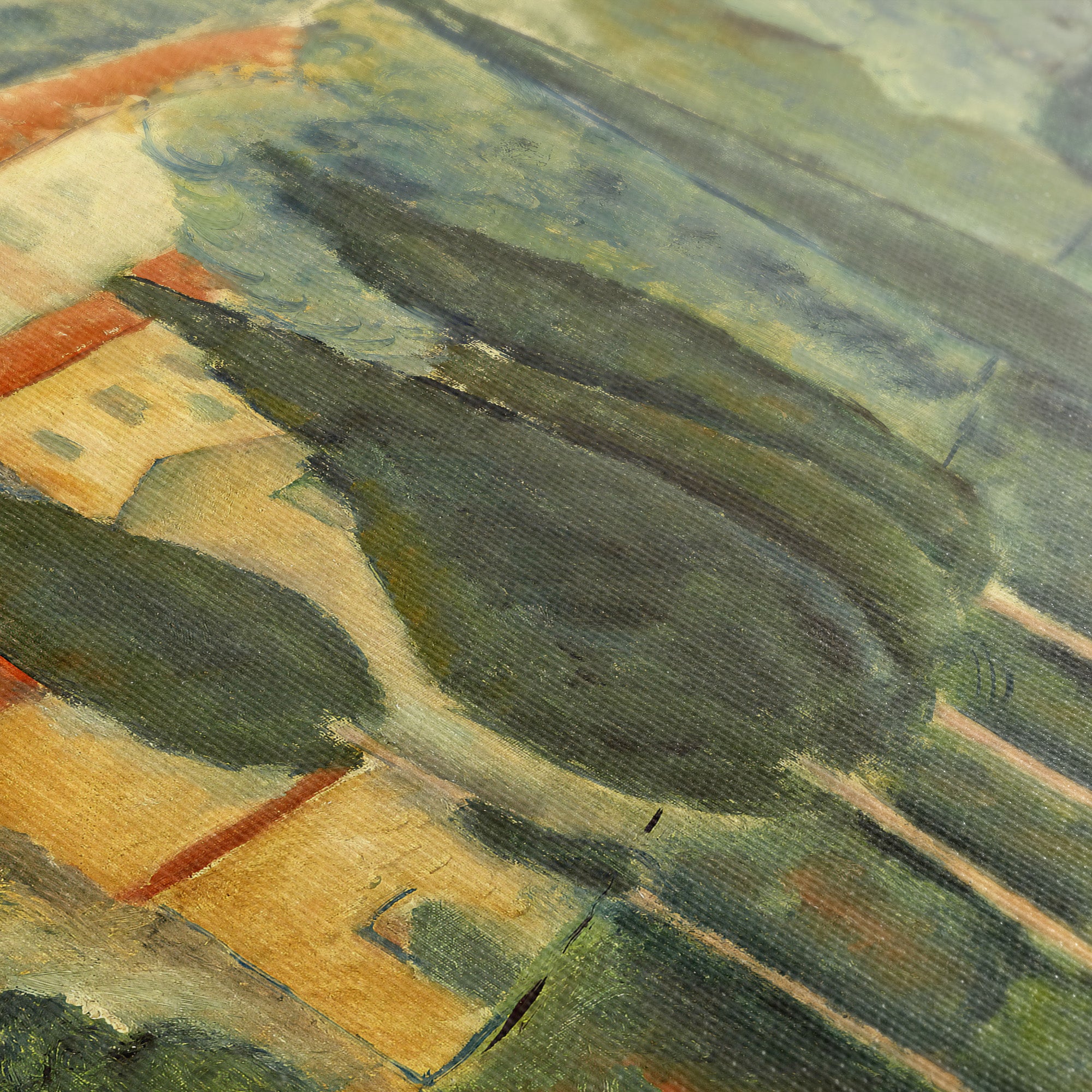 Landscape in the South (1919, Paysage dans le Midi) by Amedeo Modigliani depicts a landscape in southeastern France. Modigliani left Paris in early 1918, part of a mass exodus to the countryside at a time of increased danger to the city during ➵
Landscape in the South (1919, Paysage dans le Midi) by Amedeo Modigliani depicts a landscape in southeastern France. Modigliani left Paris in early 1918, part of a mass exodus to the countryside at a time of increased danger to the city during ➵◰ Canvas Reproductions
⧈ Framed Art Prints -
Landscape, Yellow Tree ☱ Renoir ☲ Art Print
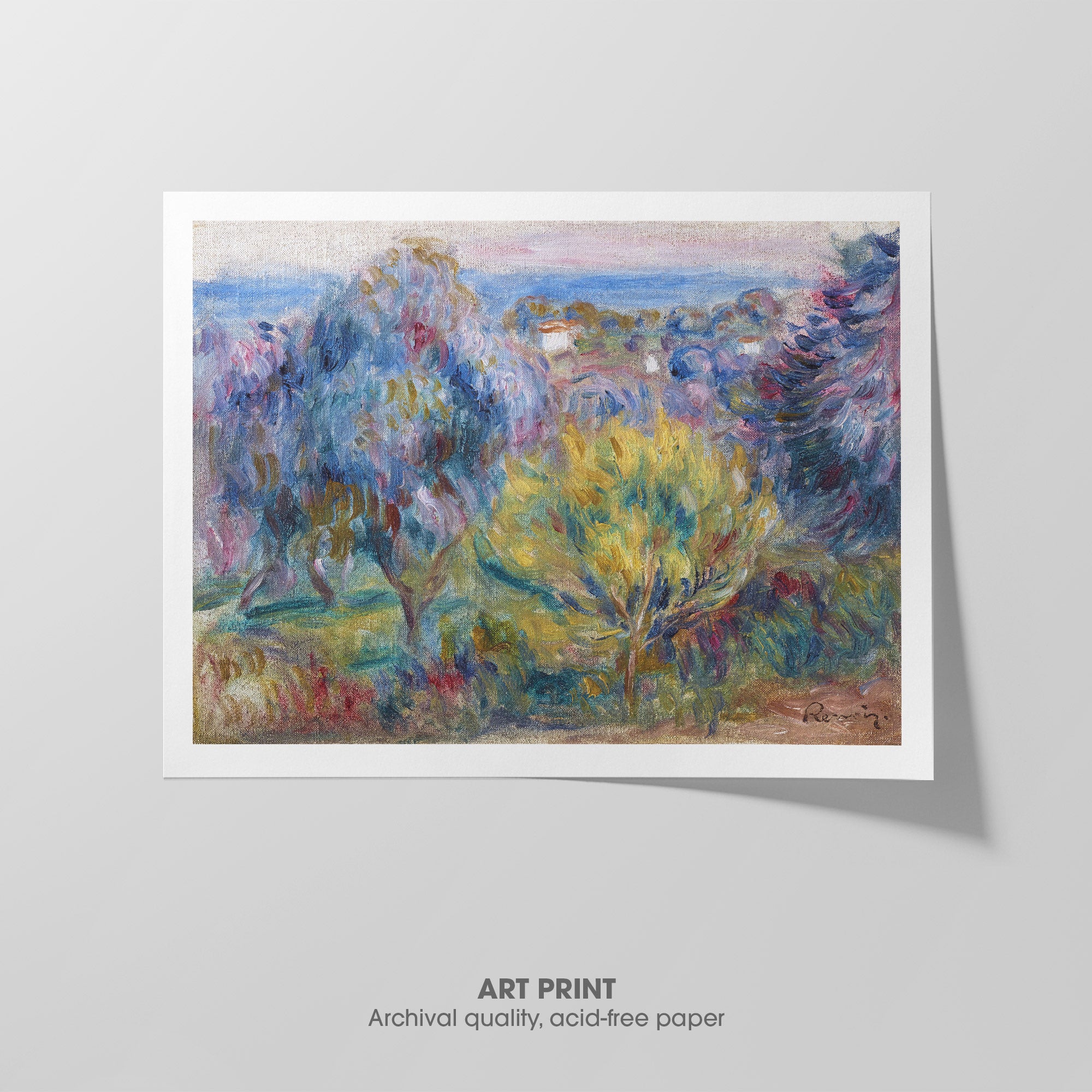
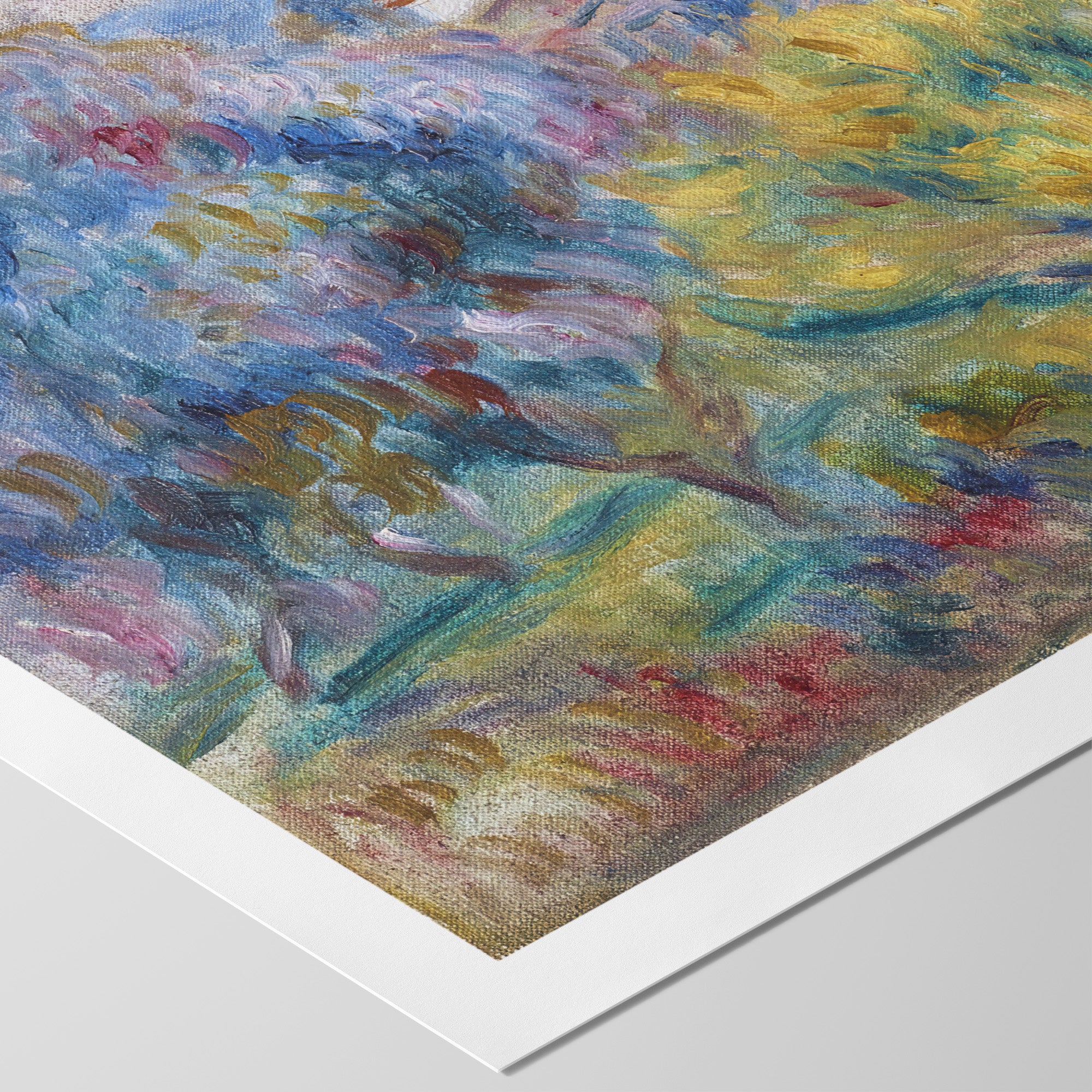 Landscape, Yellow Tree in the foreground and Sea background in the South (1914, Paysage, arbre jaune au premier plan et fond de mer dans le Midi) by Pierre-Auguste Renoir depicts the countryside surrounding Renoir's newly built home at Les Collettes on the ➵
Landscape, Yellow Tree in the foreground and Sea background in the South (1914, Paysage, arbre jaune au premier plan et fond de mer dans le Midi) by Pierre-Auguste Renoir depicts the countryside surrounding Renoir's newly built home at Les Collettes on the ➵◰ Canvas Reproductions
⧈ Framed Art Prints -
Landscape, Yellow Tree ☱ Renoir ☲ Canvas
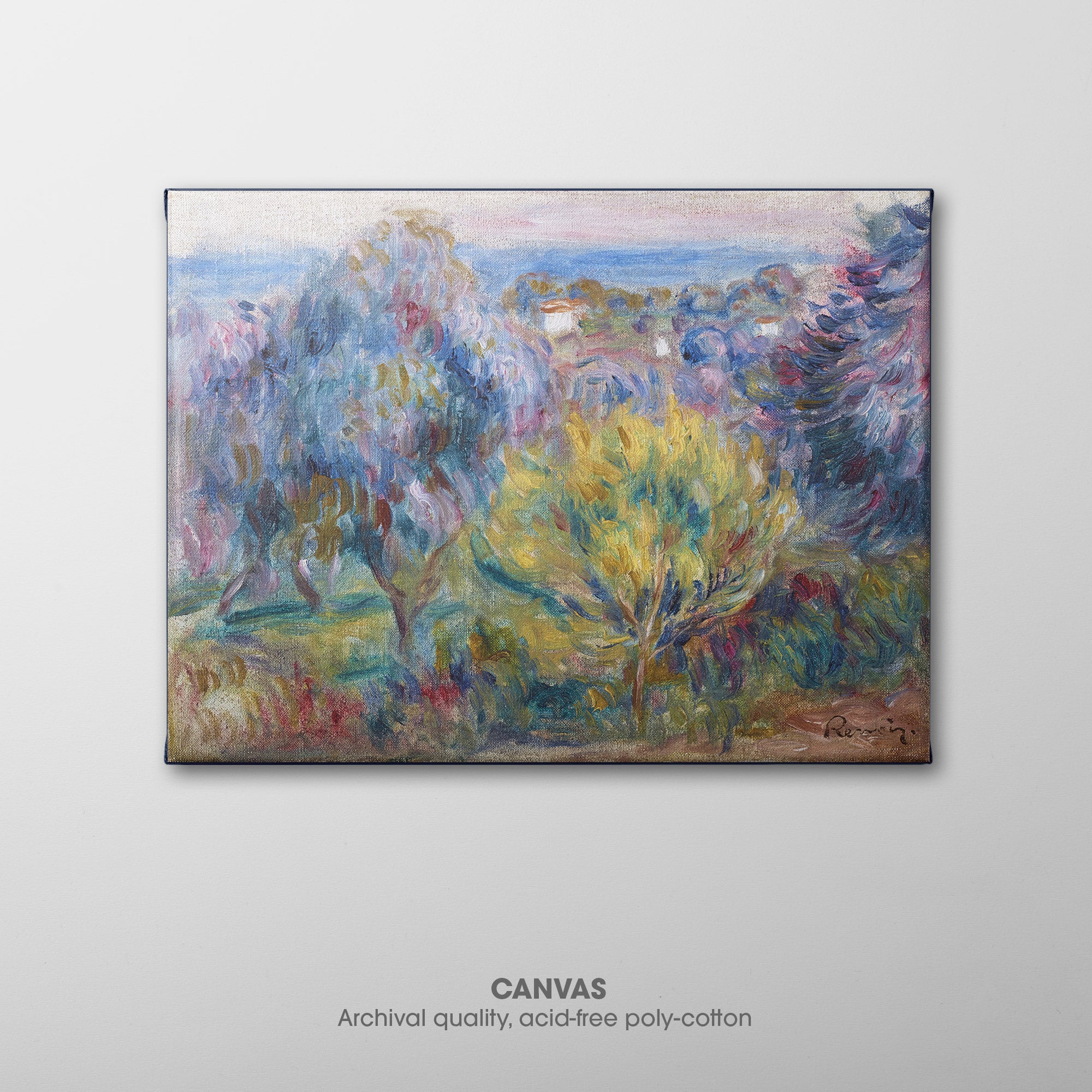
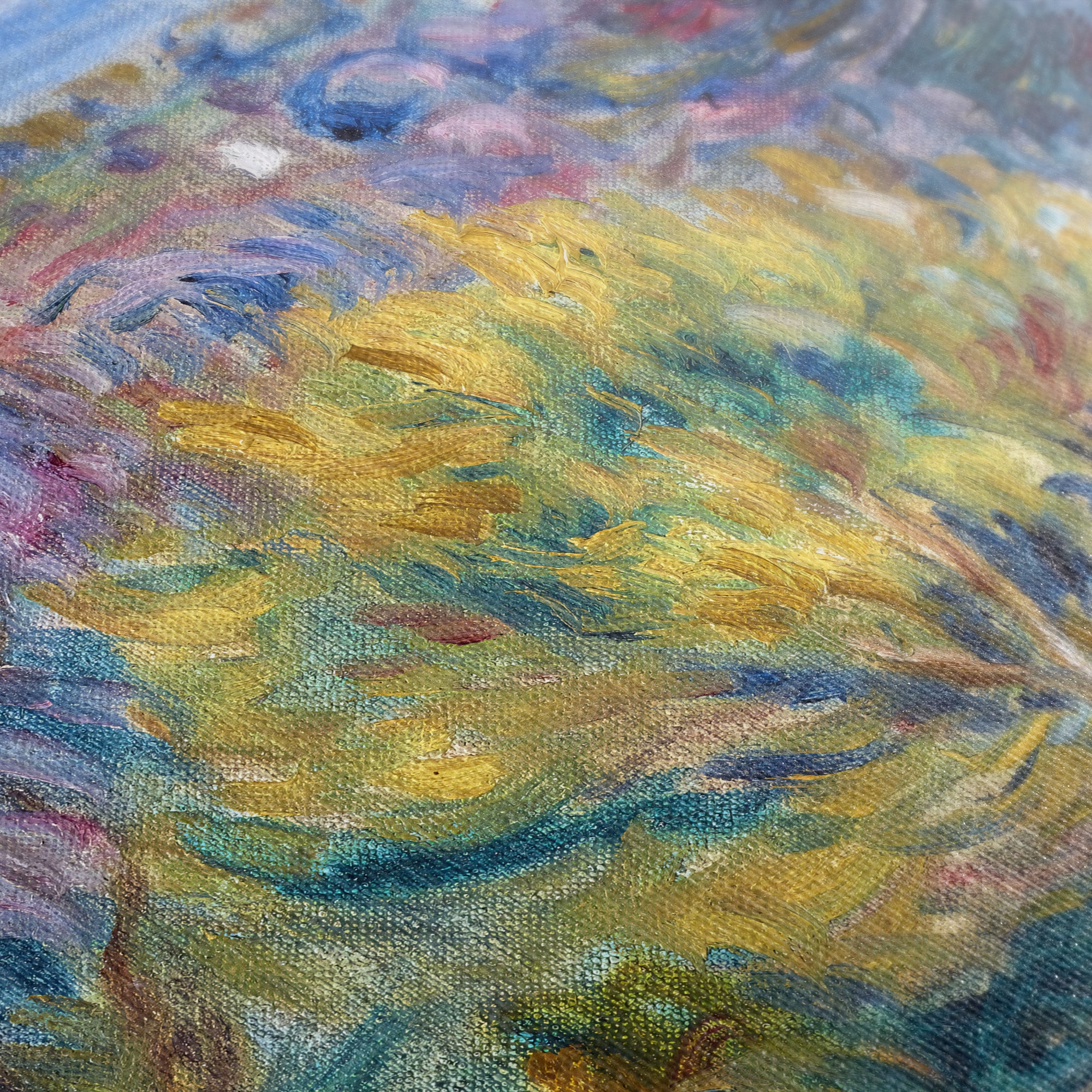 Landscape, Yellow Tree in the foreground and Sea background in the South (1914, Paysage, arbre jaune au premier plan et fond de mer dans le Midi) by Pierre-Auguste Renoir depicts the countryside surrounding Renoir's newly built home at Les Collettes on the ➵
Landscape, Yellow Tree in the foreground and Sea background in the South (1914, Paysage, arbre jaune au premier plan et fond de mer dans le Midi) by Pierre-Auguste Renoir depicts the countryside surrounding Renoir's newly built home at Les Collettes on the ➵◰ Canvas Reproductions
⧈ Framed Art Prints -
Last Judgment ☰ Bosch ☲ Art Print
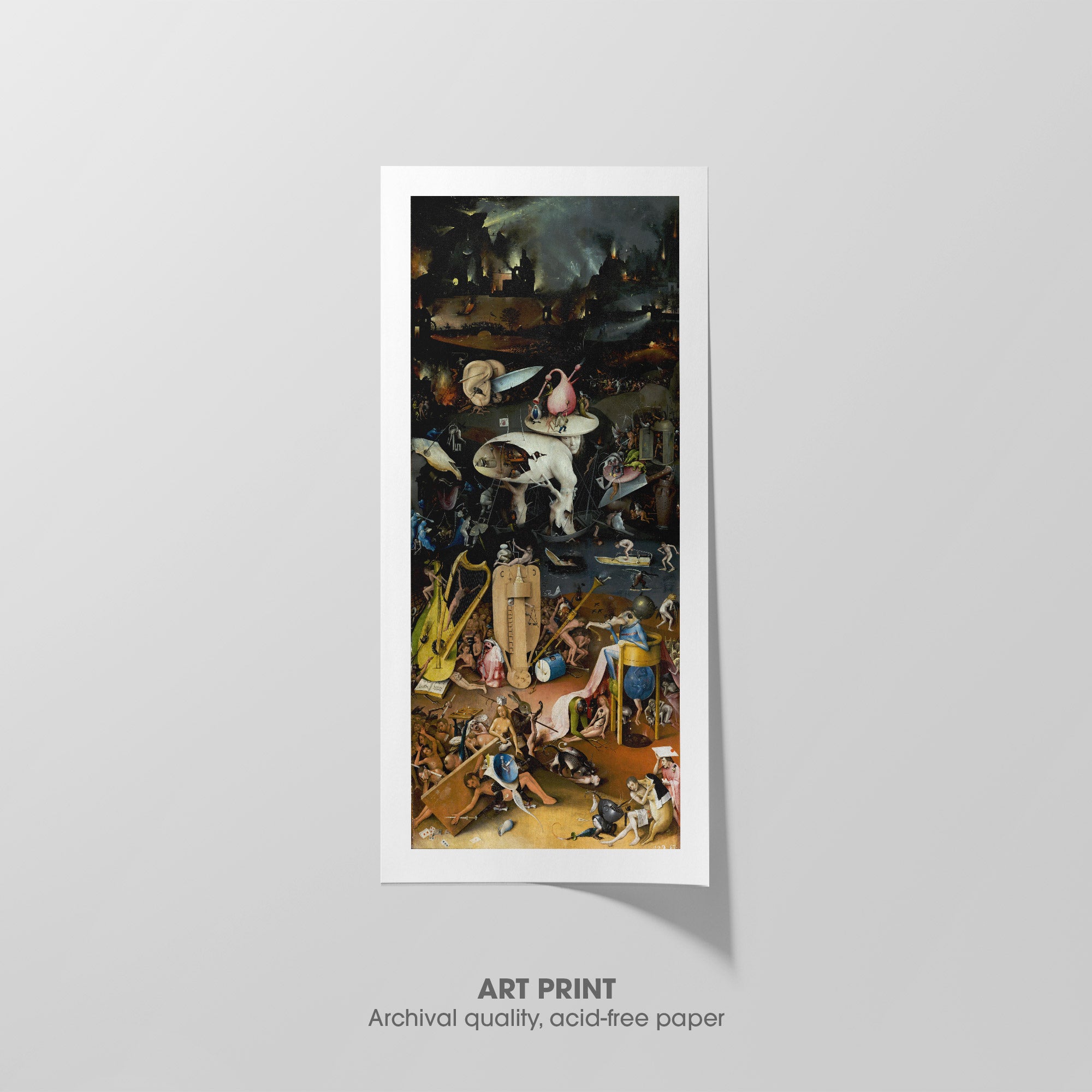
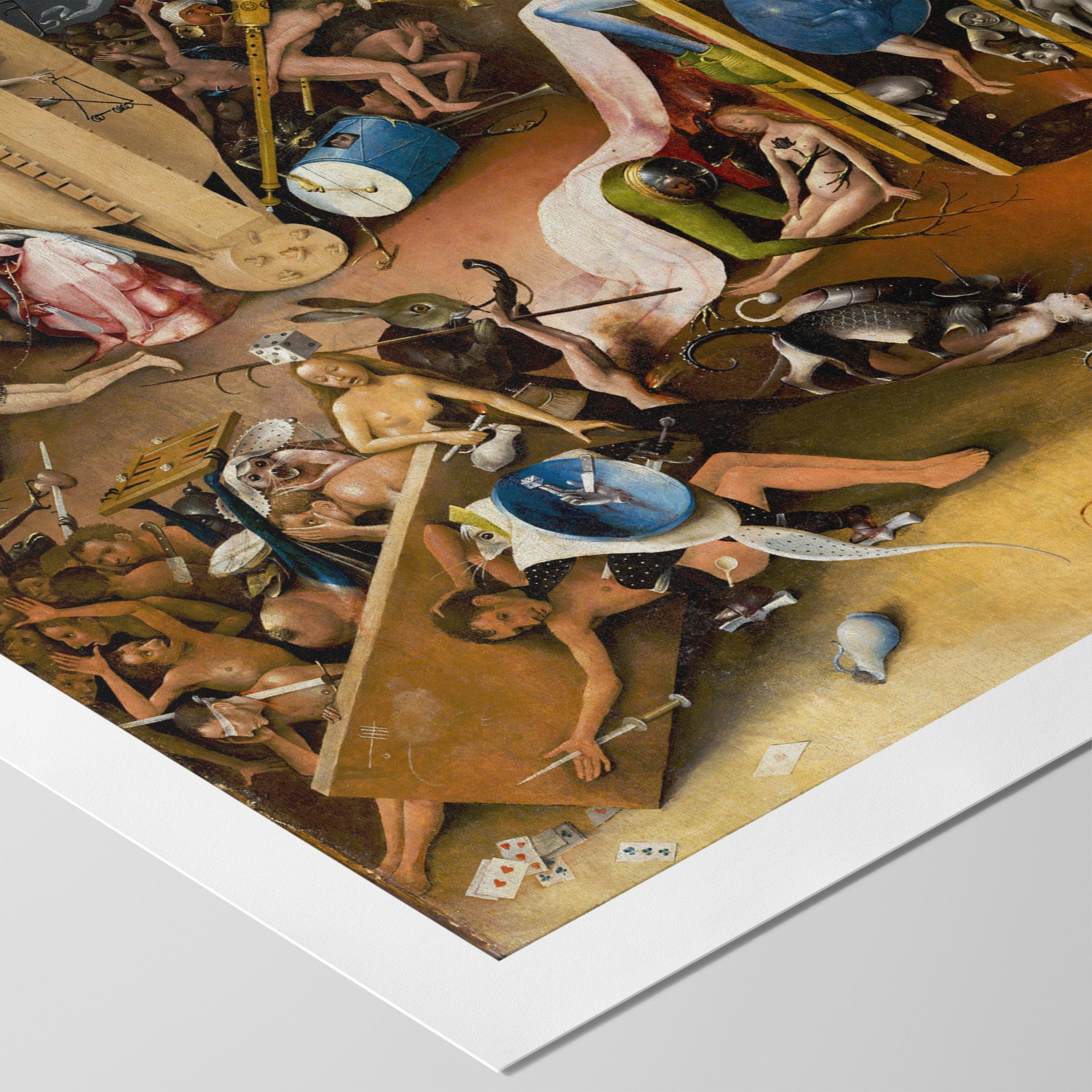 The Garden of Earthly Delights (1510, De tuin der lusten) by Hieronymus Bosch is a religious triptych warning against the perils of temptation. Triptychs from this period were generally read left to right, here the left panel portrays The Garden of Eden ➵
The Garden of Earthly Delights (1510, De tuin der lusten) by Hieronymus Bosch is a religious triptych warning against the perils of temptation. Triptychs from this period were generally read left to right, here the left panel portrays The Garden of Eden ➵◰ Canvas Reproductions
⧈ Framed Art Prints -
Last Judgment ☰ Bosch ☲ Canvas
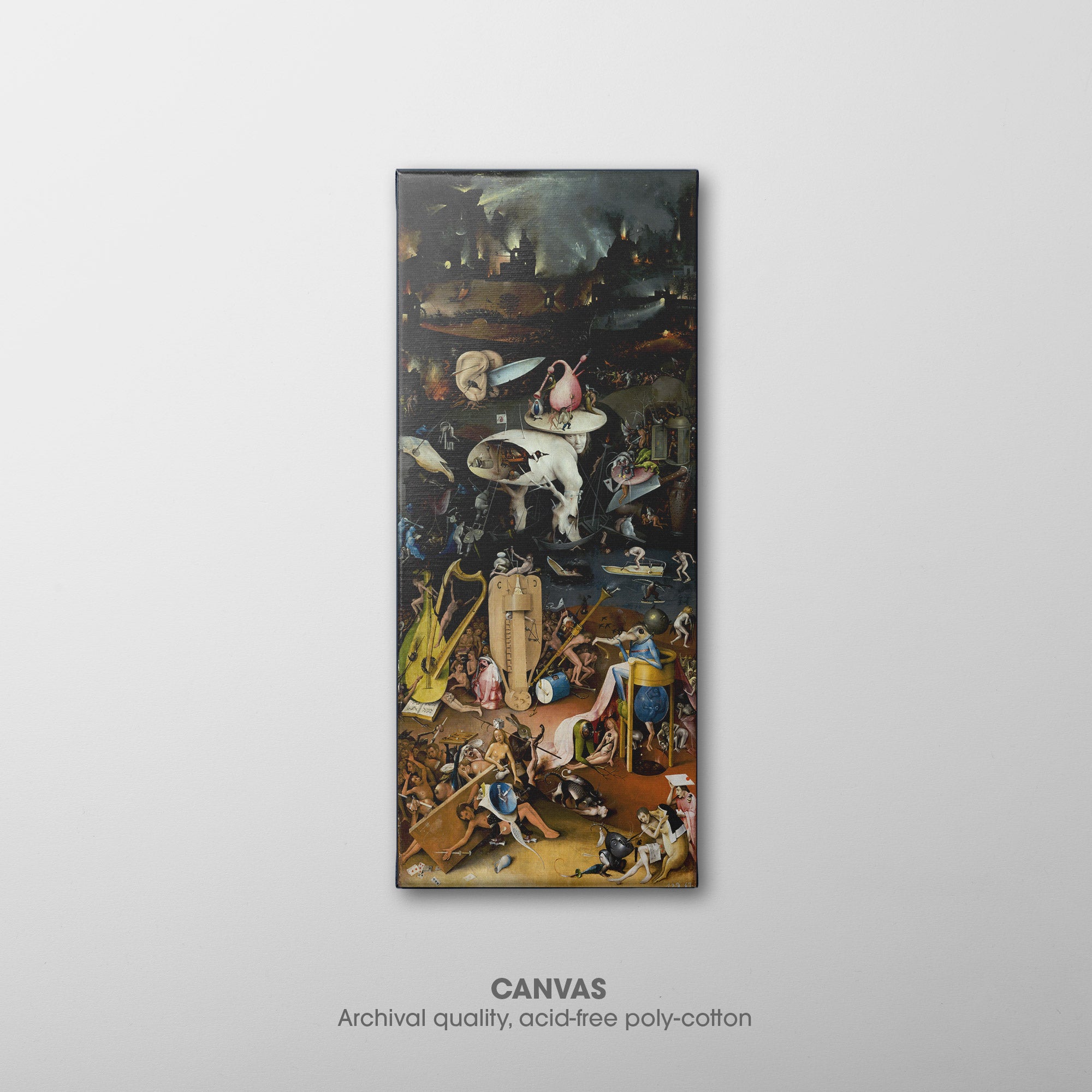
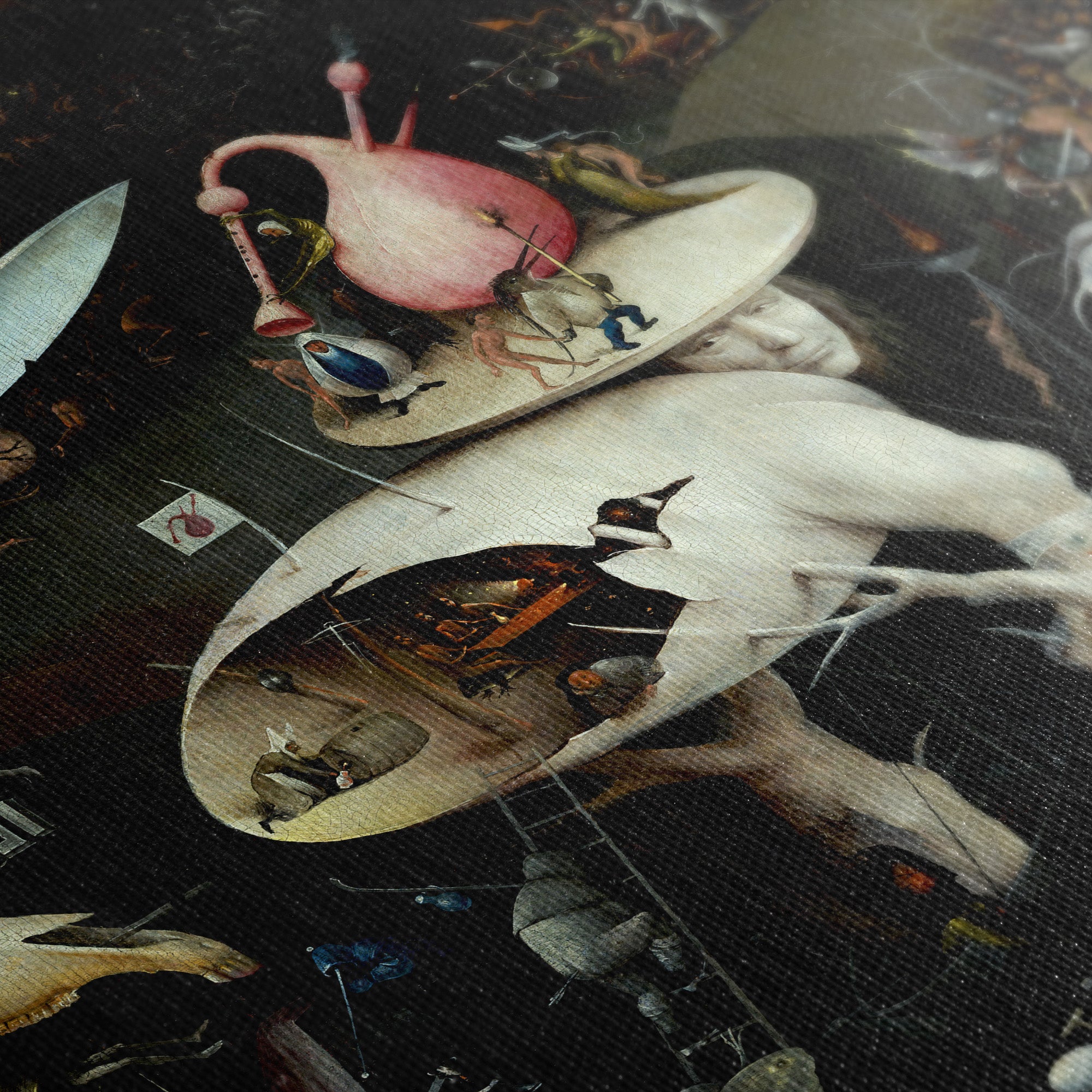 The Garden of Earthly Delights (1510, De tuin der lusten) by Hieronymus Bosch is a religious triptych warning against the perils of temptation. Triptychs from this period were generally read left to right, here the left panel portrays The Garden of Eden ➵
The Garden of Earthly Delights (1510, De tuin der lusten) by Hieronymus Bosch is a religious triptych warning against the perils of temptation. Triptychs from this period were generally read left to right, here the left panel portrays The Garden of Eden ➵◰ Canvas Reproductions
⧈ Framed Art Prints -
Léopold Survage ☰ Modigliani ☷ Art Print

 Portrait of the Artist Léopold Survage (1918) by Amedeo Modigliani dates from his most creative period. Léopold Survage (31 July 1879 - 31 October 1968) was a Russian-French painter who attended art school in Moscow, and moved to Paris around 1908. Survage ➵
Portrait of the Artist Léopold Survage (1918) by Amedeo Modigliani dates from his most creative period. Léopold Survage (31 July 1879 - 31 October 1968) was a Russian-French painter who attended art school in Moscow, and moved to Paris around 1908. Survage ➵◰ Canvas Reproductions
⧈ Framed Art Prints -
Léopold Survage ☰ Modigliani ☷ Canvas

 Portrait of the Artist Léopold Survage (1918) by Amedeo Modigliani dates from his most creative period. Léopold Survage (31 July 1879 - 31 October 1968) was a Russian-French painter who attended art school in Moscow, and moved to Paris around 1908. Survage ➵
Portrait of the Artist Léopold Survage (1918) by Amedeo Modigliani dates from his most creative period. Léopold Survage (31 July 1879 - 31 October 1968) was a Russian-French painter who attended art school in Moscow, and moved to Paris around 1908. Survage ➵◰ Canvas Reproductions
⧈ Framed Art Prints -
Life is a Struggle ☵ Klimt ☲ Art Print
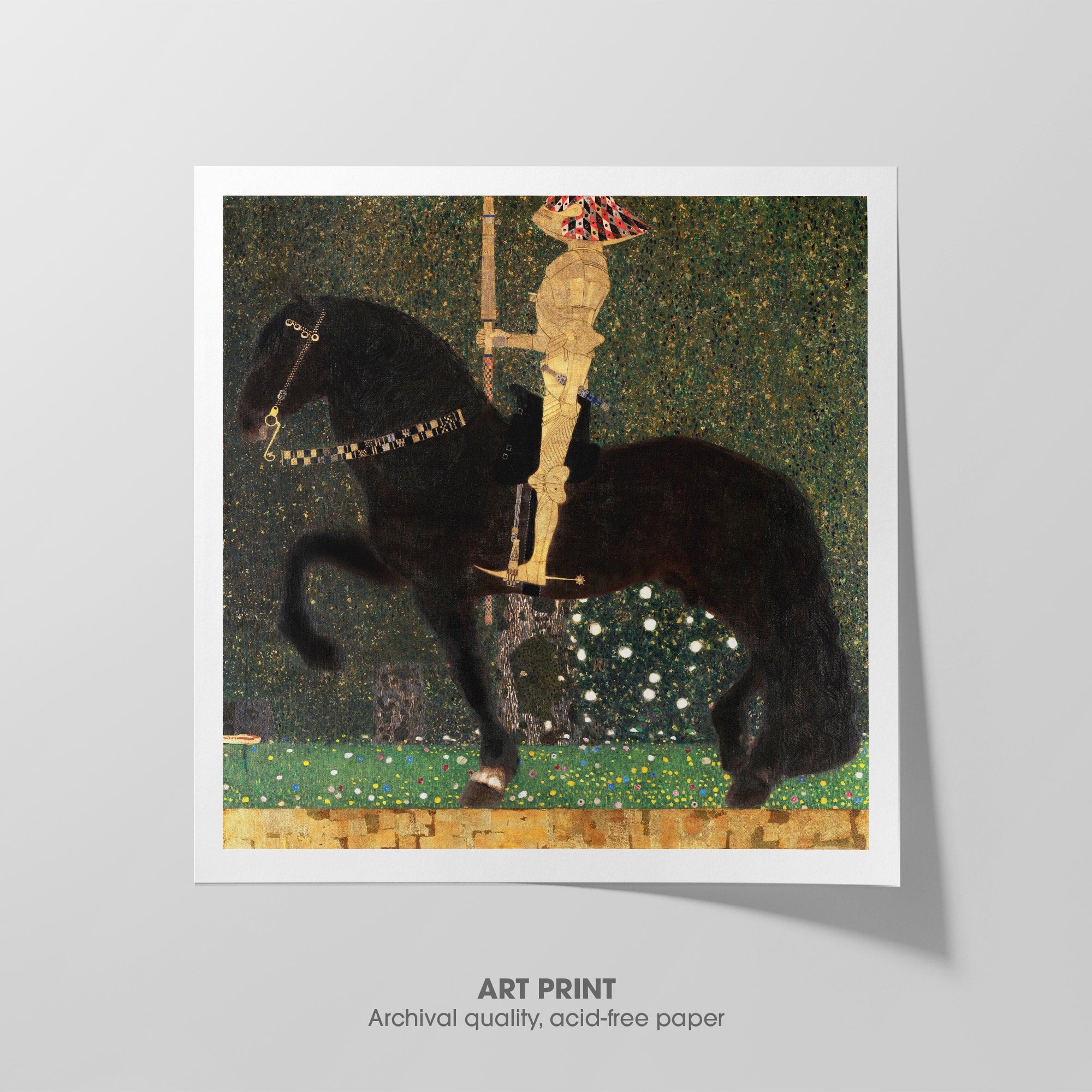
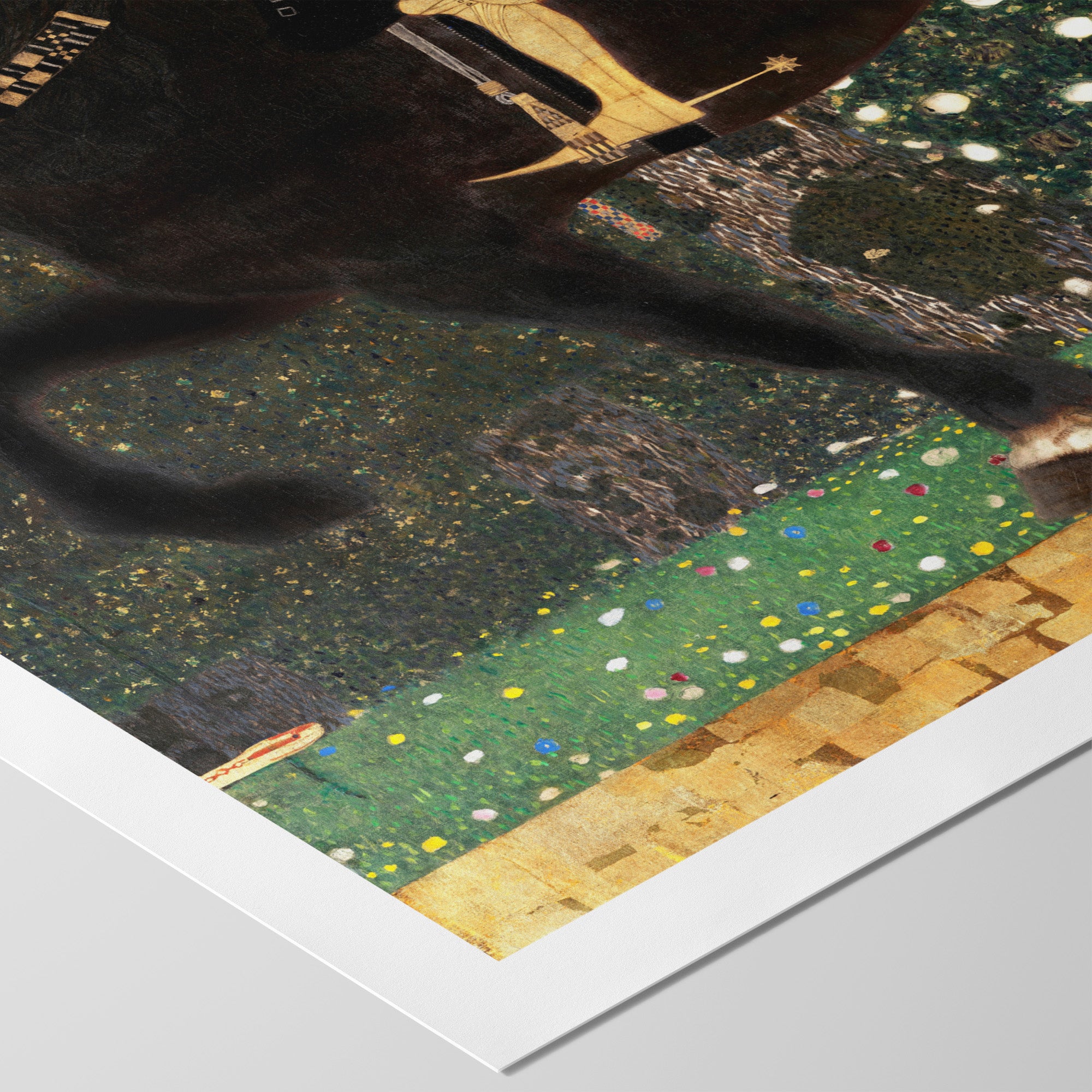 Life is a Struggle (1903) by Gustav Klimt, also known as The Golden Knight, depicts a knight in golden armor confronted by a snake. The knight and his horse are richly detailed, decorated in diamond and square patterns, against an intricate backdrop ➵
Life is a Struggle (1903) by Gustav Klimt, also known as The Golden Knight, depicts a knight in golden armor confronted by a snake. The knight and his horse are richly detailed, decorated in diamond and square patterns, against an intricate backdrop ➵◰ Canvas Reproductions
⧈ Framed Art Prints -
Life is a Struggle ☵ Klimt ☲ Canvas
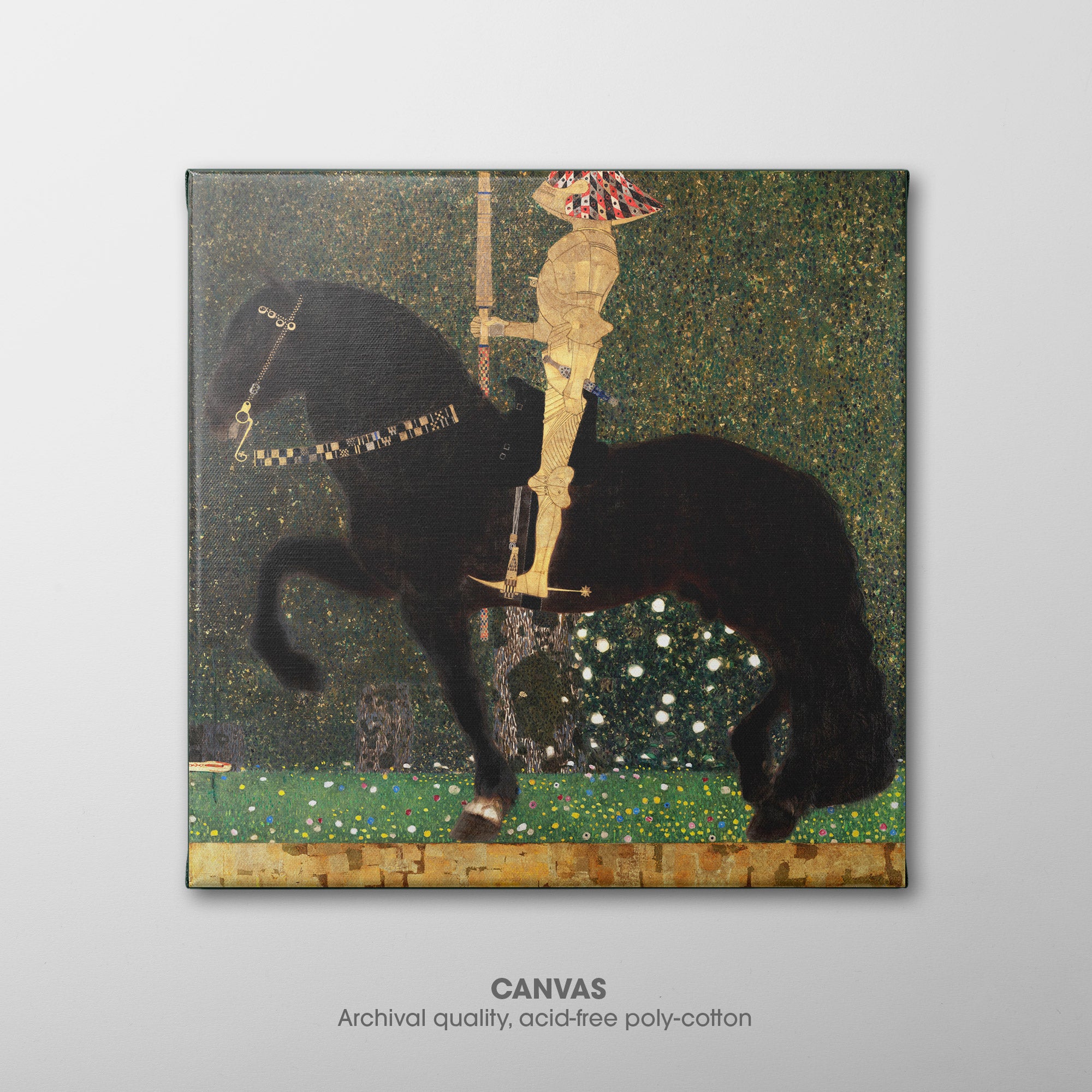
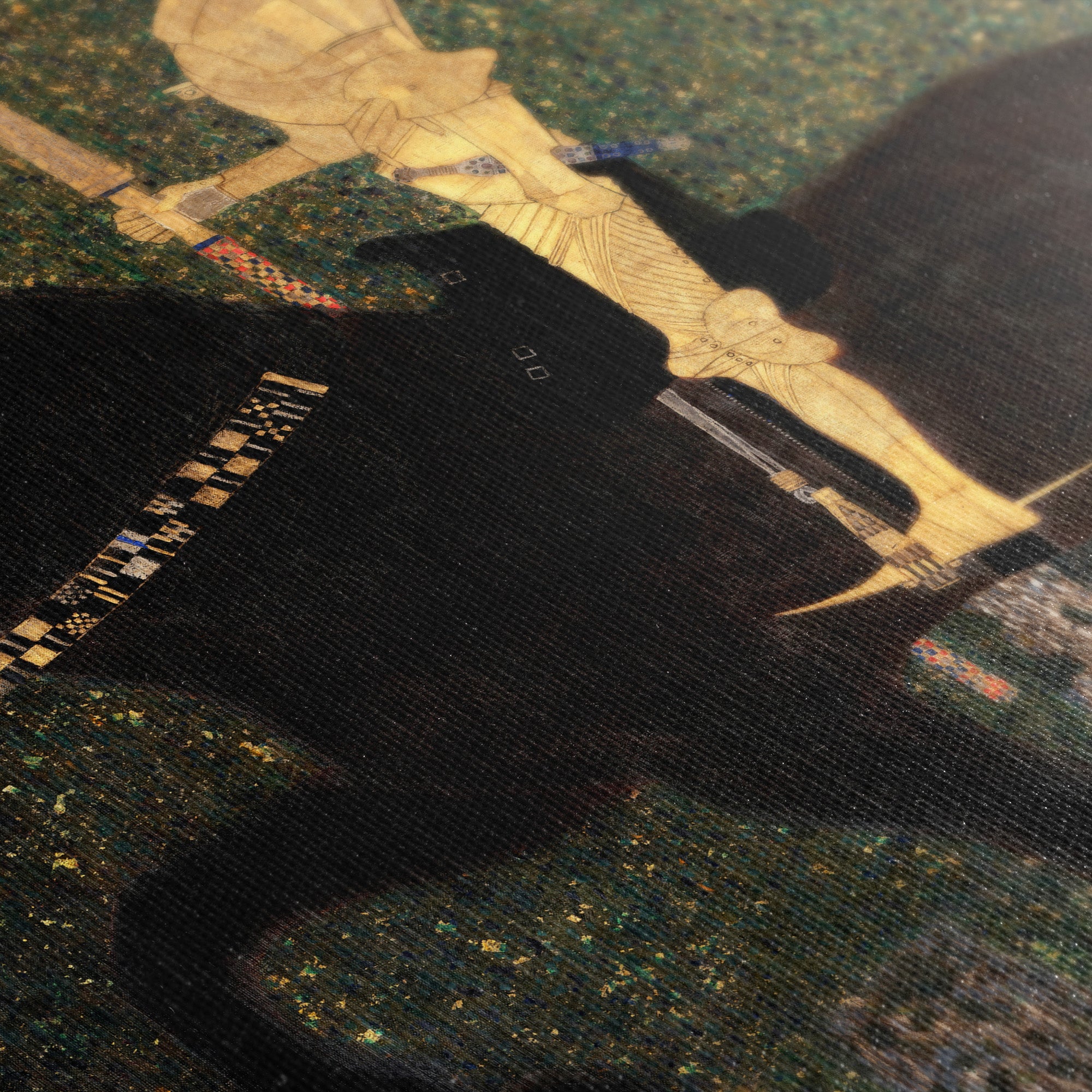 Life is a Struggle (1903) by Gustav Klimt, also known as The Golden Knight, depicts a knight in golden armor confronted by a snake. The knight and his horse are richly detailed, decorated in diamond and square patterns, against an intricate backdrop ➵
Life is a Struggle (1903) by Gustav Klimt, also known as The Golden Knight, depicts a knight in golden armor confronted by a snake. The knight and his horse are richly detailed, decorated in diamond and square patterns, against an intricate backdrop ➵◰ Canvas Reproductions
⧈ Framed Art Prints -
Love and Pain ☲ Munch ☵ Art Print
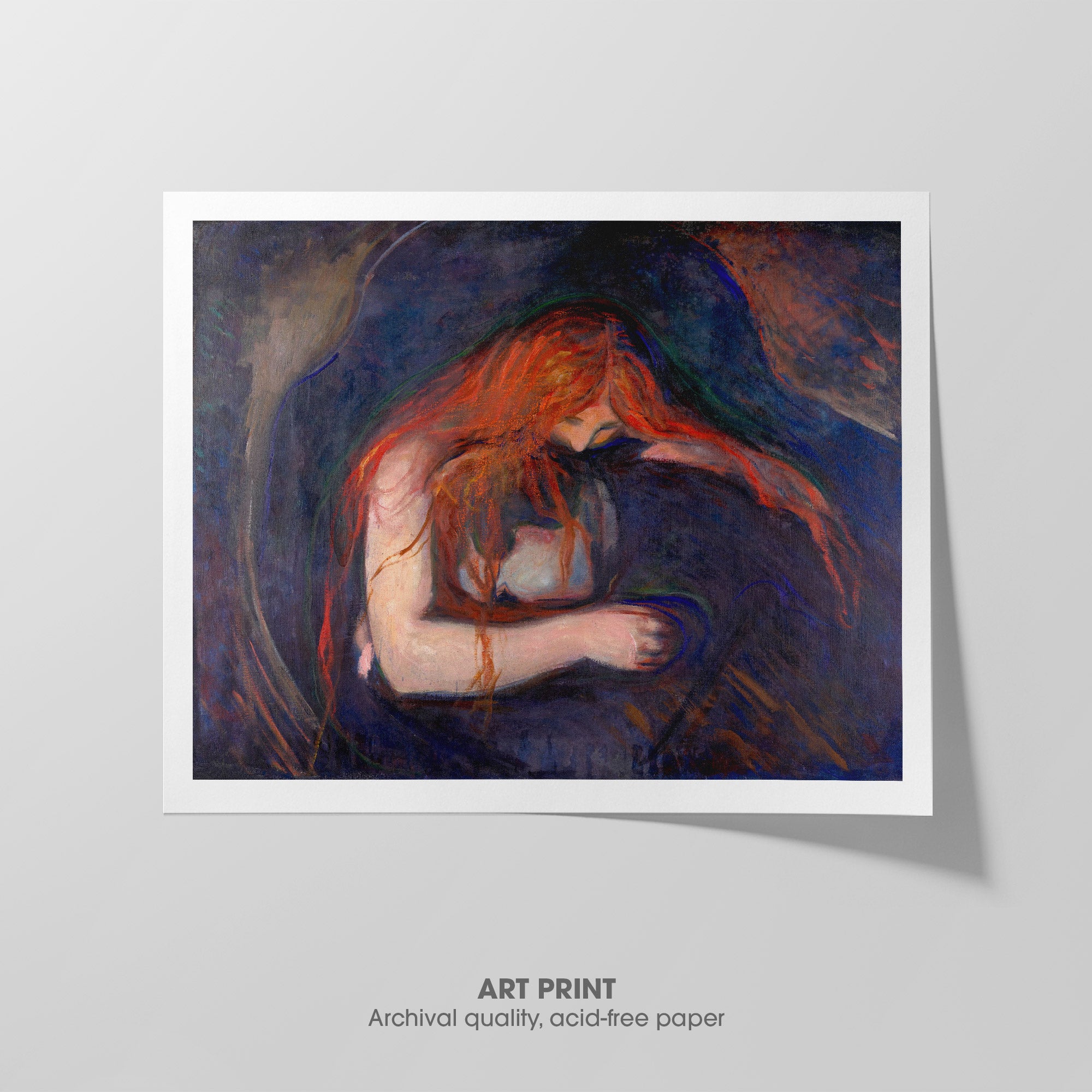
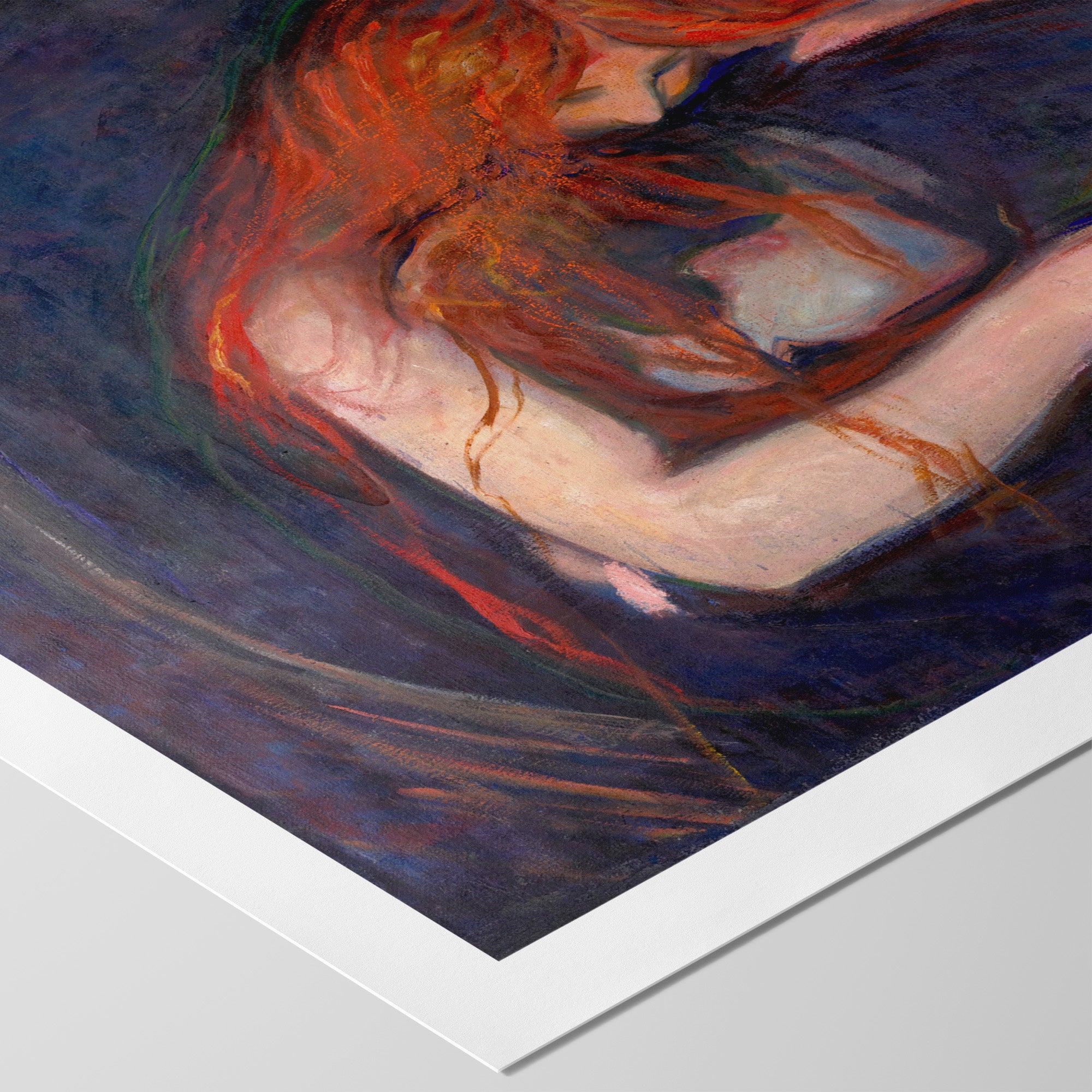 Love and Pain (1895) by Edvard Munch, also referred to as Vampire (though not by Munch), is one of six different versions created between 1893 and 1895. It depicts a woman with bright red hair embracing a man, and kissing his neck. ➵
Love and Pain (1895) by Edvard Munch, also referred to as Vampire (though not by Munch), is one of six different versions created between 1893 and 1895. It depicts a woman with bright red hair embracing a man, and kissing his neck. ➵◰ Canvas Reproductions
⧈ Framed Art Prints -
Love and Pain ☲ Munch ☵ Canvas
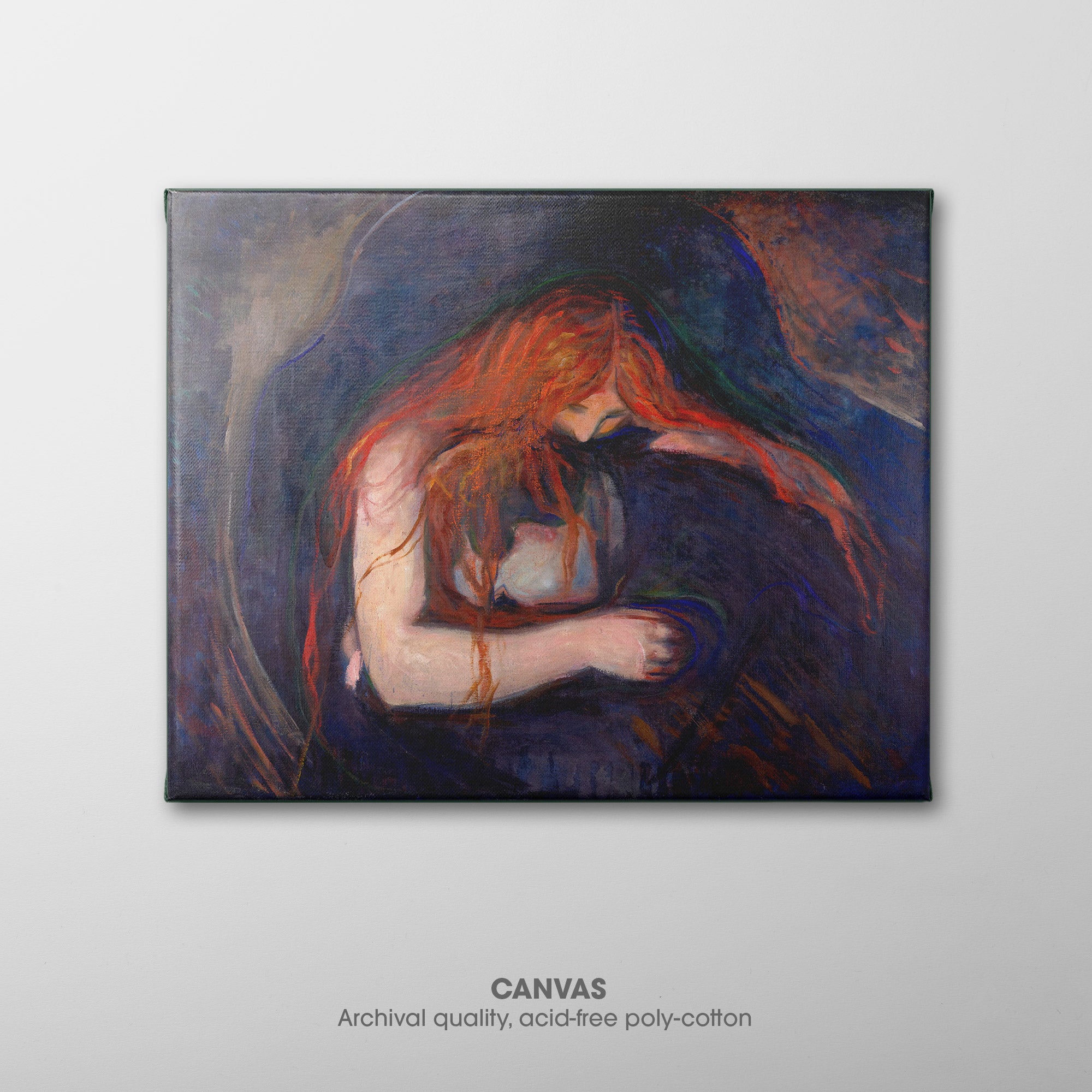
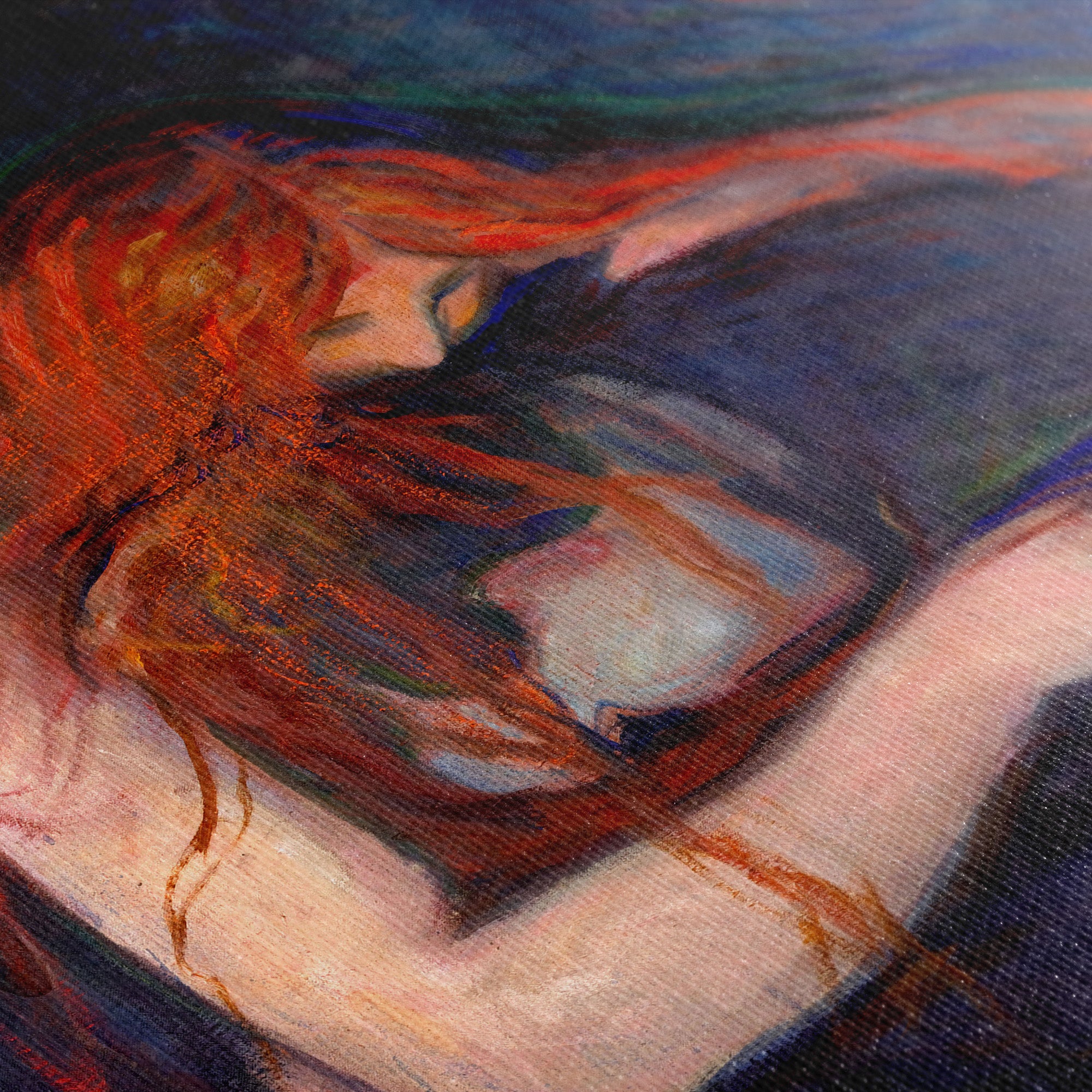 Love and Pain (1895) by Edvard Munch, also referred to as Vampire (though not by Munch), is one of six different versions created between 1893 and 1895. It depicts a woman with bright red hair embracing a man, and kissing his neck. ➵
Love and Pain (1895) by Edvard Munch, also referred to as Vampire (though not by Munch), is one of six different versions created between 1893 and 1895. It depicts a woman with bright red hair embracing a man, and kissing his neck. ➵◰ Canvas Reproductions
⧈ Framed Art Prints -
Madonna ☴ Munch ☱ Art Print
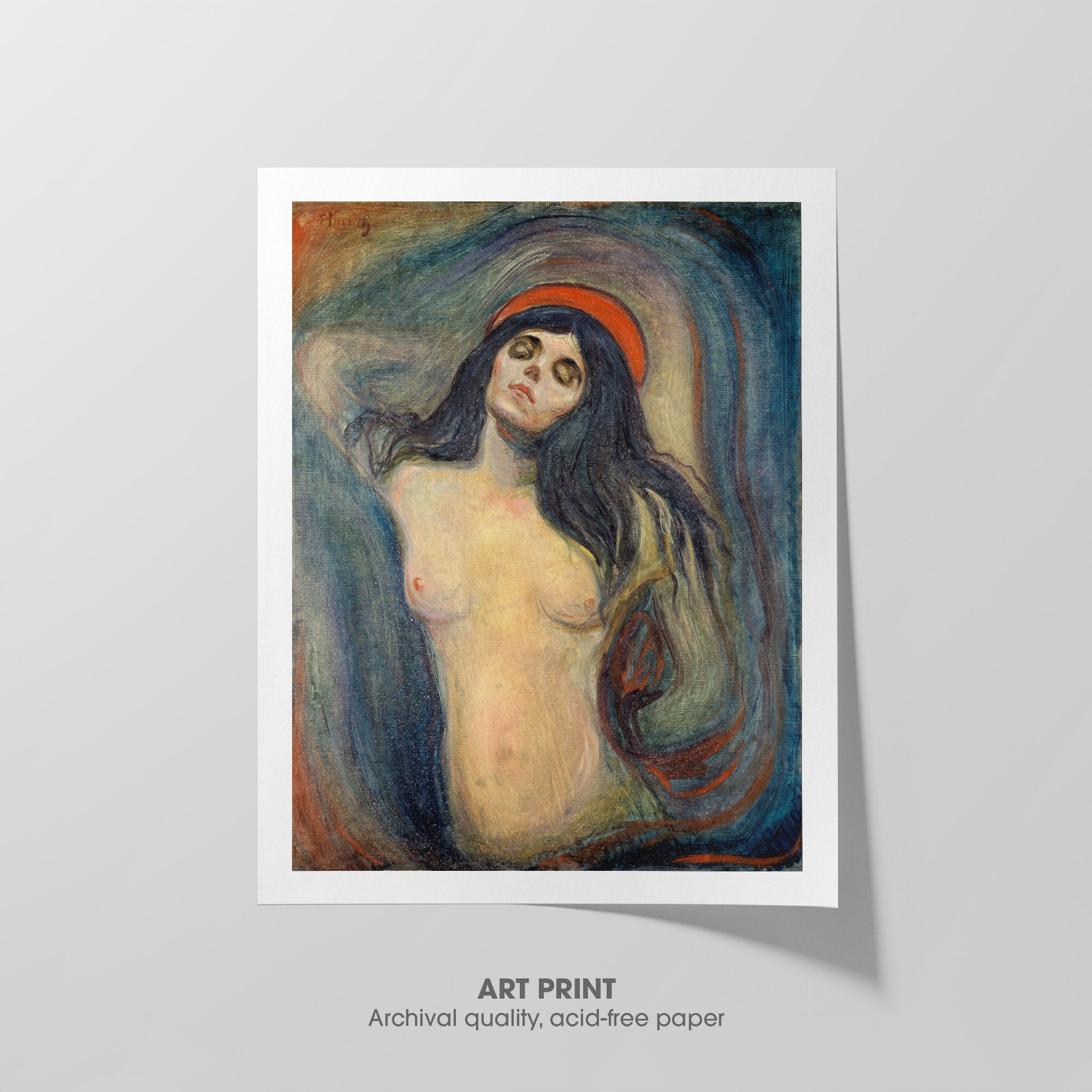
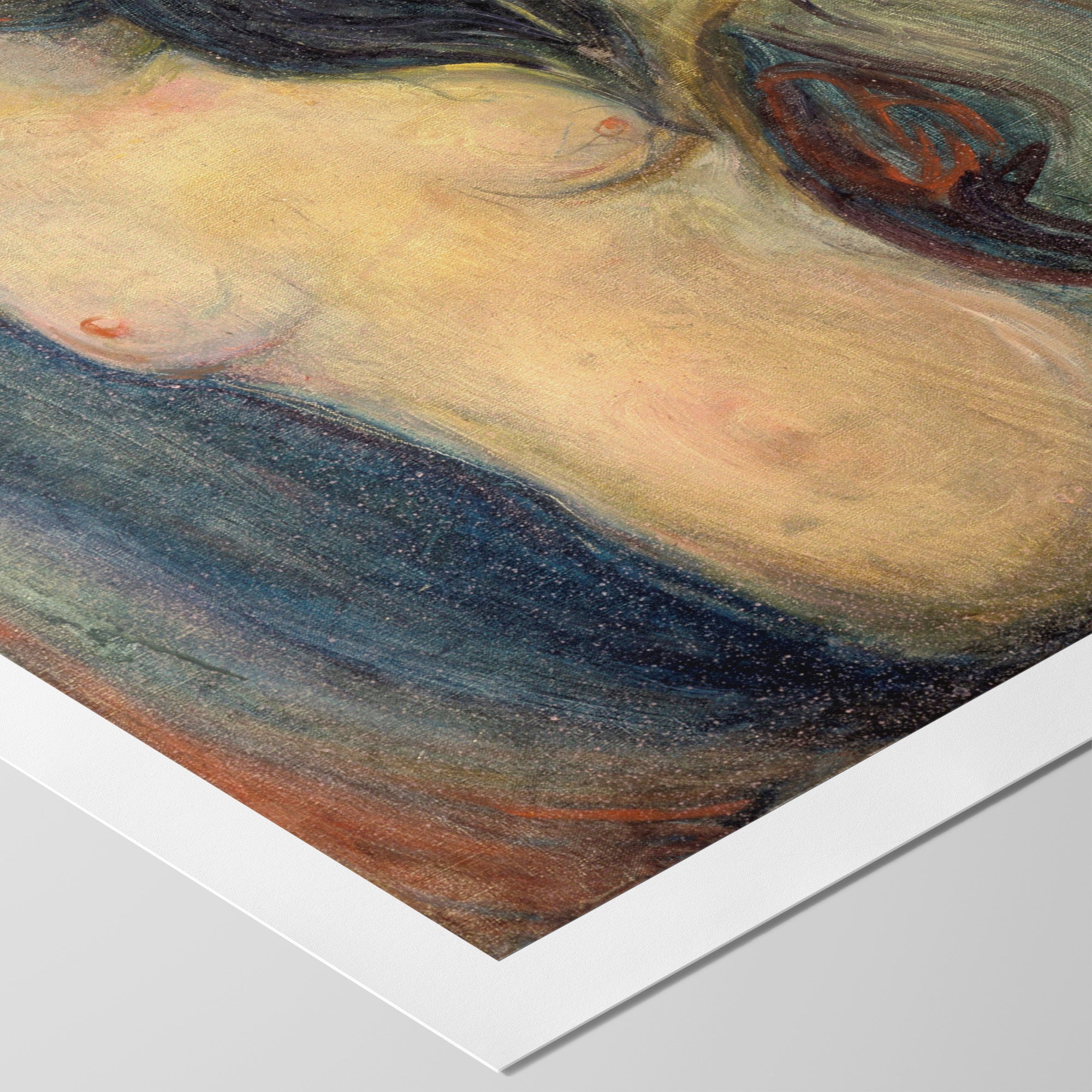 Madonna (1894) by Edvard Munch depicts a nude female figure, interpreted as a possible representation of the Virgin Mary, though he is not known for religious artwork. Munch created two other versions and a lithograph, and used both Loving Woman and Madonna ➵
Madonna (1894) by Edvard Munch depicts a nude female figure, interpreted as a possible representation of the Virgin Mary, though he is not known for religious artwork. Munch created two other versions and a lithograph, and used both Loving Woman and Madonna ➵◰ Canvas Reproductions
⧈ Framed Art Prints -
Madonna ☴ Munch ☱ Canvas
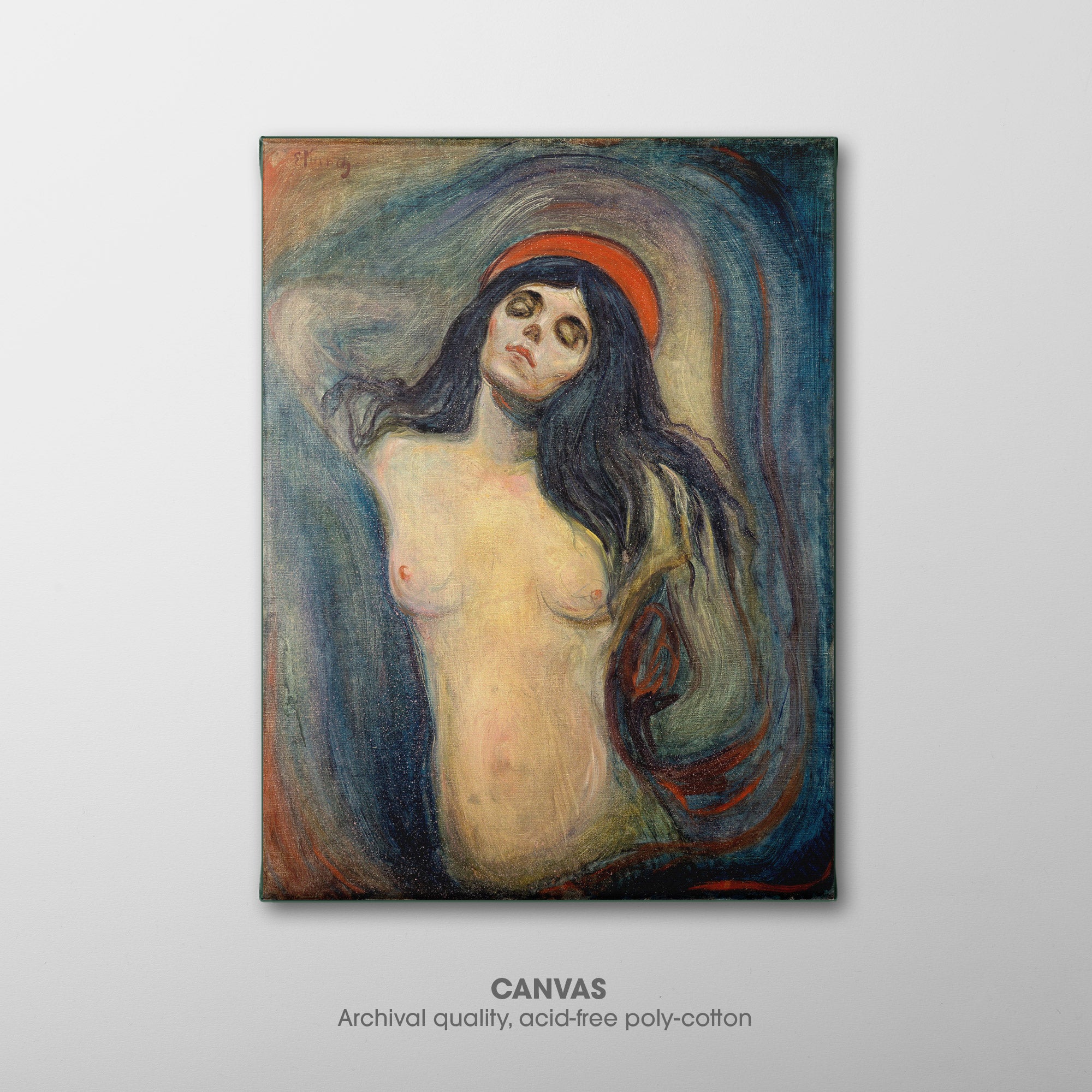
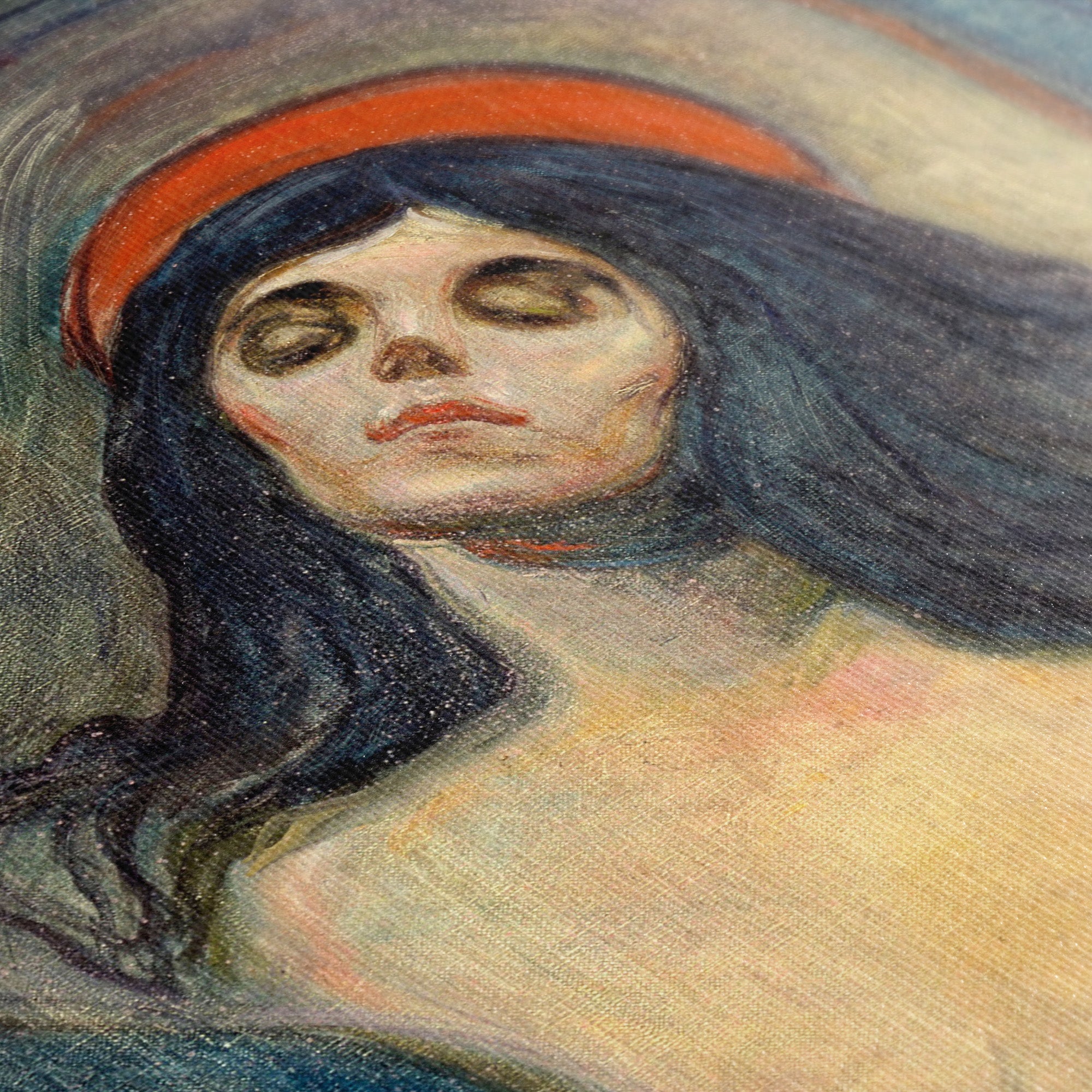 Madonna (1894) by Edvard Munch depicts a nude female figure, interpreted as a possible representation of the Virgin Mary, though he is not known for religious artwork. Munch created two other versions and a lithograph, and used both Loving Woman and Madonna ➵
Madonna (1894) by Edvard Munch depicts a nude female figure, interpreted as a possible representation of the Virgin Mary, though he is not known for religious artwork. Munch created two other versions and a lithograph, and used both Loving Woman and Madonna ➵◰ Canvas Reproductions
⧈ Framed Art Prints -
Magician of Power ☳ Kunisada ☰ Art Print
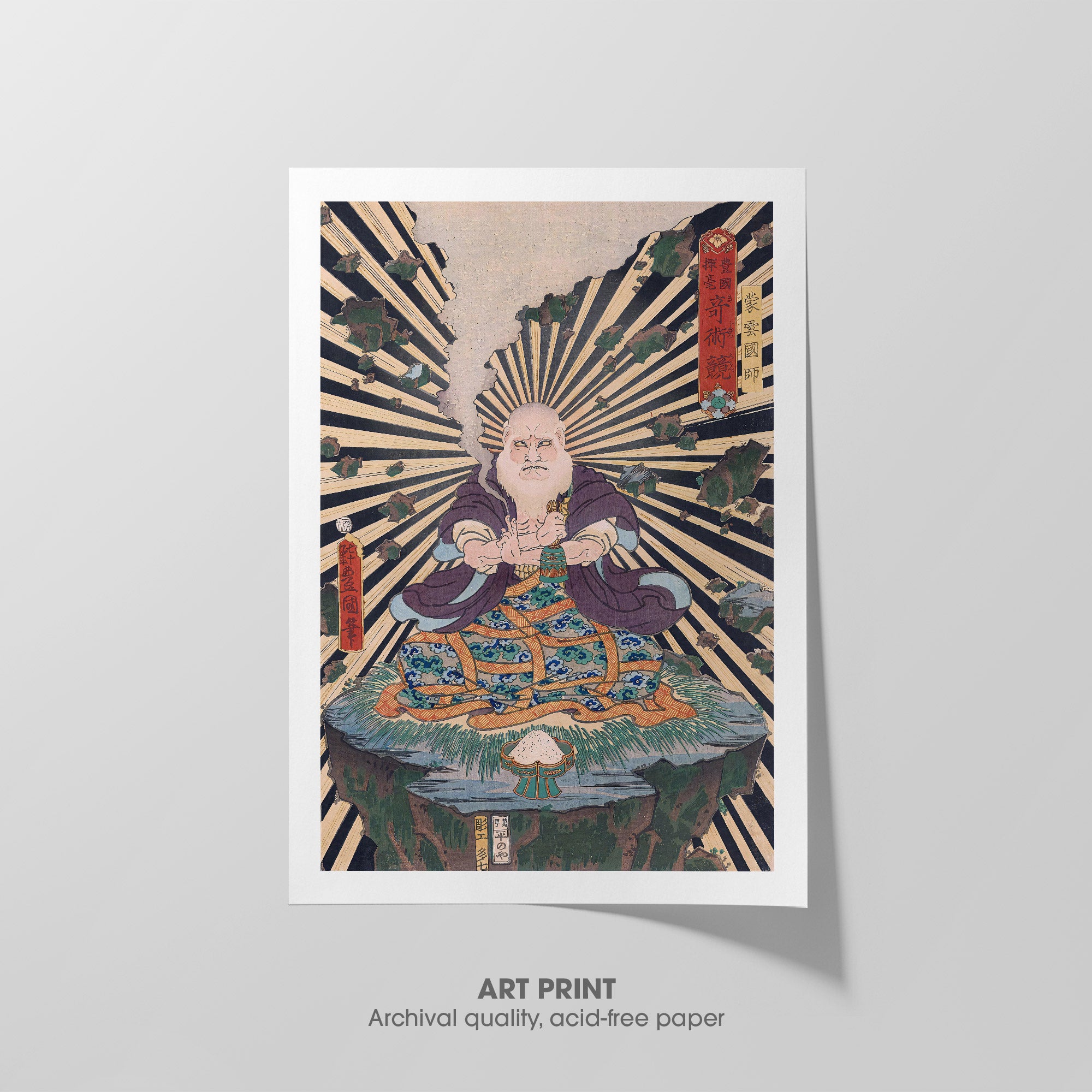
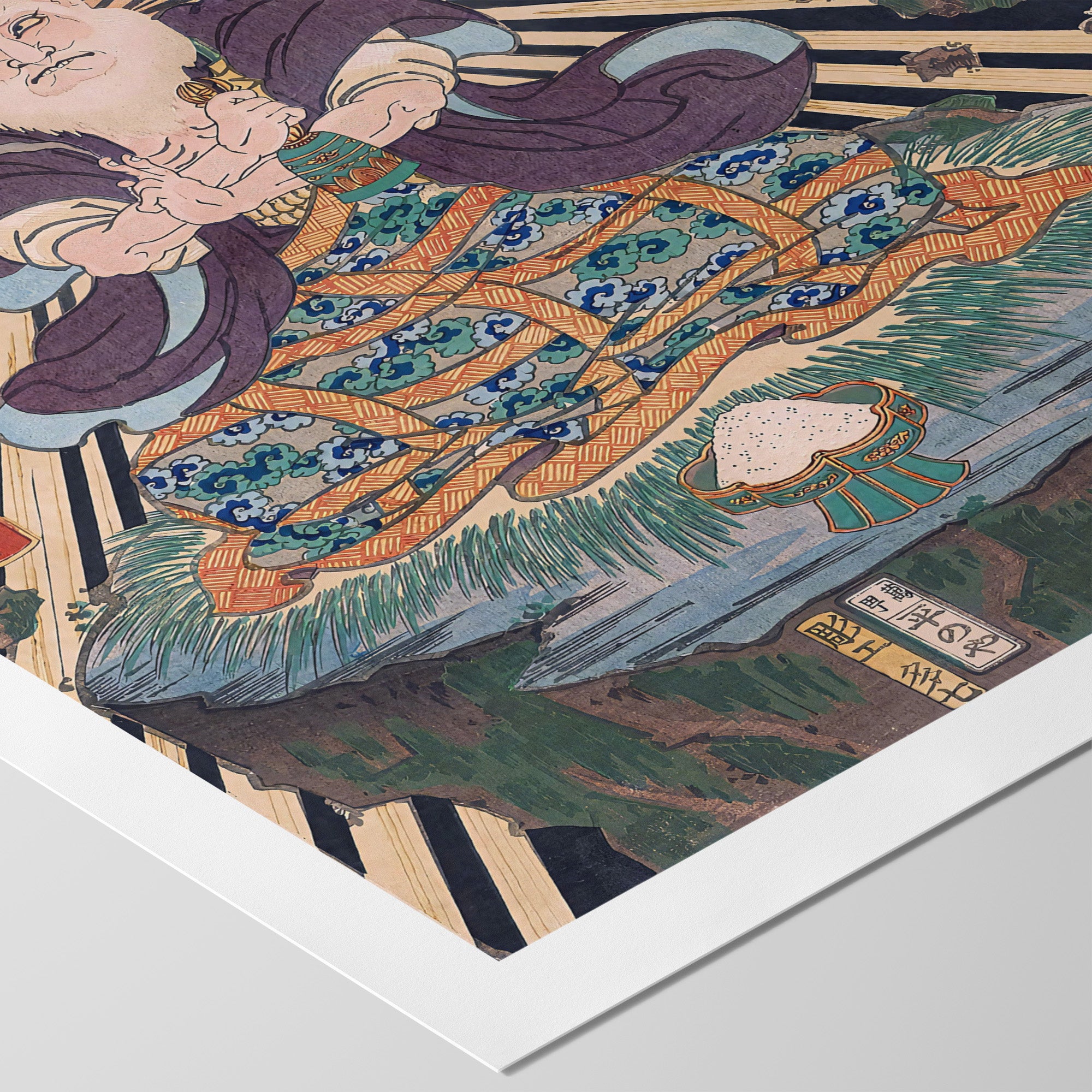 Magician of Power Môun-kokushi and Exploding Rocks (1863) by Utagawa Kunisada depicts the actor Ichikawa Kodanji IV as the magician Môun-kokushi from the kabuki drama Chin-setsu yumi-hari zuki. Môun, an evil monk, attempts to seize control of the kingdom of Ryûkyû from ➵
Magician of Power Môun-kokushi and Exploding Rocks (1863) by Utagawa Kunisada depicts the actor Ichikawa Kodanji IV as the magician Môun-kokushi from the kabuki drama Chin-setsu yumi-hari zuki. Môun, an evil monk, attempts to seize control of the kingdom of Ryûkyû from ➵◰ Canvas Reproductions
⧈ Framed Art Prints -
Magician of Power ☳ Kunisada ☰ Canvas
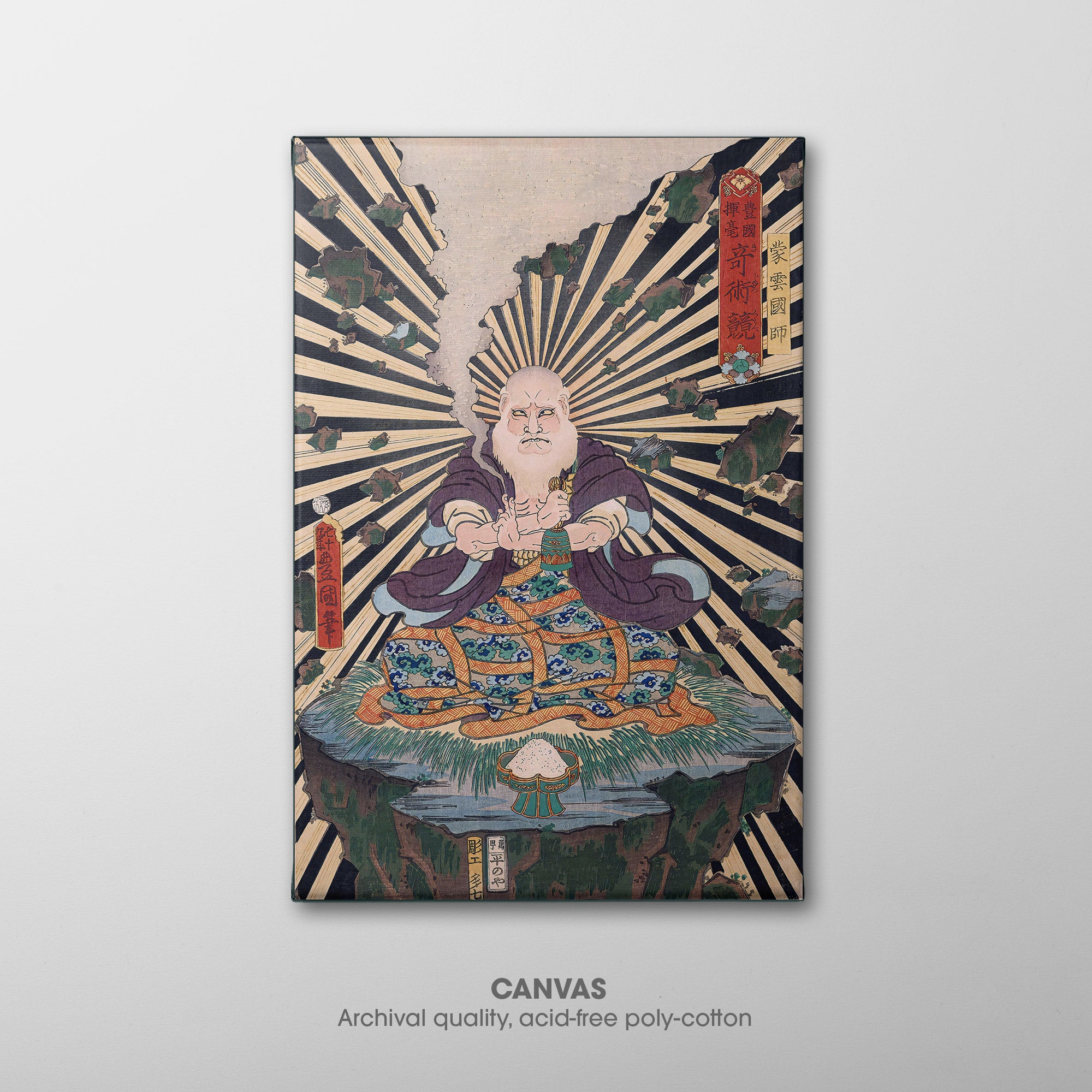
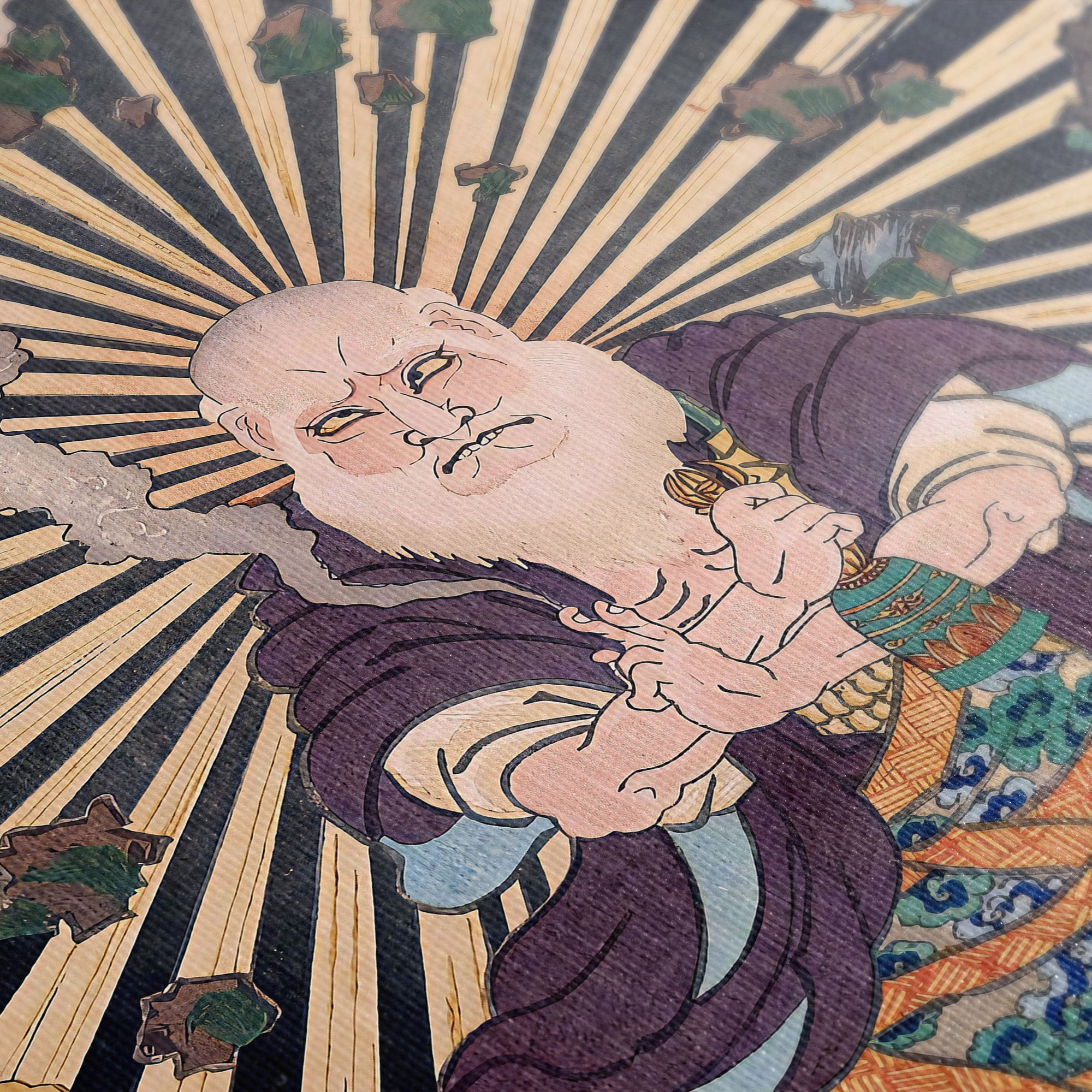 Magician of Power Môun-kokushi and Exploding Rocks (1863) by Utagawa Kunisada depicts the actor Ichikawa Kodanji IV as the magician Môun-kokushi from the kabuki drama Chin-setsu yumi-hari zuki. Môun, an evil monk, attempts to seize control of the kingdom of Ryûkyû from ➵
Magician of Power Môun-kokushi and Exploding Rocks (1863) by Utagawa Kunisada depicts the actor Ichikawa Kodanji IV as the magician Môun-kokushi from the kabuki drama Chin-setsu yumi-hari zuki. Môun, an evil monk, attempts to seize control of the kingdom of Ryûkyû from ➵◰ Canvas Reproductions
⧈ Framed Art Prints -
Man in a Red Turban ☶ Van Eyck ☲ Art Print
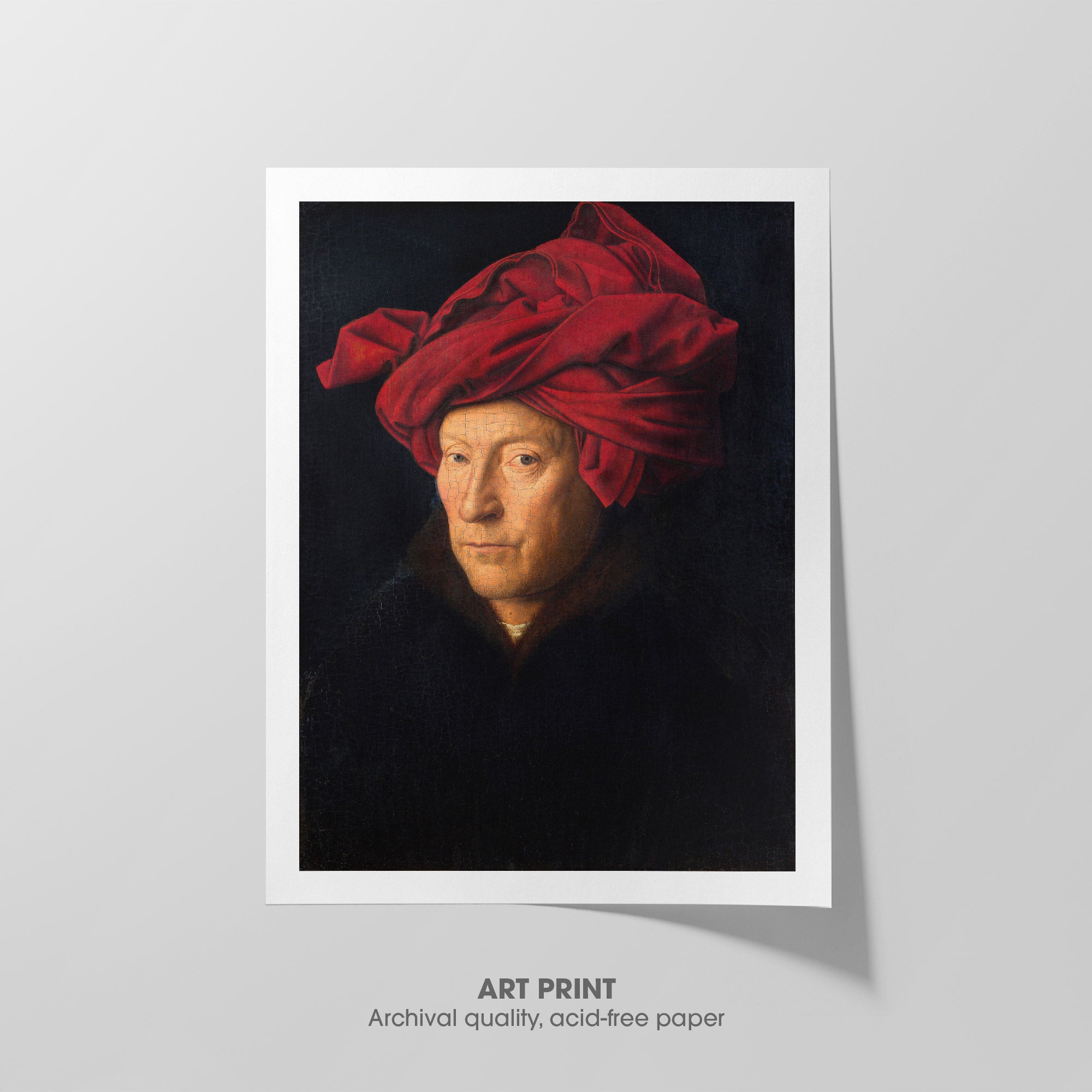
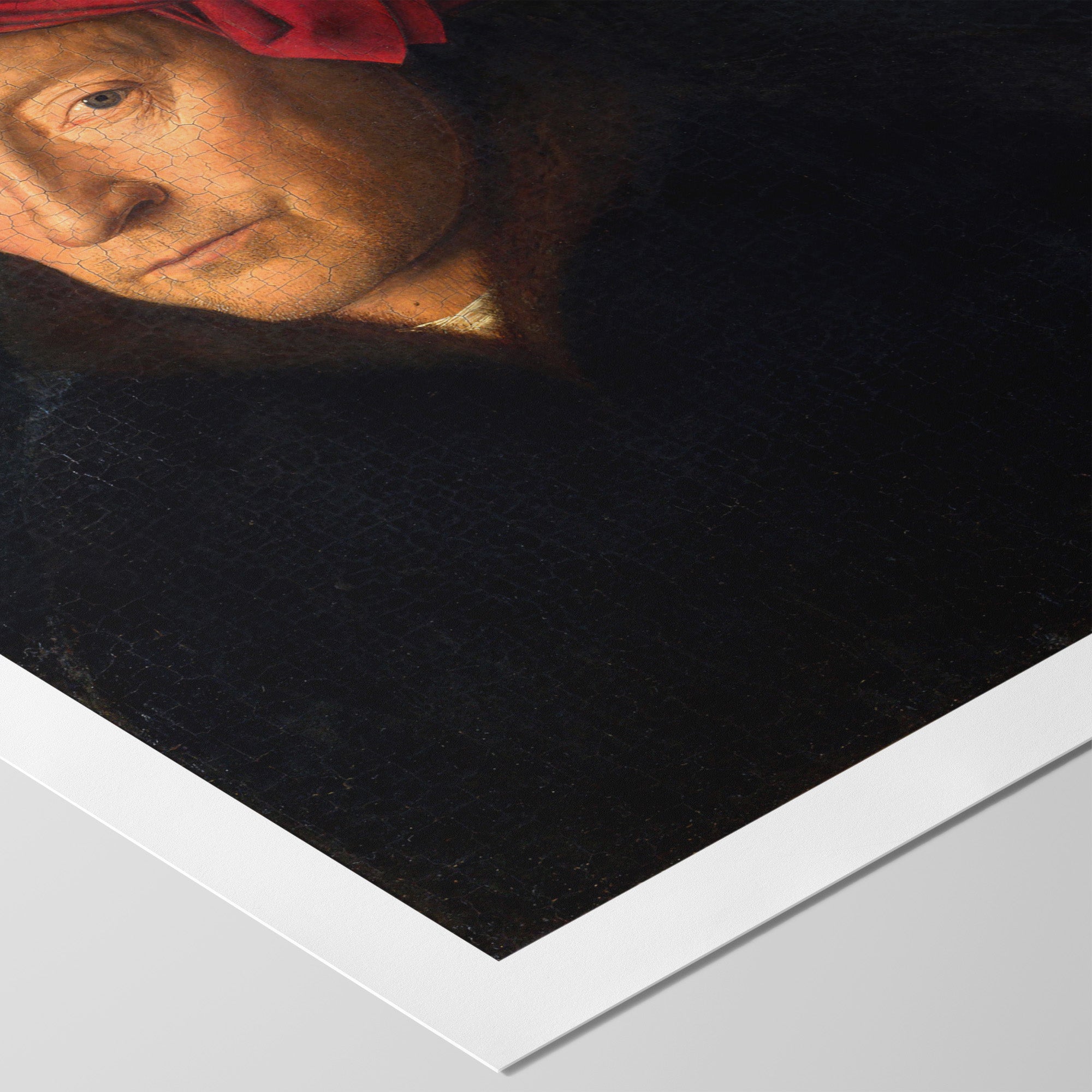 Portrait of a Man in a Red Turban (1433) by Jan van Eyck is possibly a self portrait, indicated by aspects like van Eyck's larger than usual motto on the original frame, and the subject's unusually direct and confrontational gaze. Art historians ➵
Portrait of a Man in a Red Turban (1433) by Jan van Eyck is possibly a self portrait, indicated by aspects like van Eyck's larger than usual motto on the original frame, and the subject's unusually direct and confrontational gaze. Art historians ➵◰ Canvas Reproductions
⧈ Framed Art Prints -
Man in a Red Turban ☶ Van Eyck ☲ Canvas
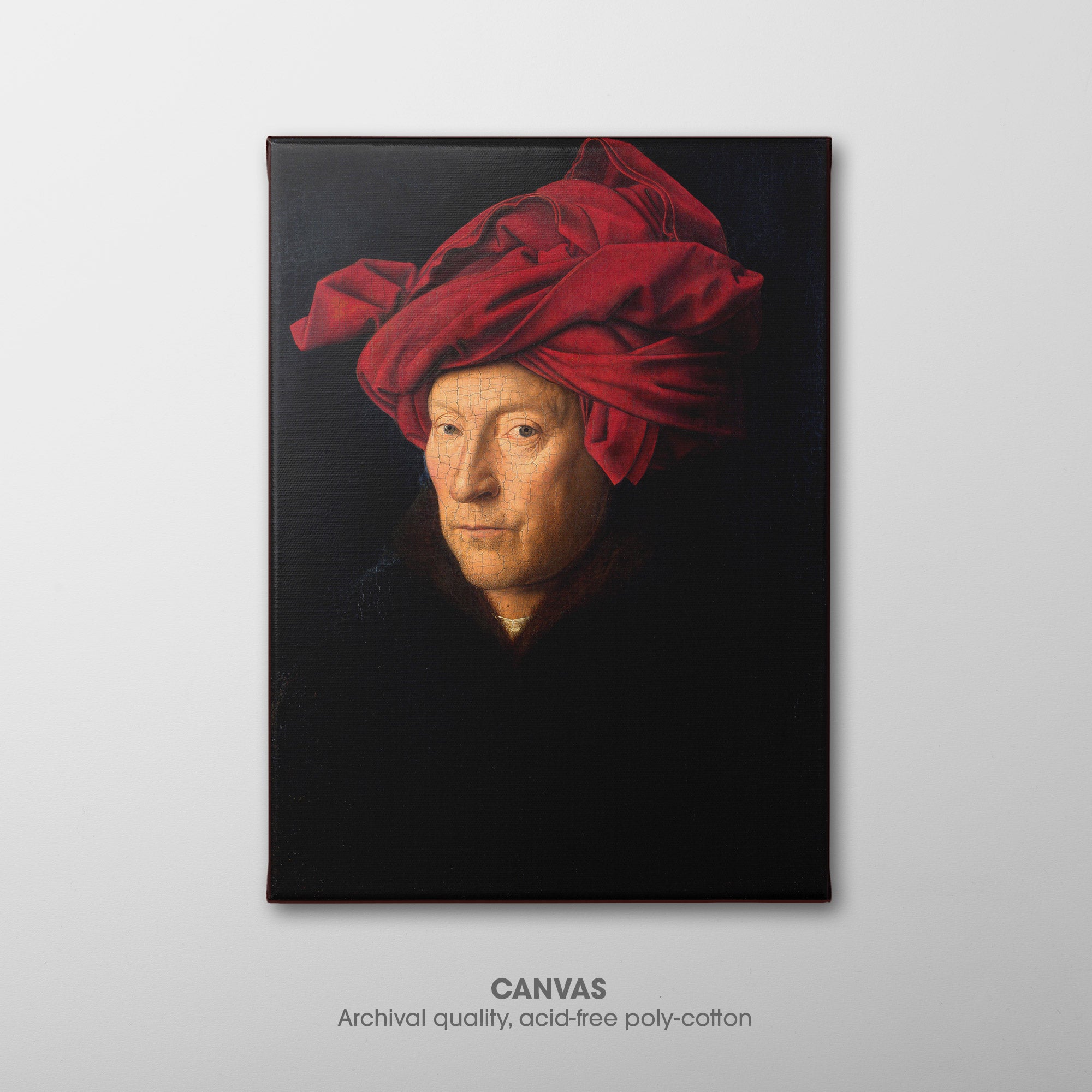
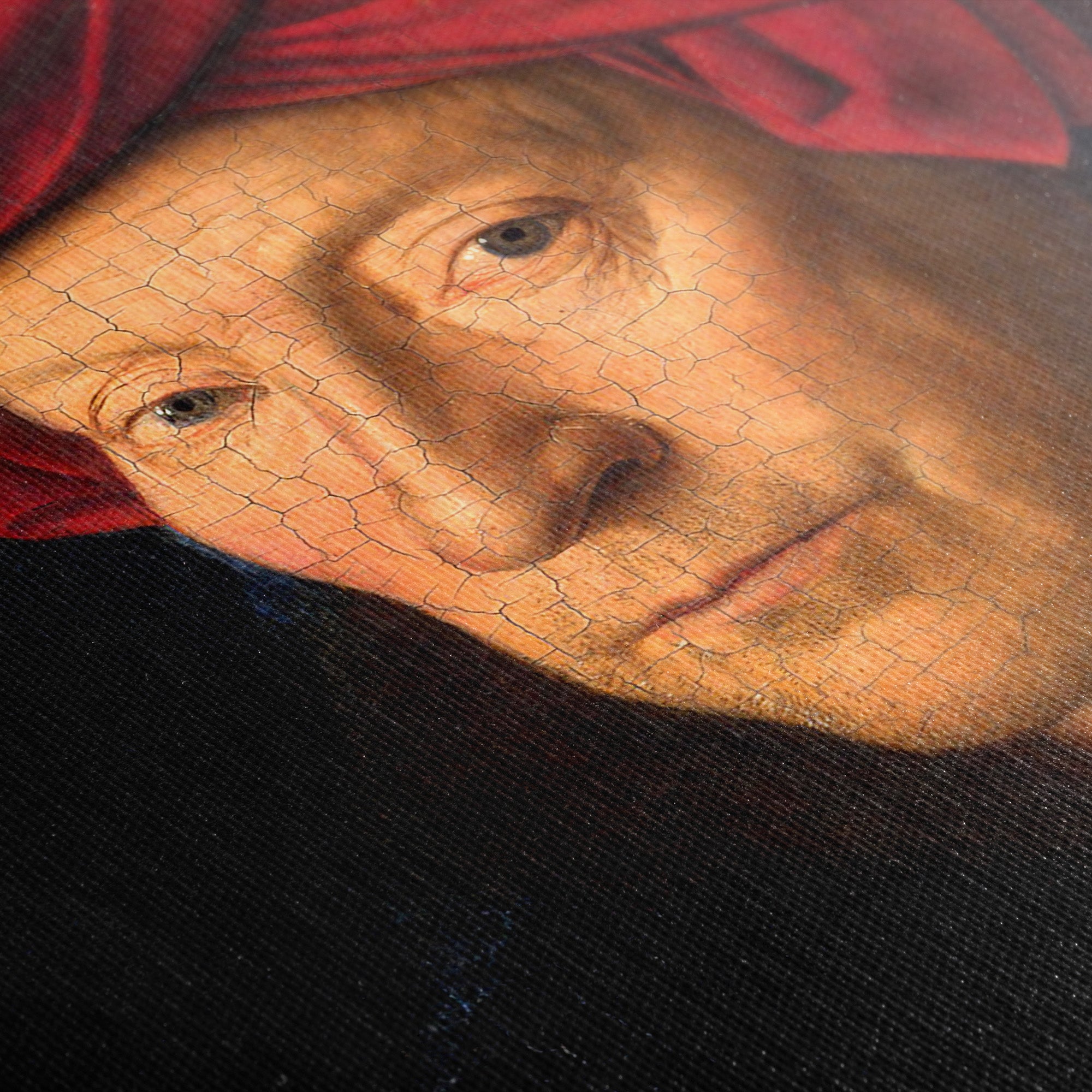 Portrait of a Man in a Red Turban (1433) by Jan van Eyck is possibly a self portrait, indicated by aspects like van Eyck's larger than usual motto on the original frame, and the subject's unusually direct and confrontational gaze. Art historians ➵
Portrait of a Man in a Red Turban (1433) by Jan van Eyck is possibly a self portrait, indicated by aspects like van Eyck's larger than usual motto on the original frame, and the subject's unusually direct and confrontational gaze. Art historians ➵◰ Canvas Reproductions
⧈ Framed Art Prints -
Man Leaning on a Parapet ☲ Seurat ☴ Art Print
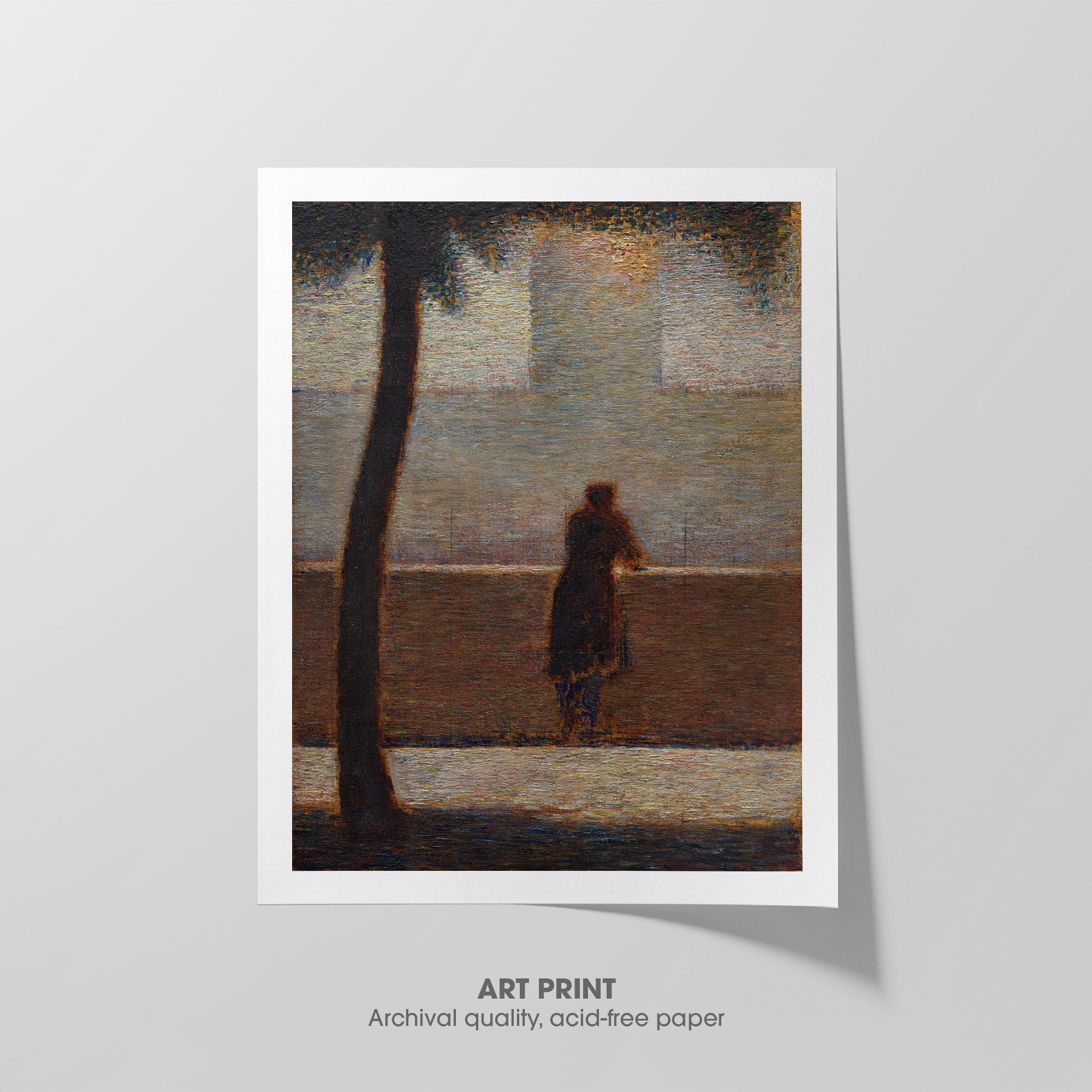
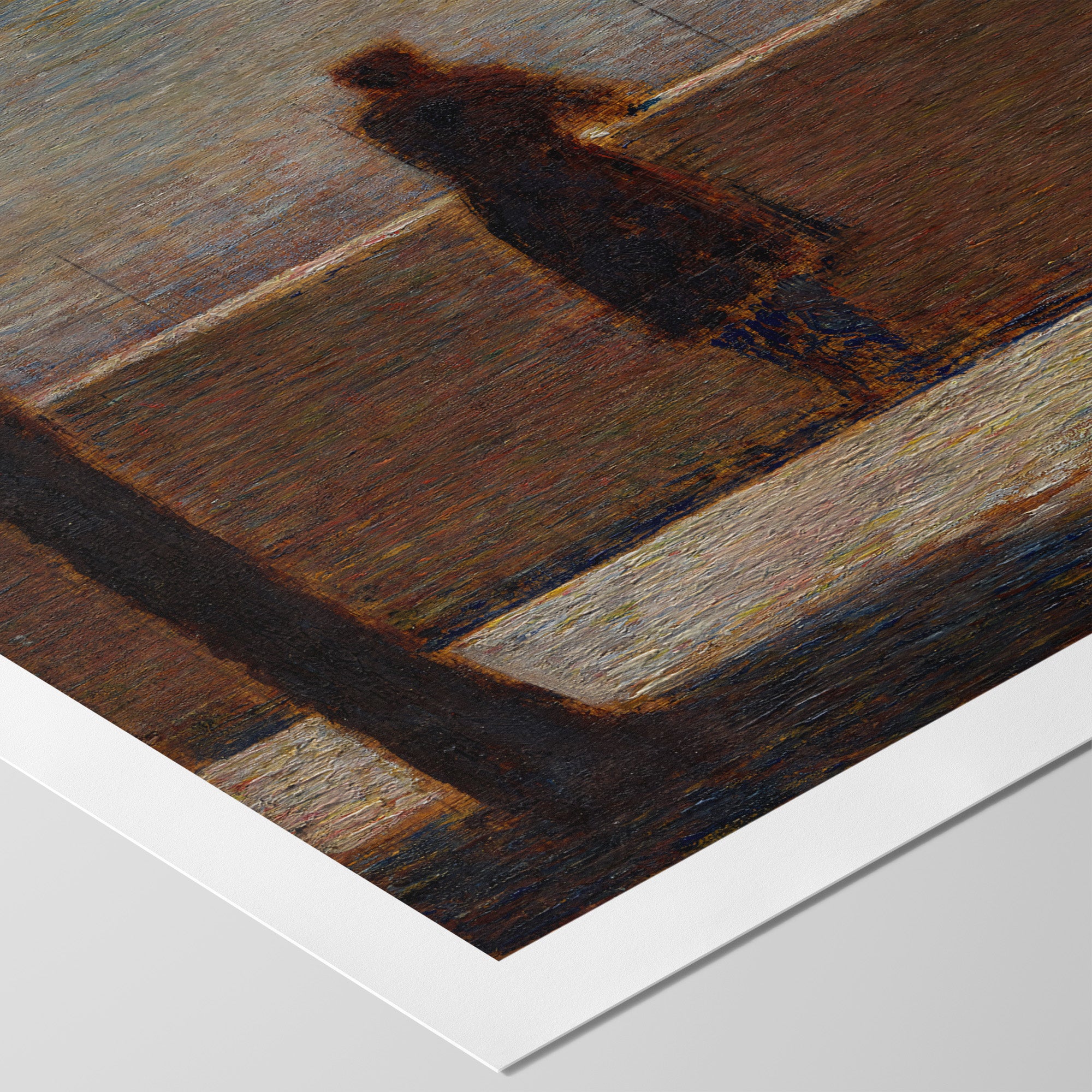 A Man Leaning on a Parapet (1881) by Georges Seurat appears as "panel no. 1." in the studio inventory made after his death in 1891 at age 31. As one of his earliest works, the composition reveals his talent for carefully calibrated ➵
A Man Leaning on a Parapet (1881) by Georges Seurat appears as "panel no. 1." in the studio inventory made after his death in 1891 at age 31. As one of his earliest works, the composition reveals his talent for carefully calibrated ➵◰ Canvas Reproductions
⧈ Framed Art Prints


